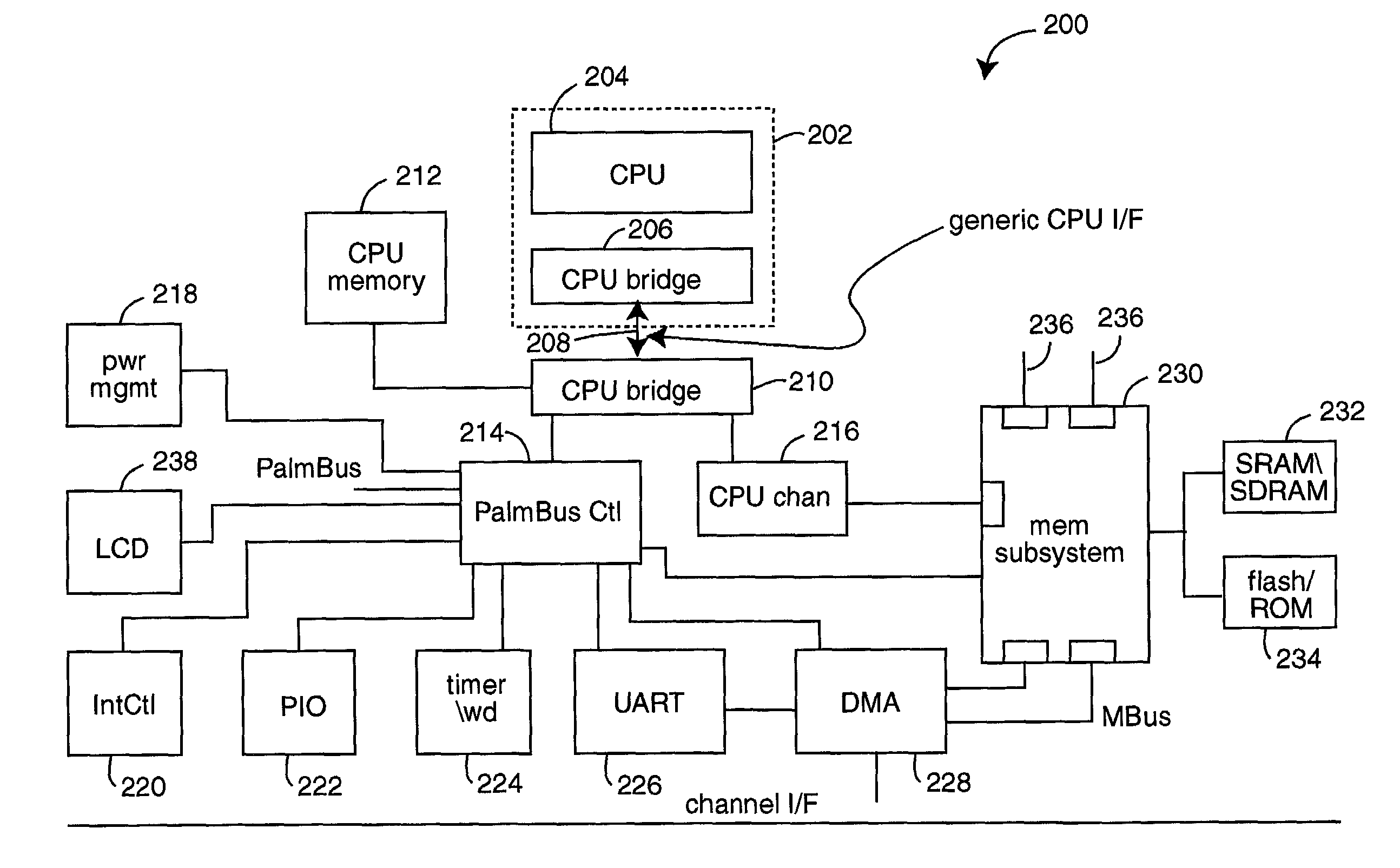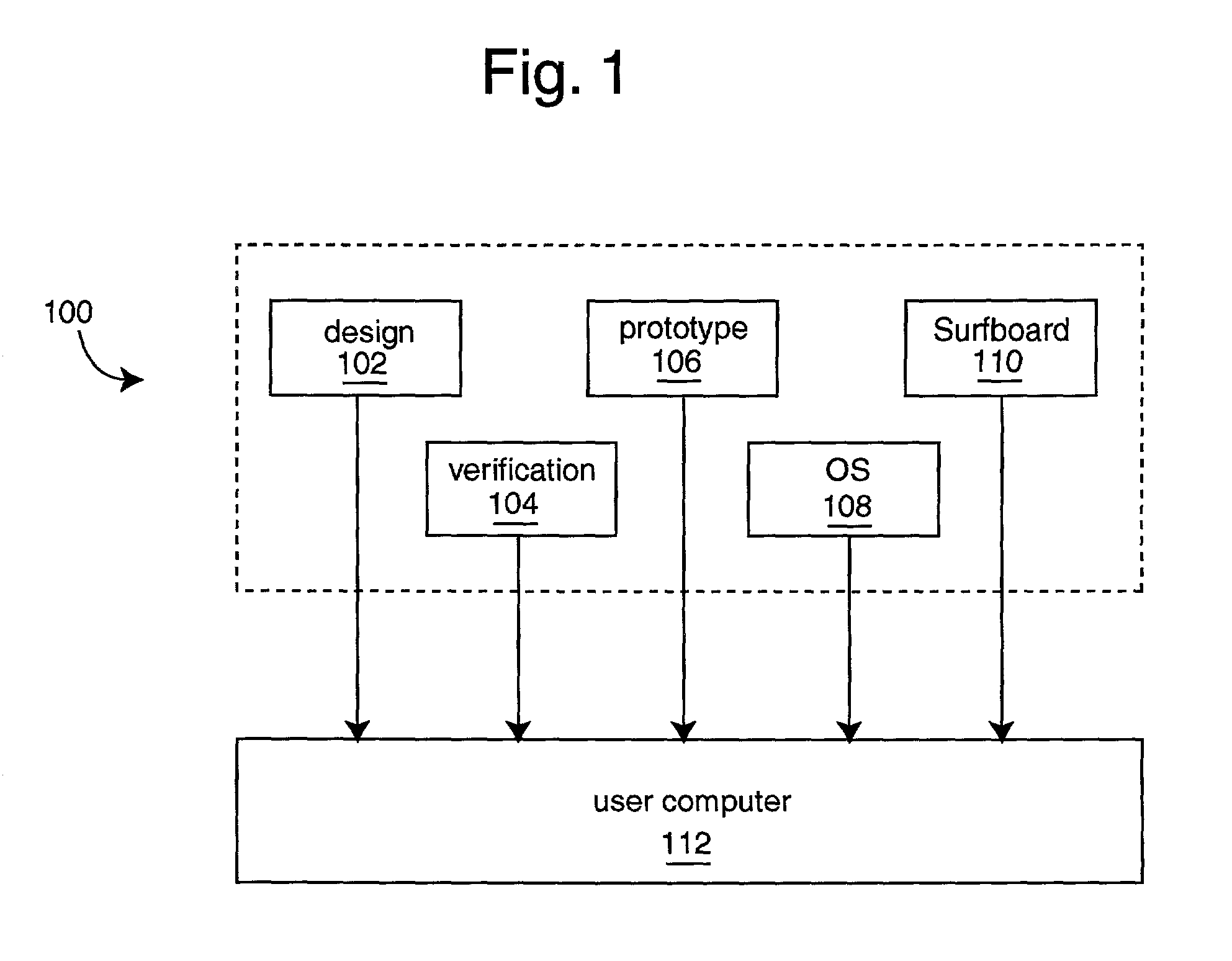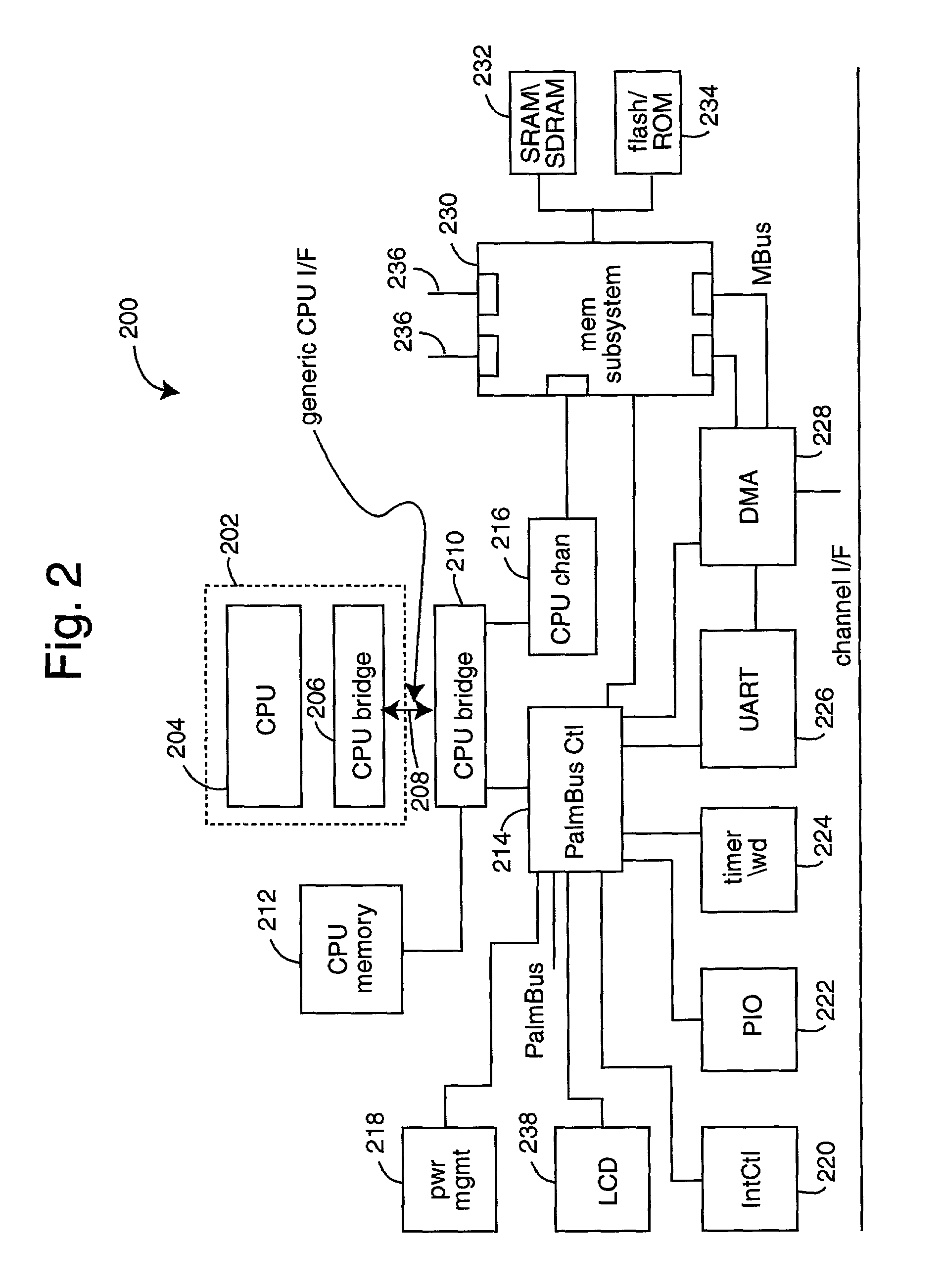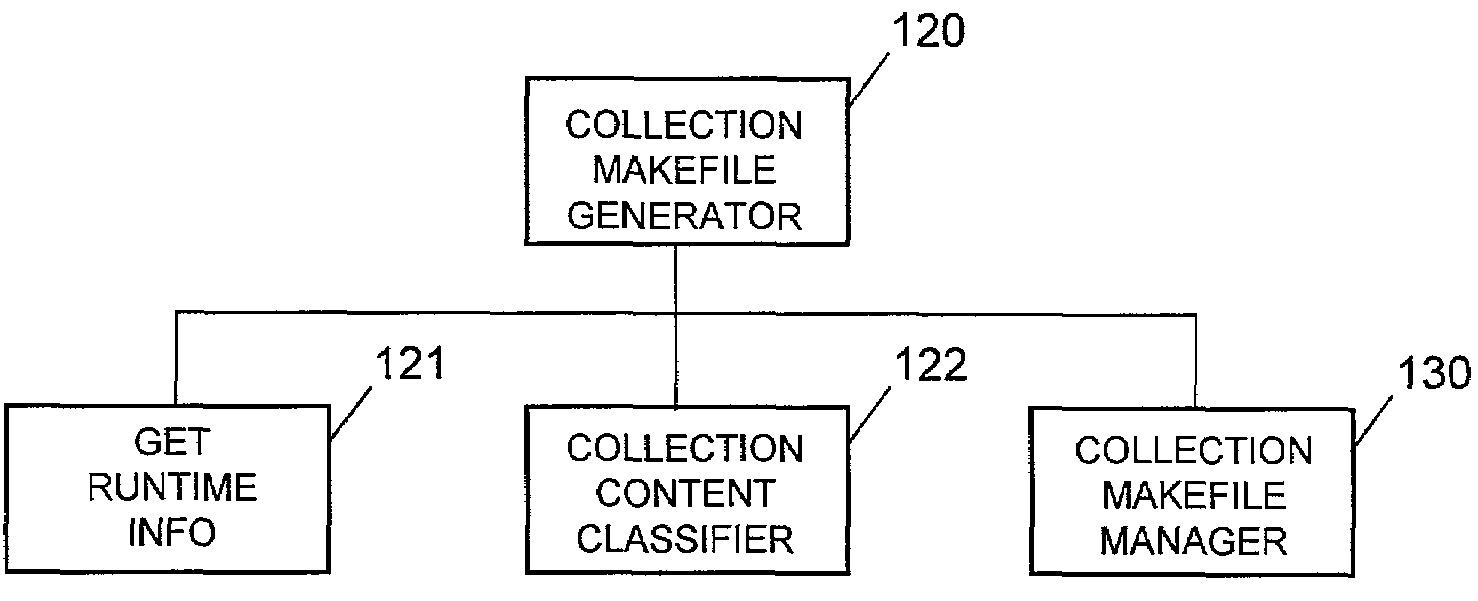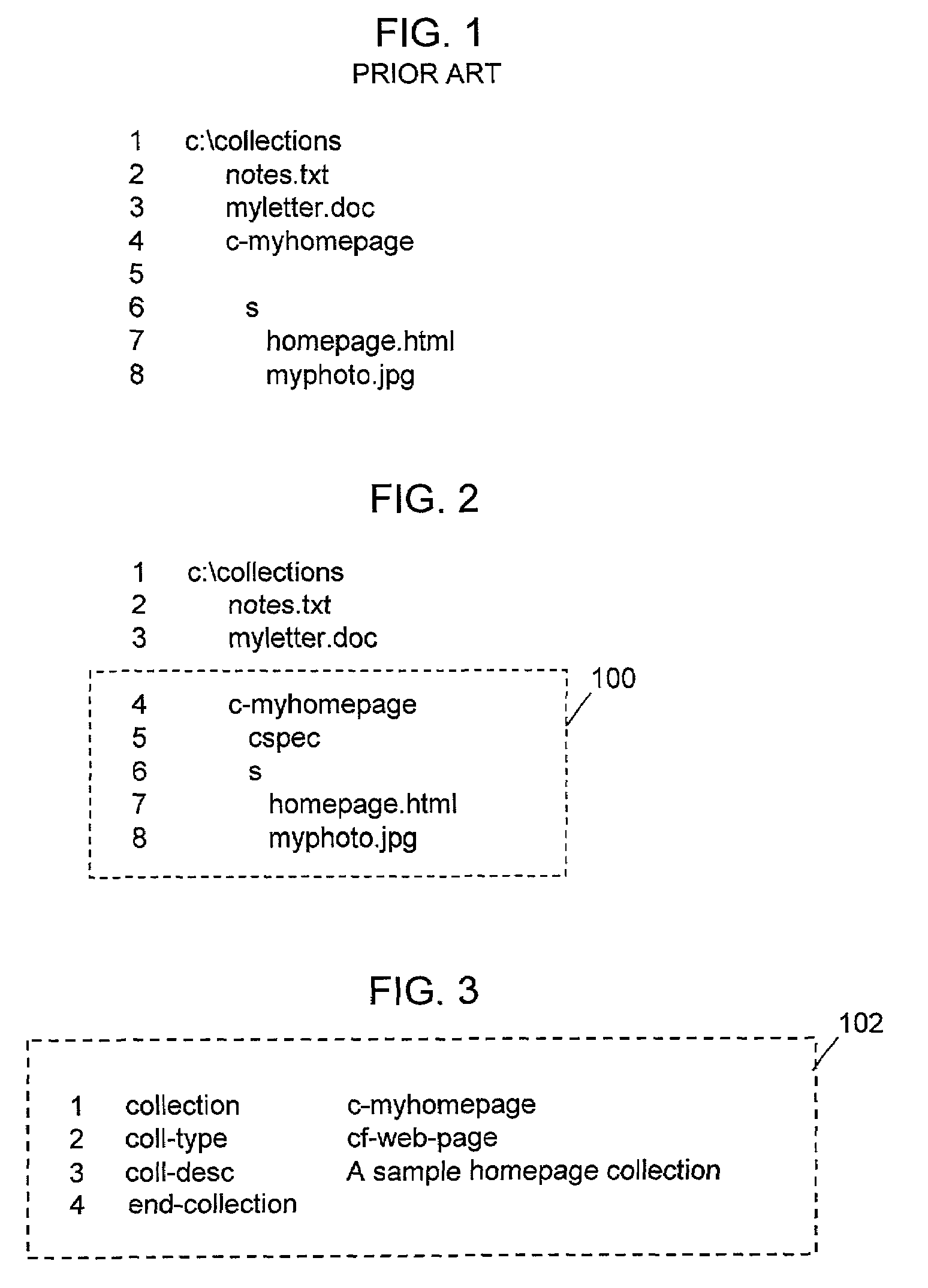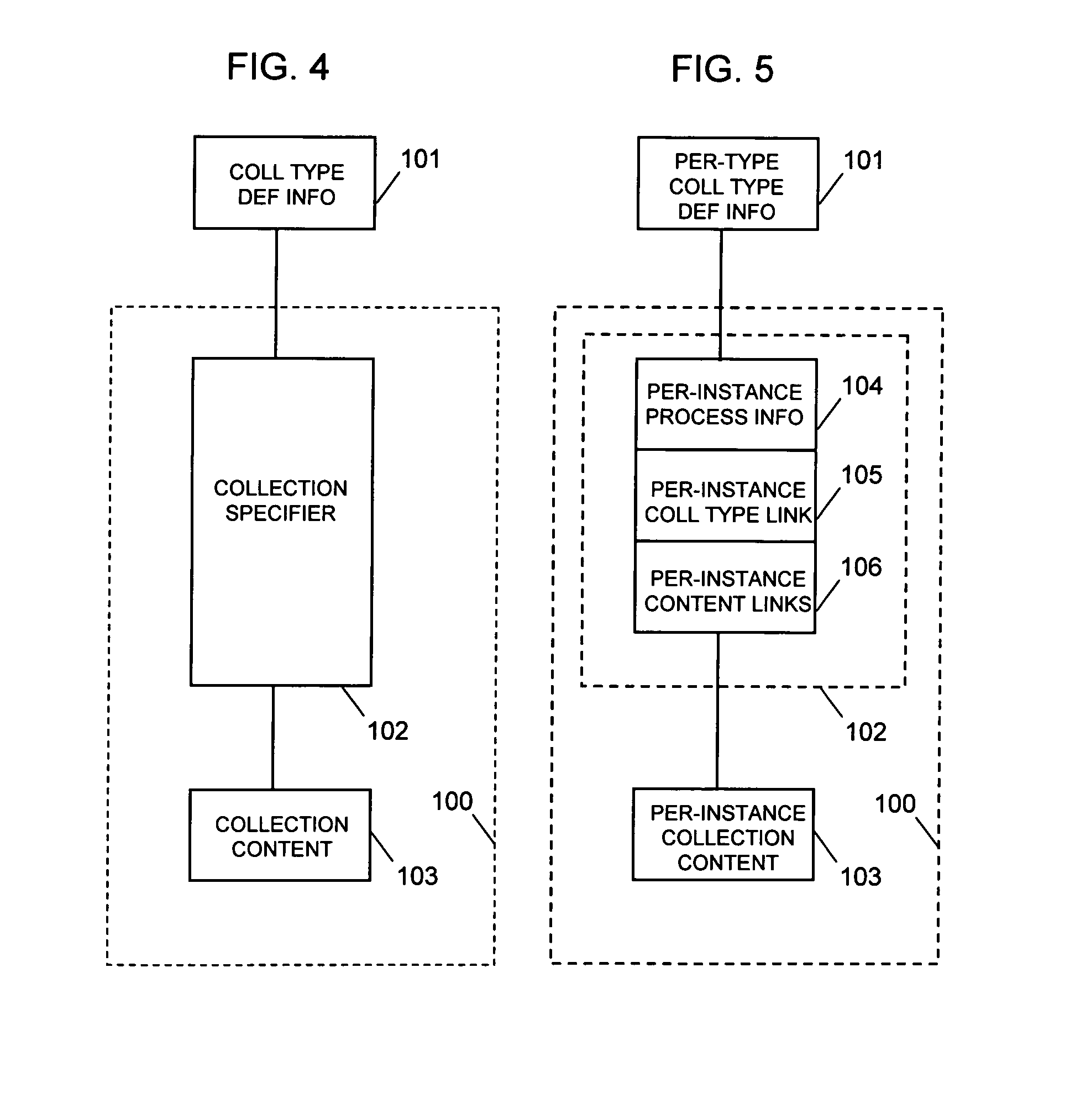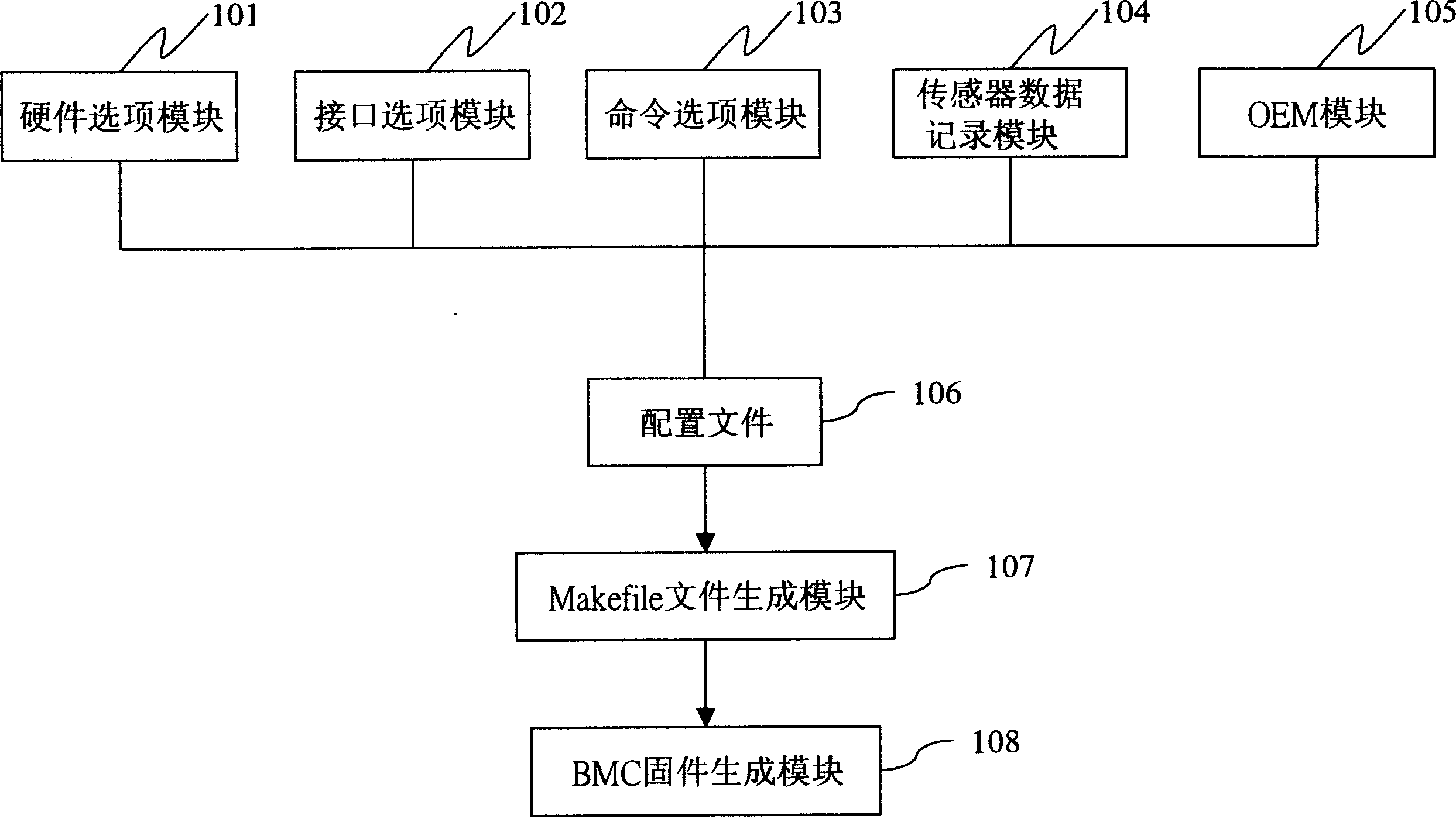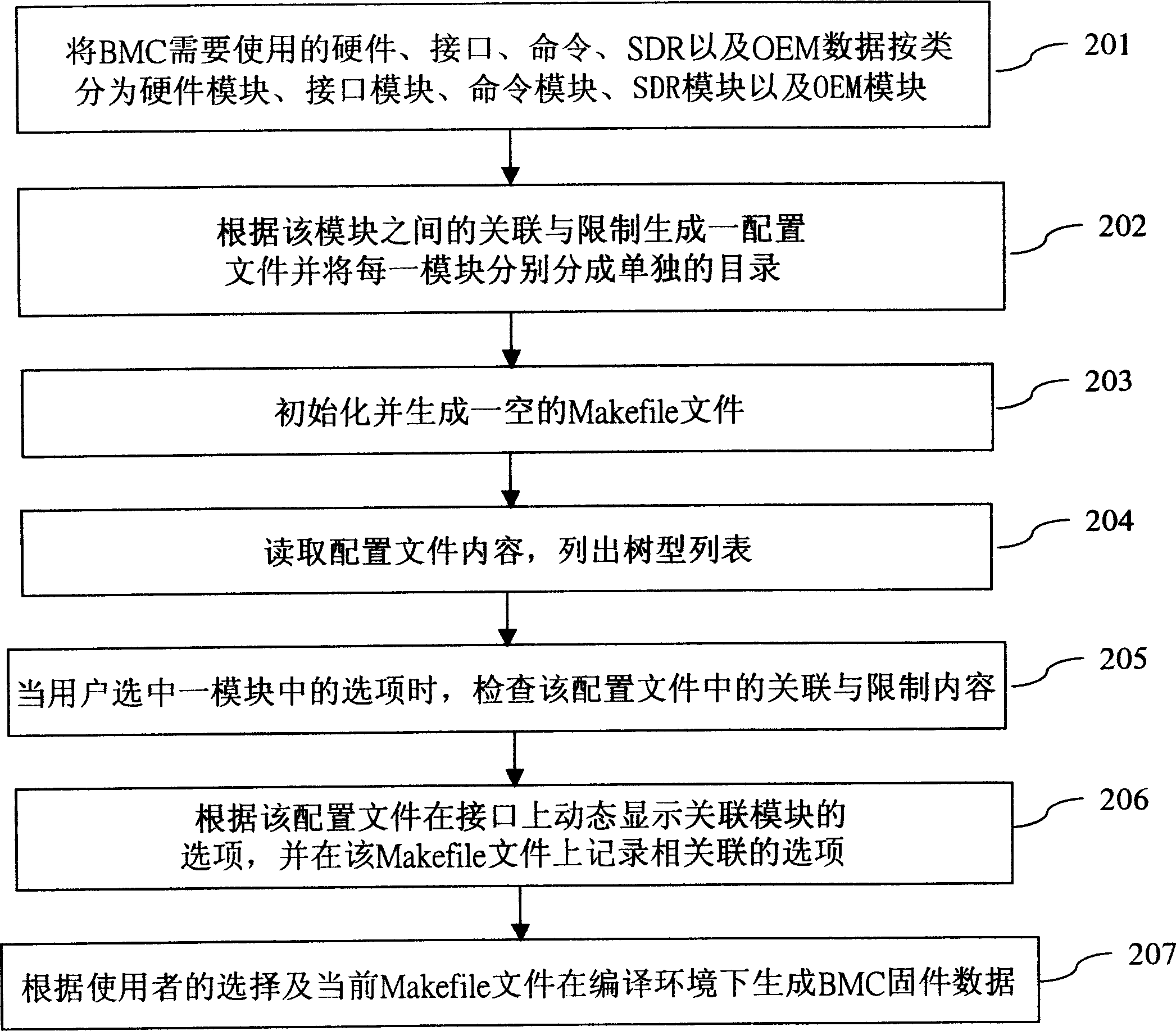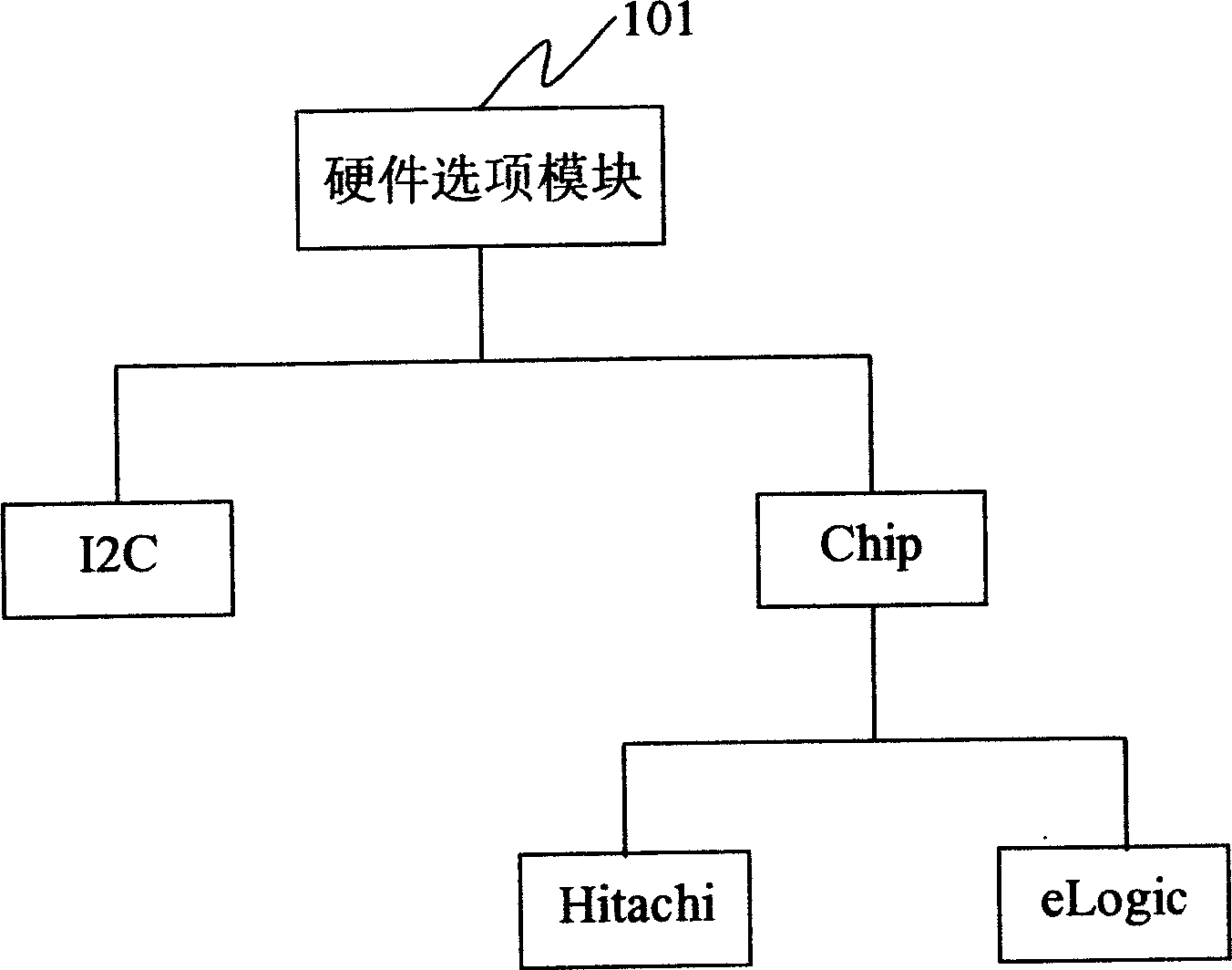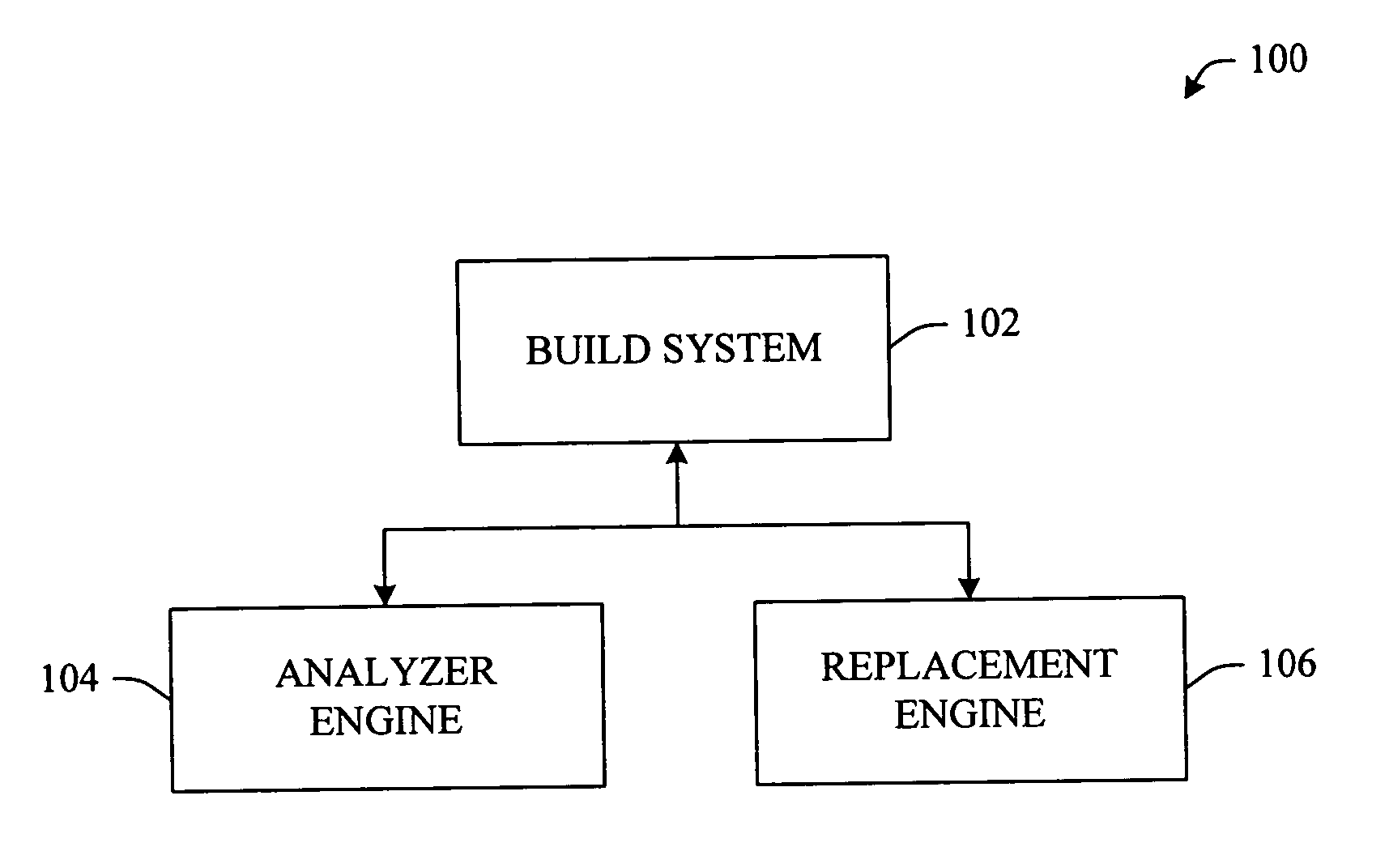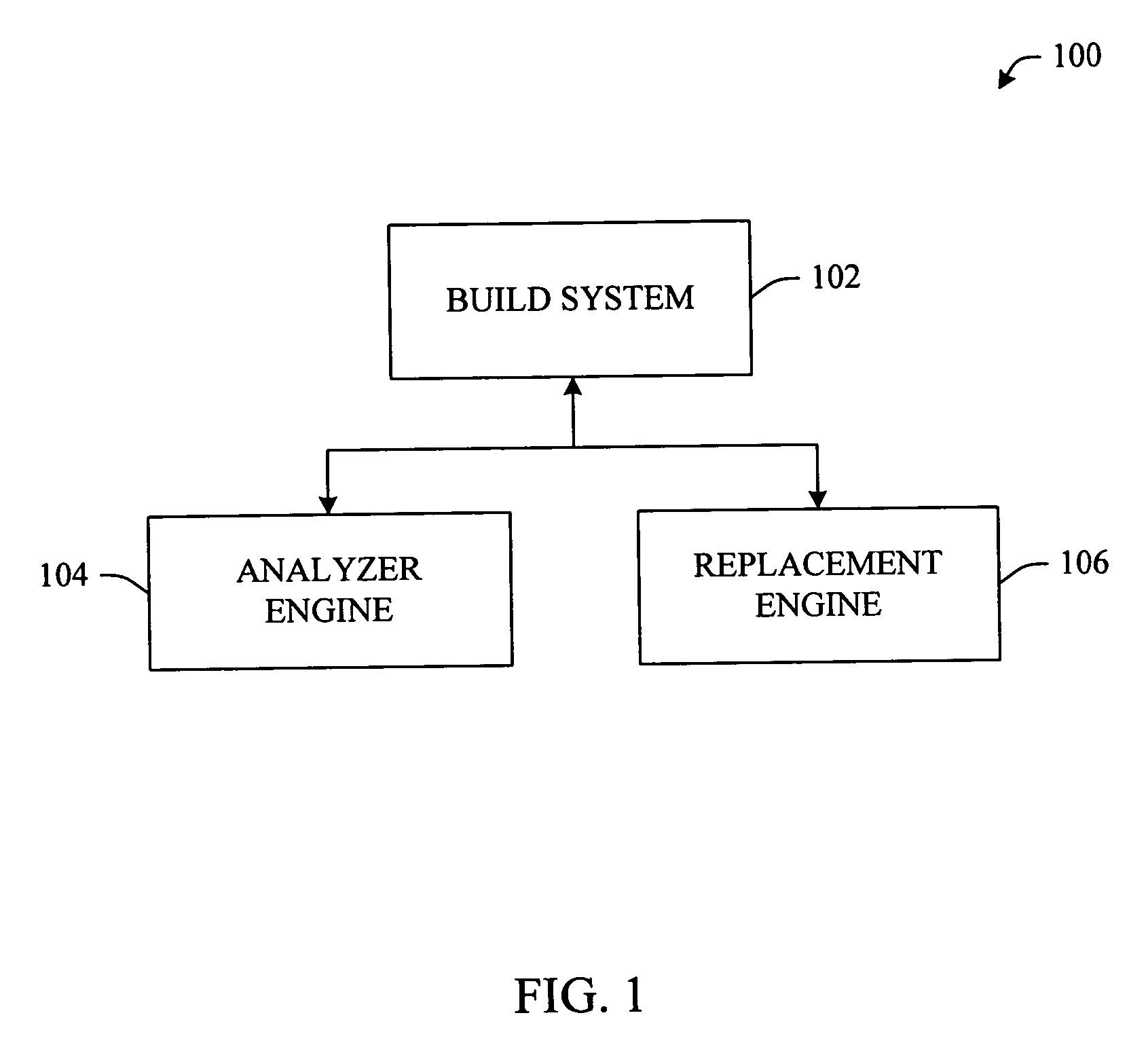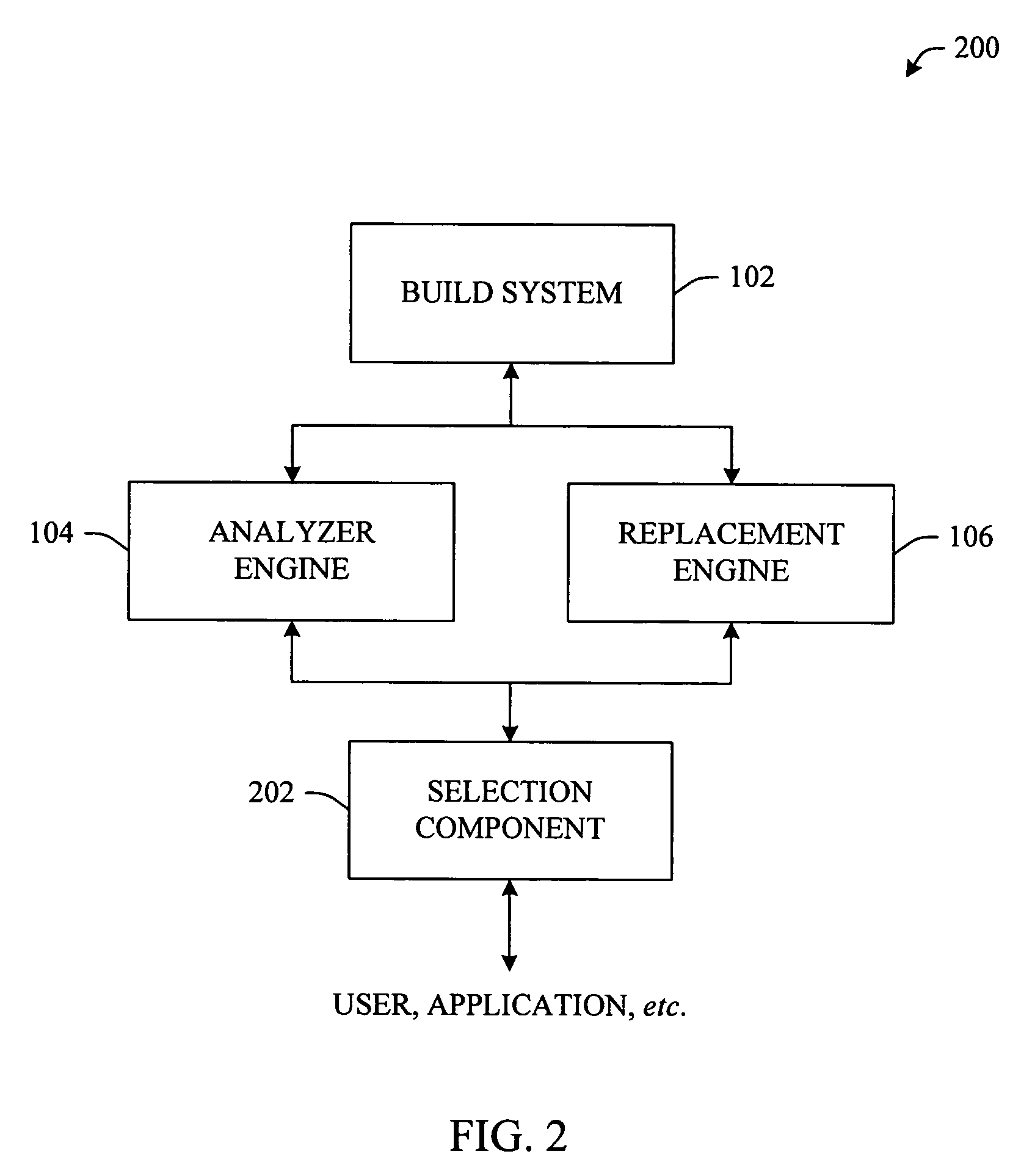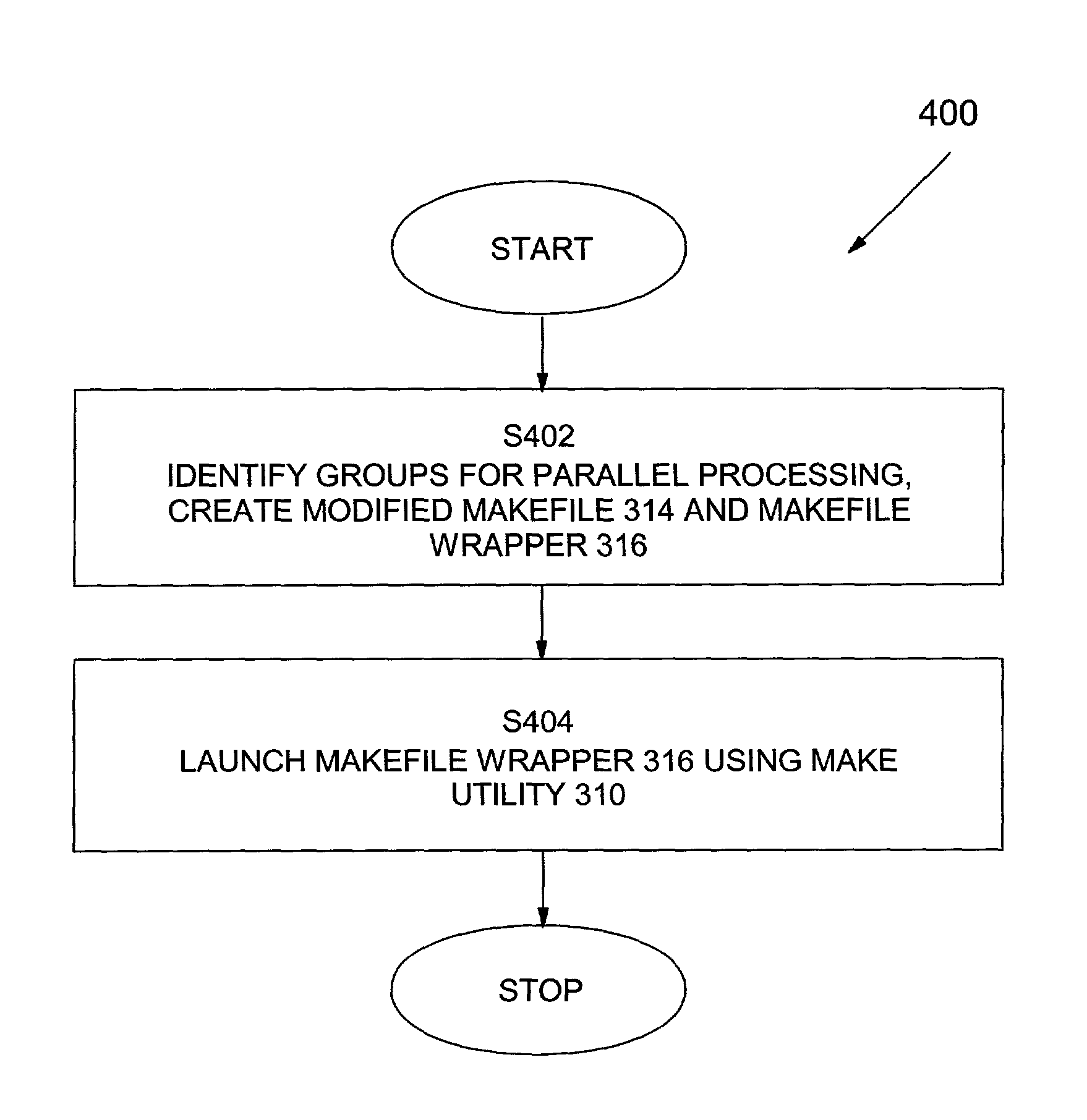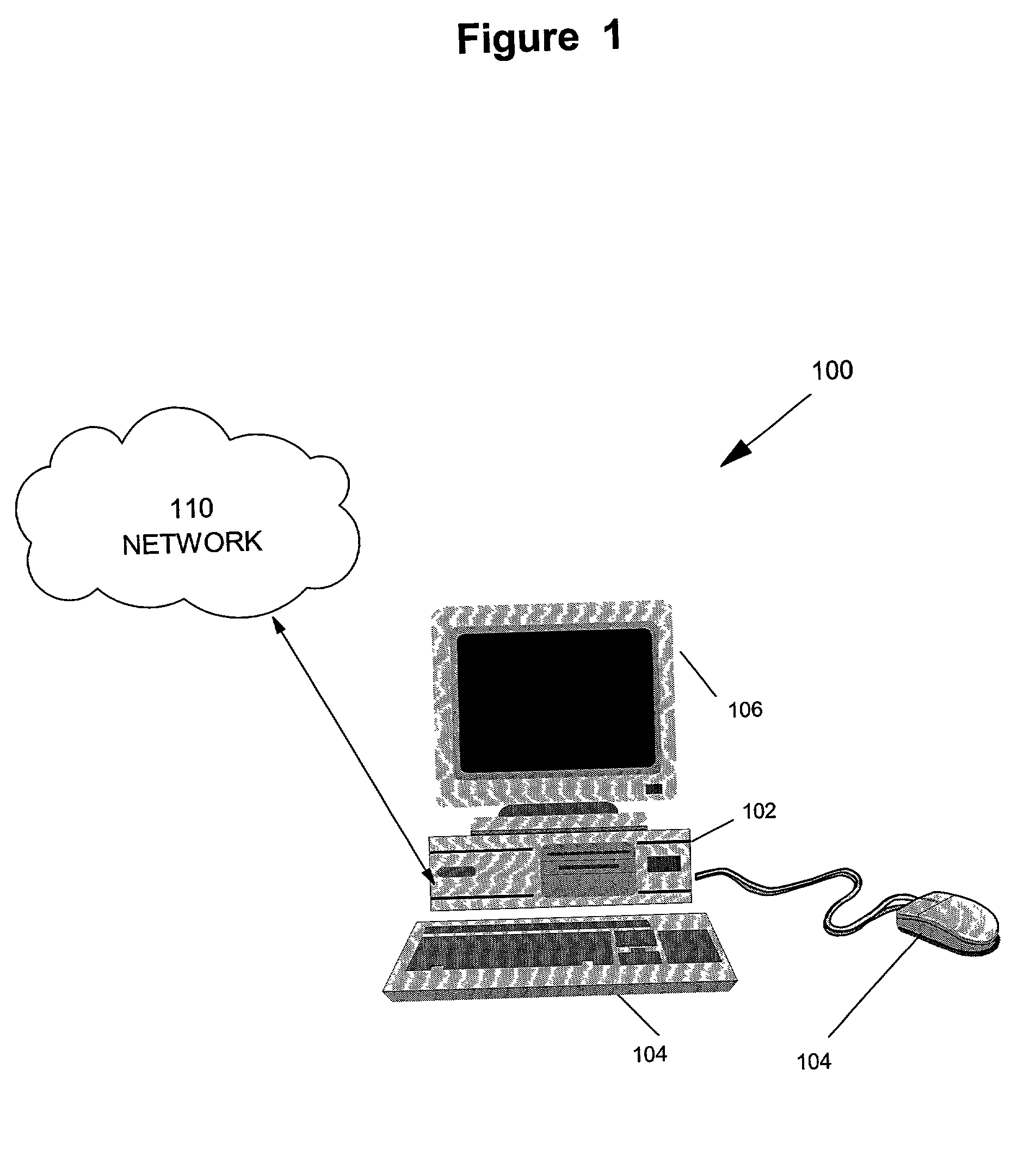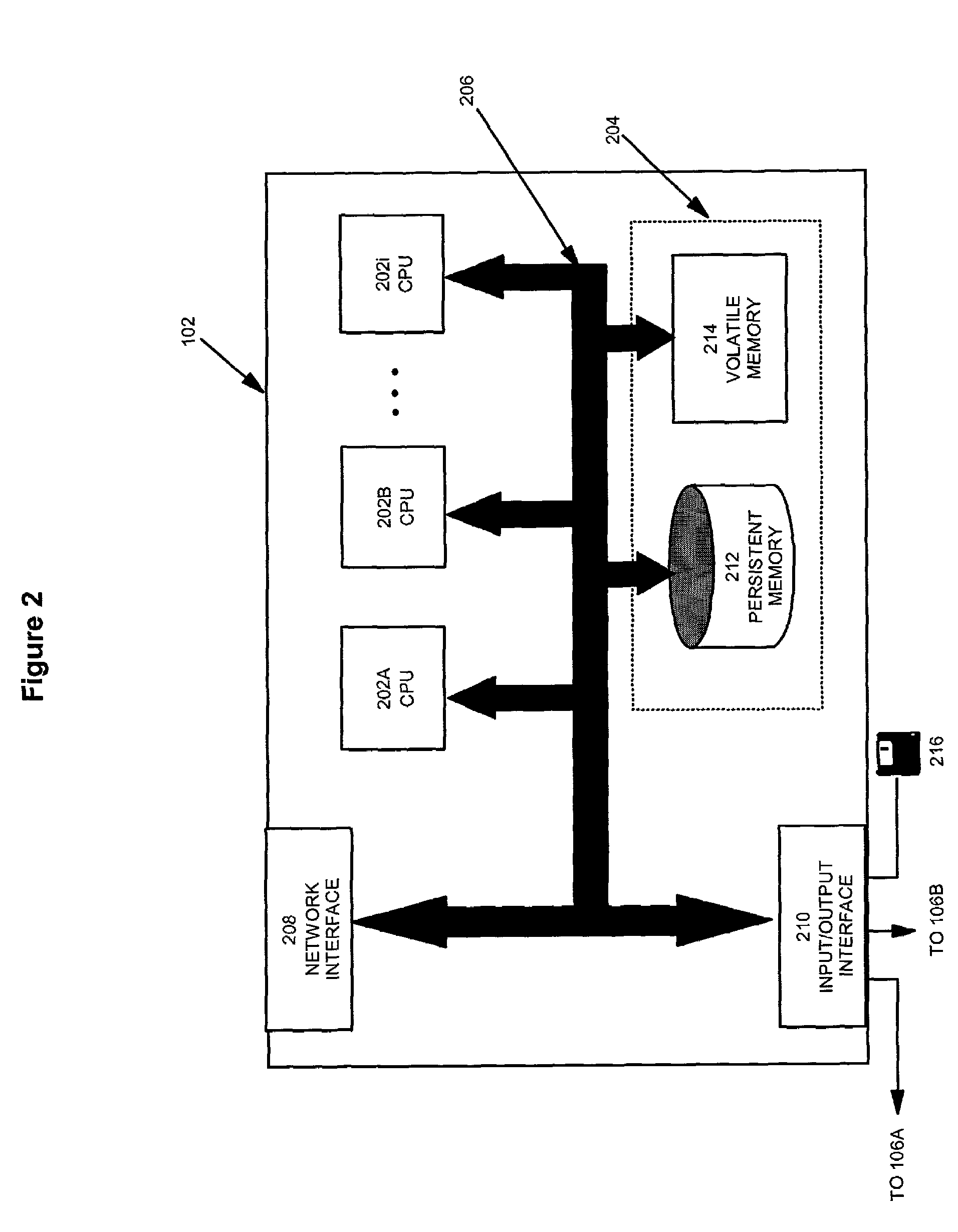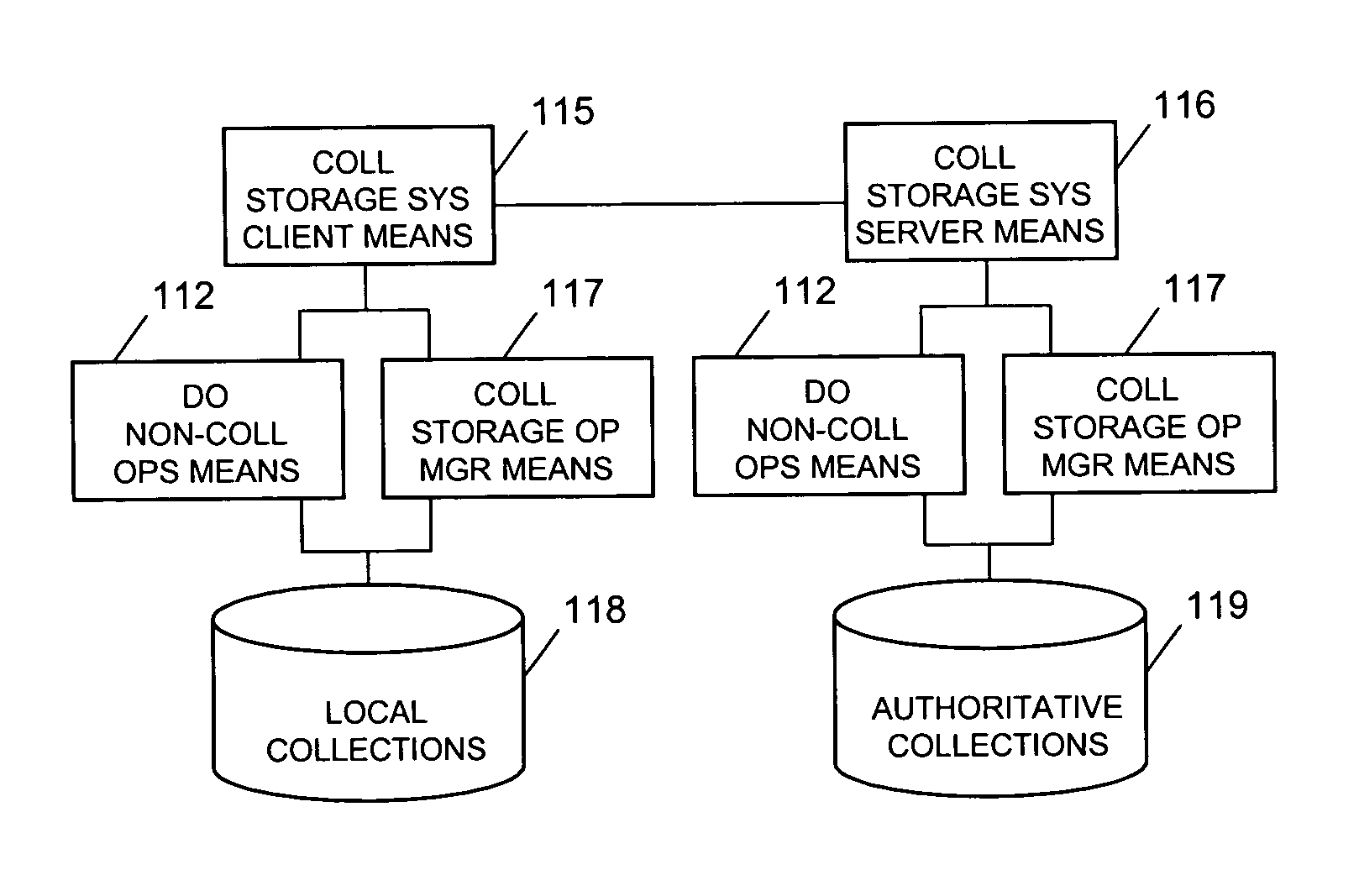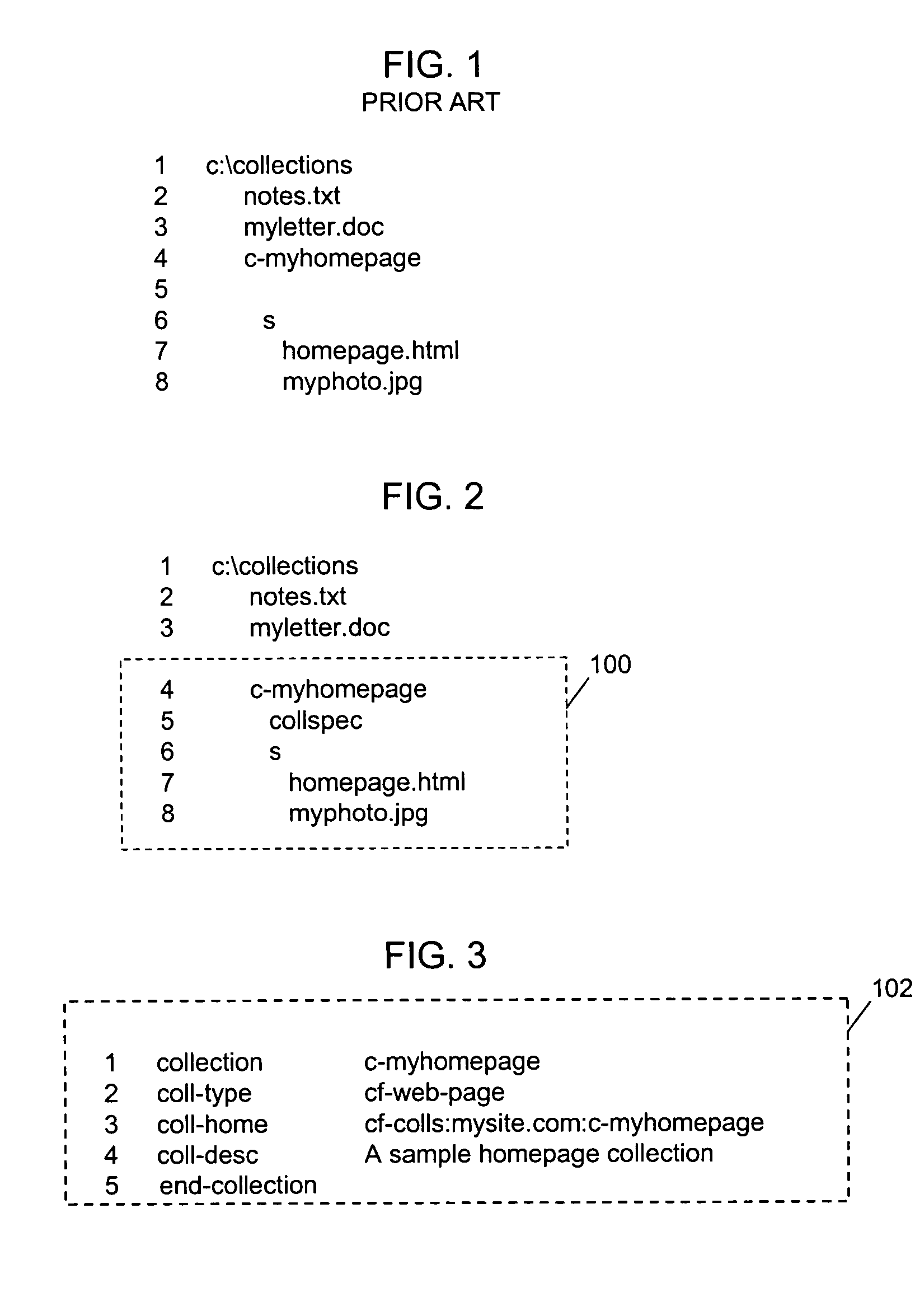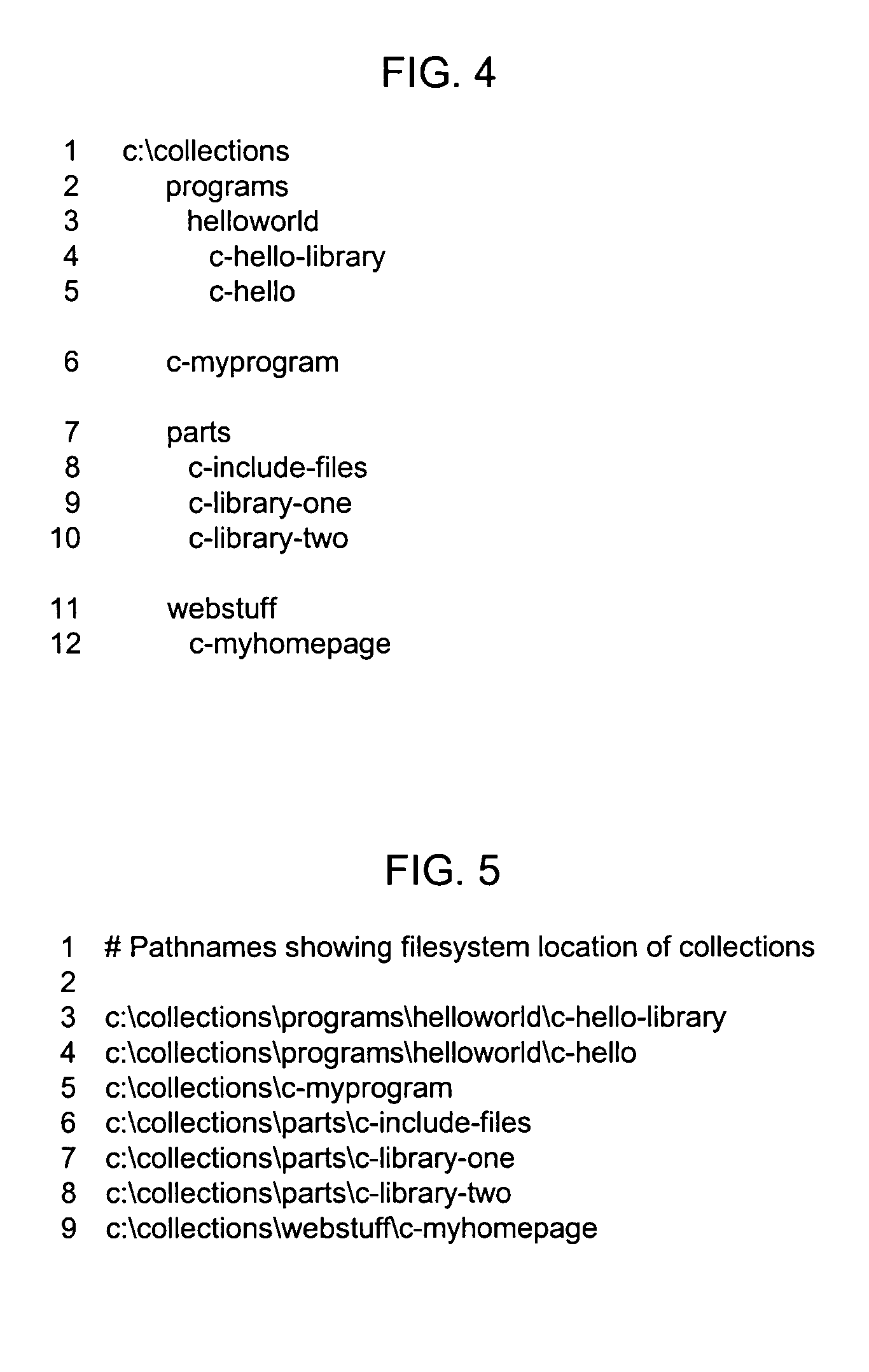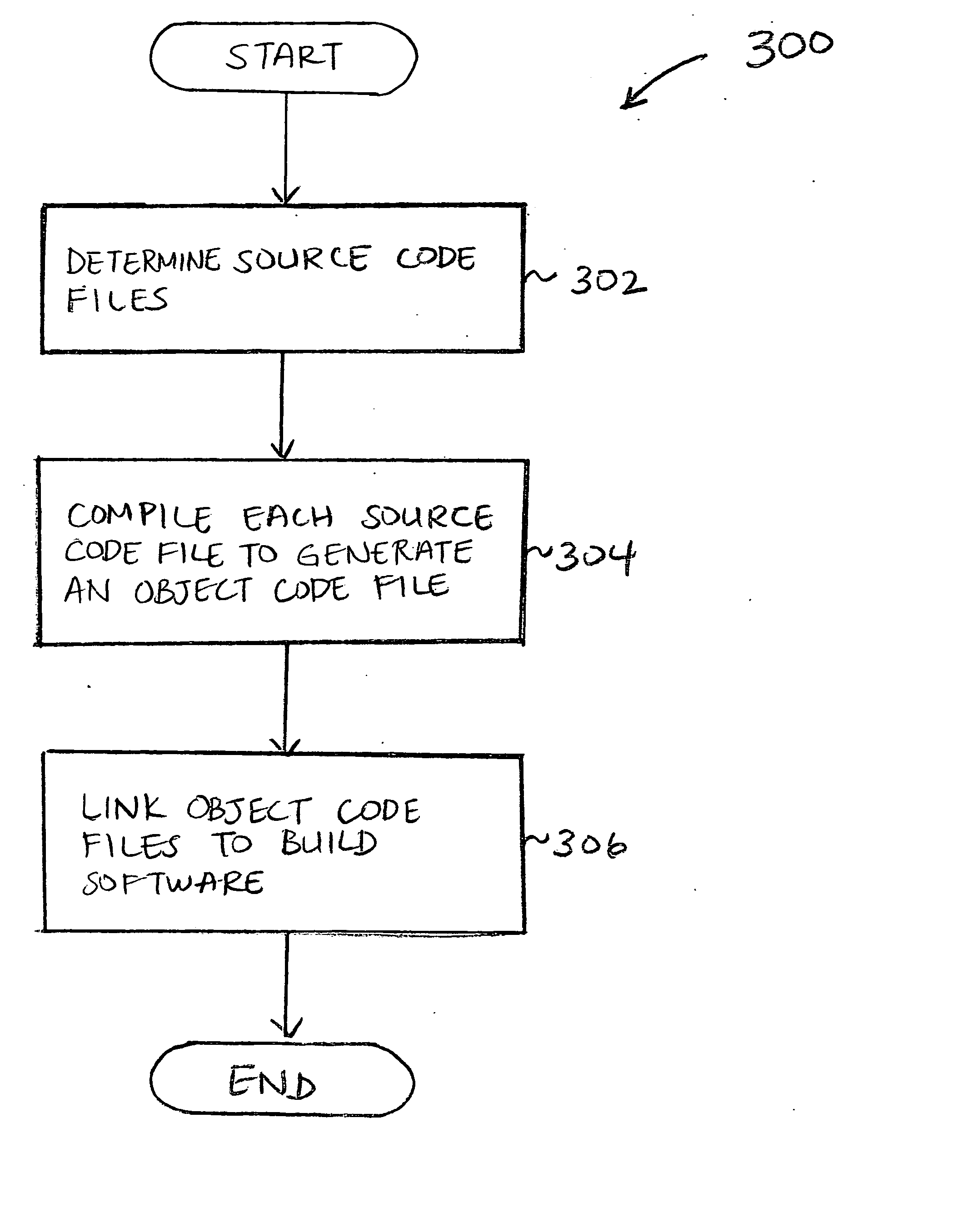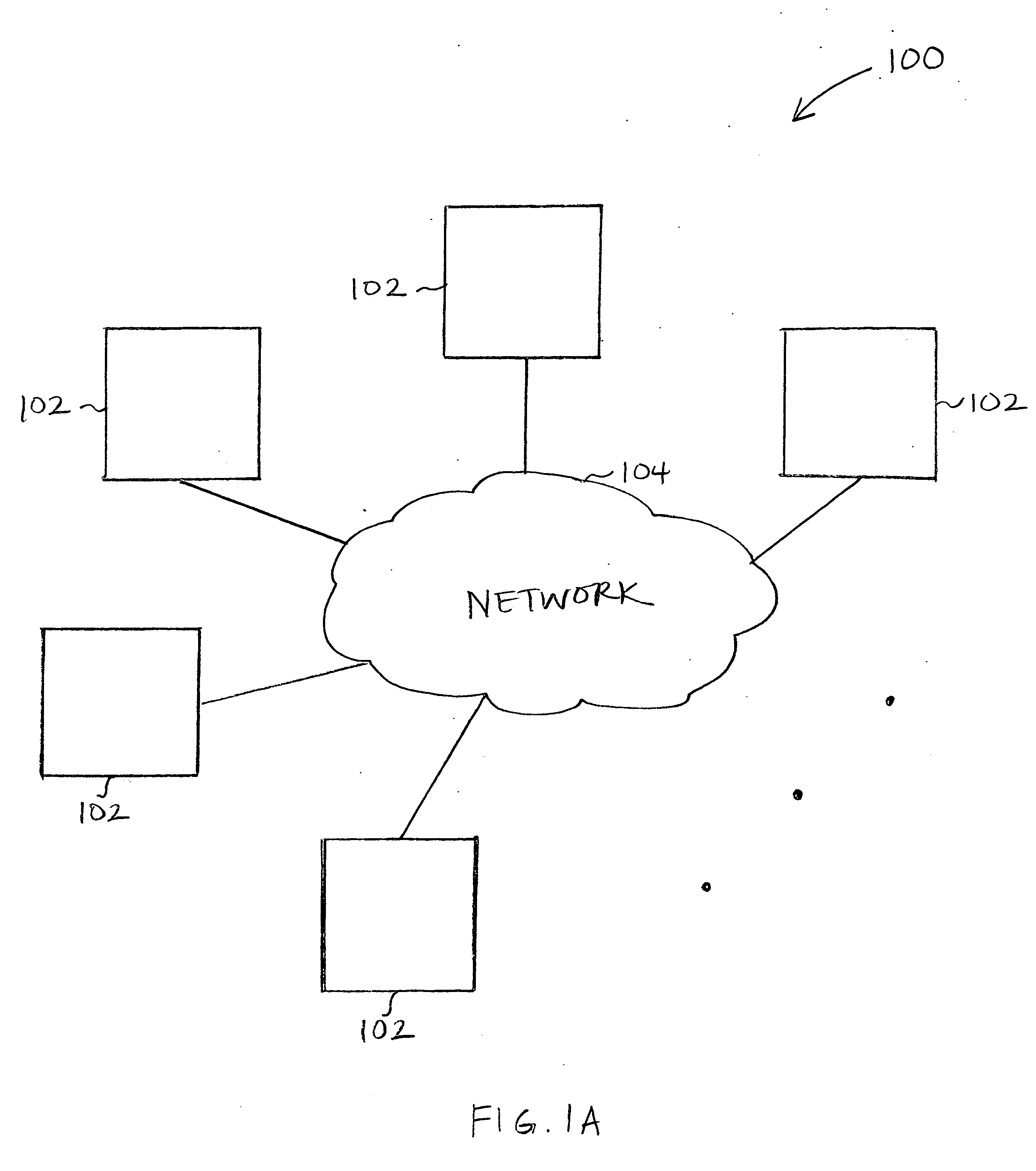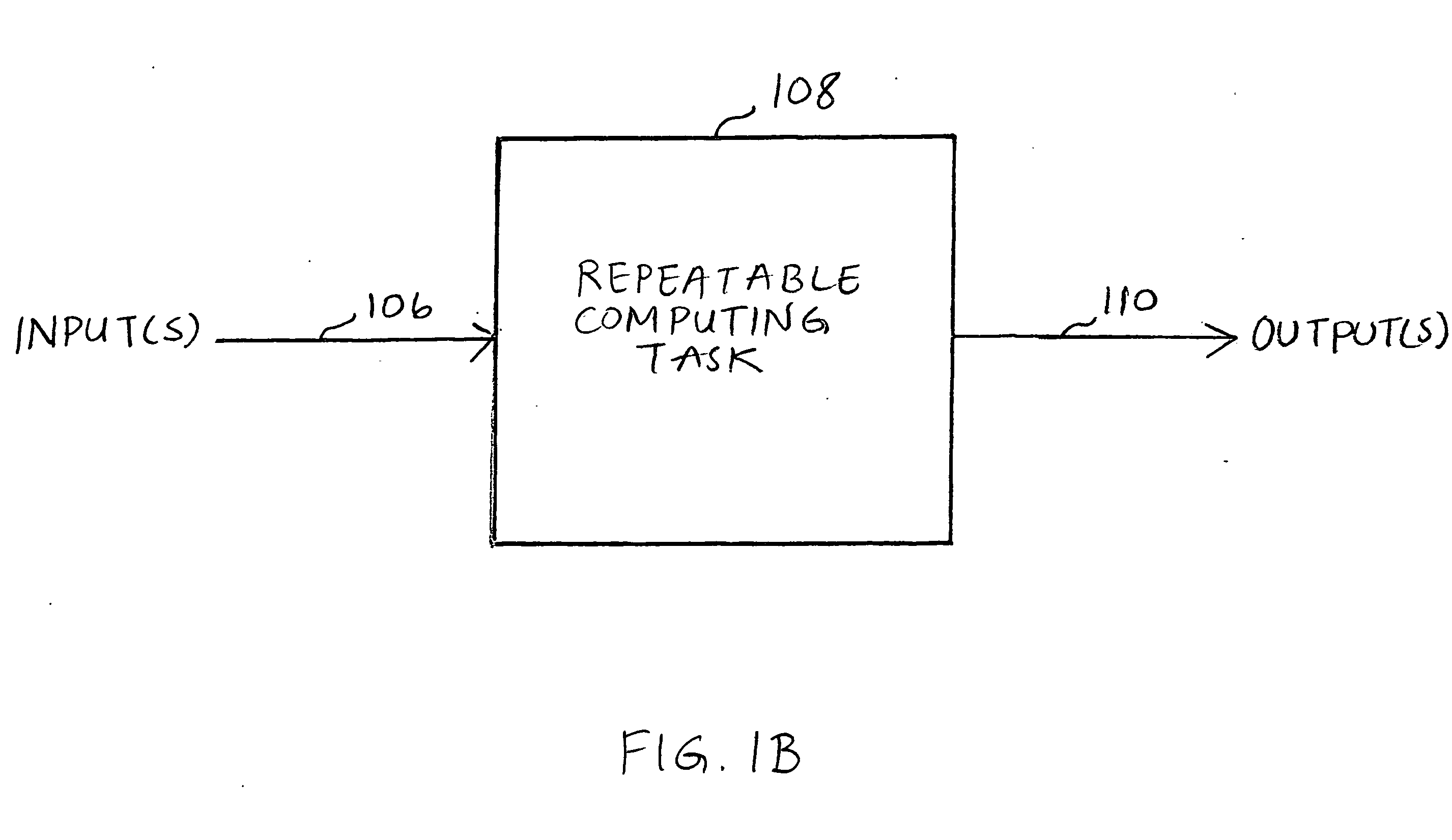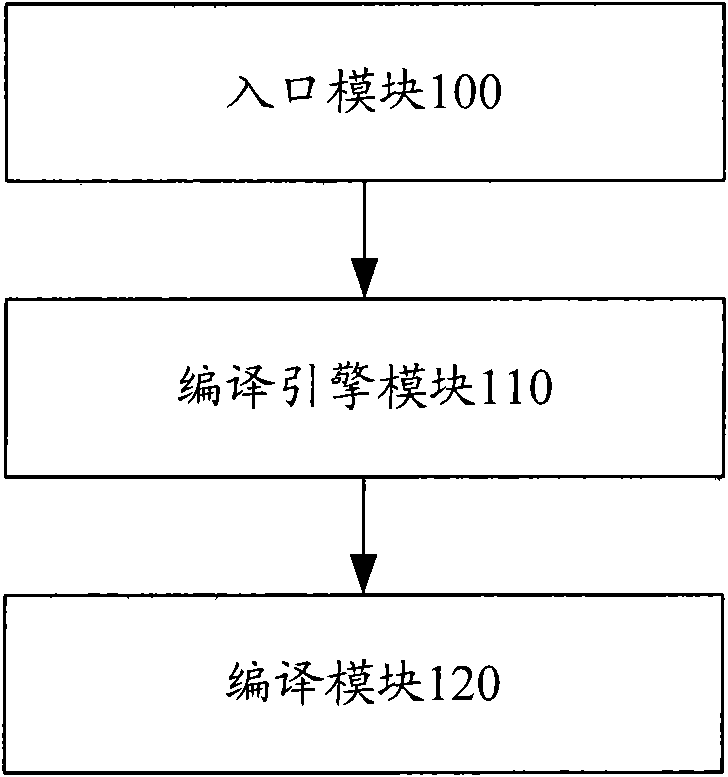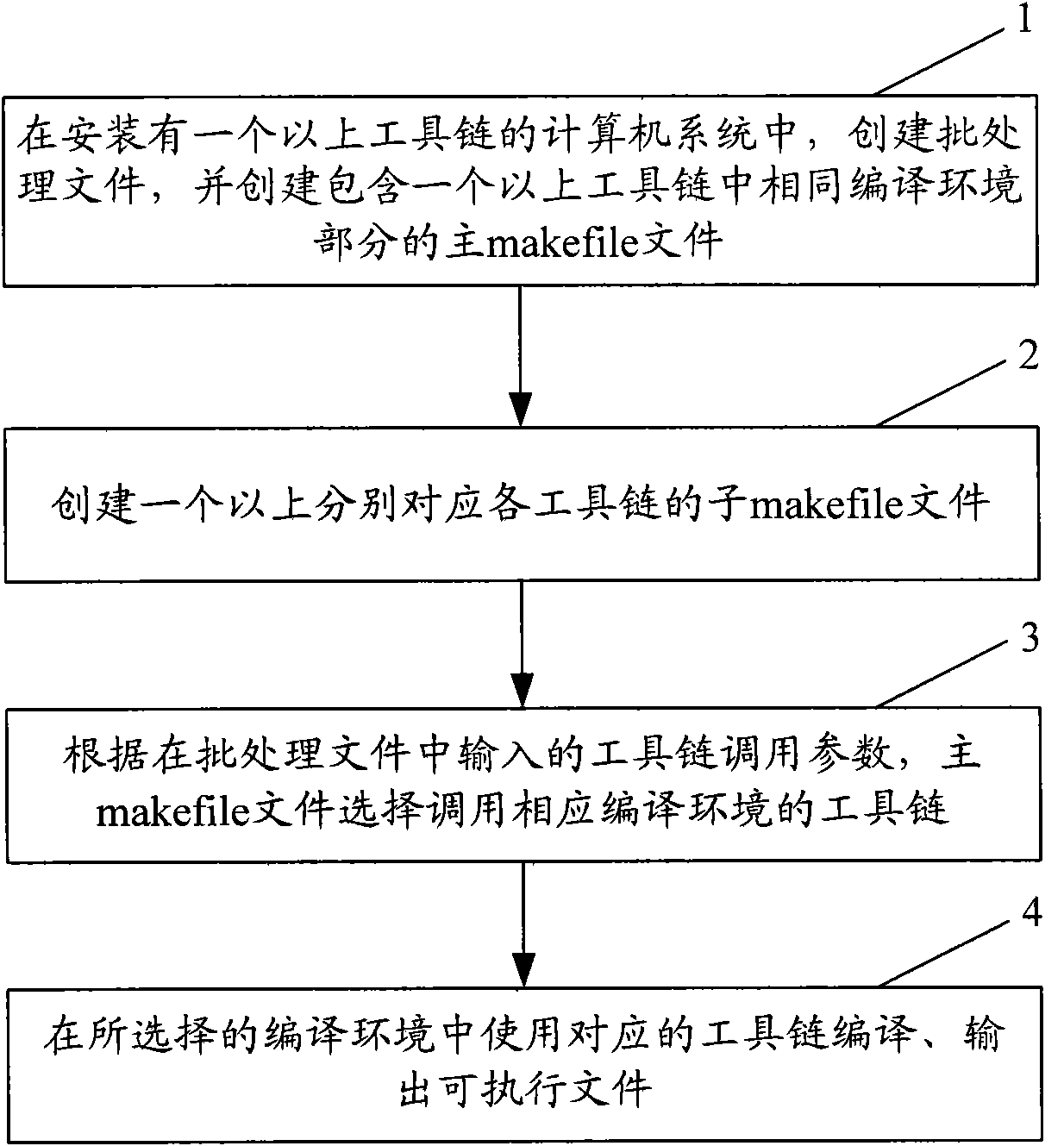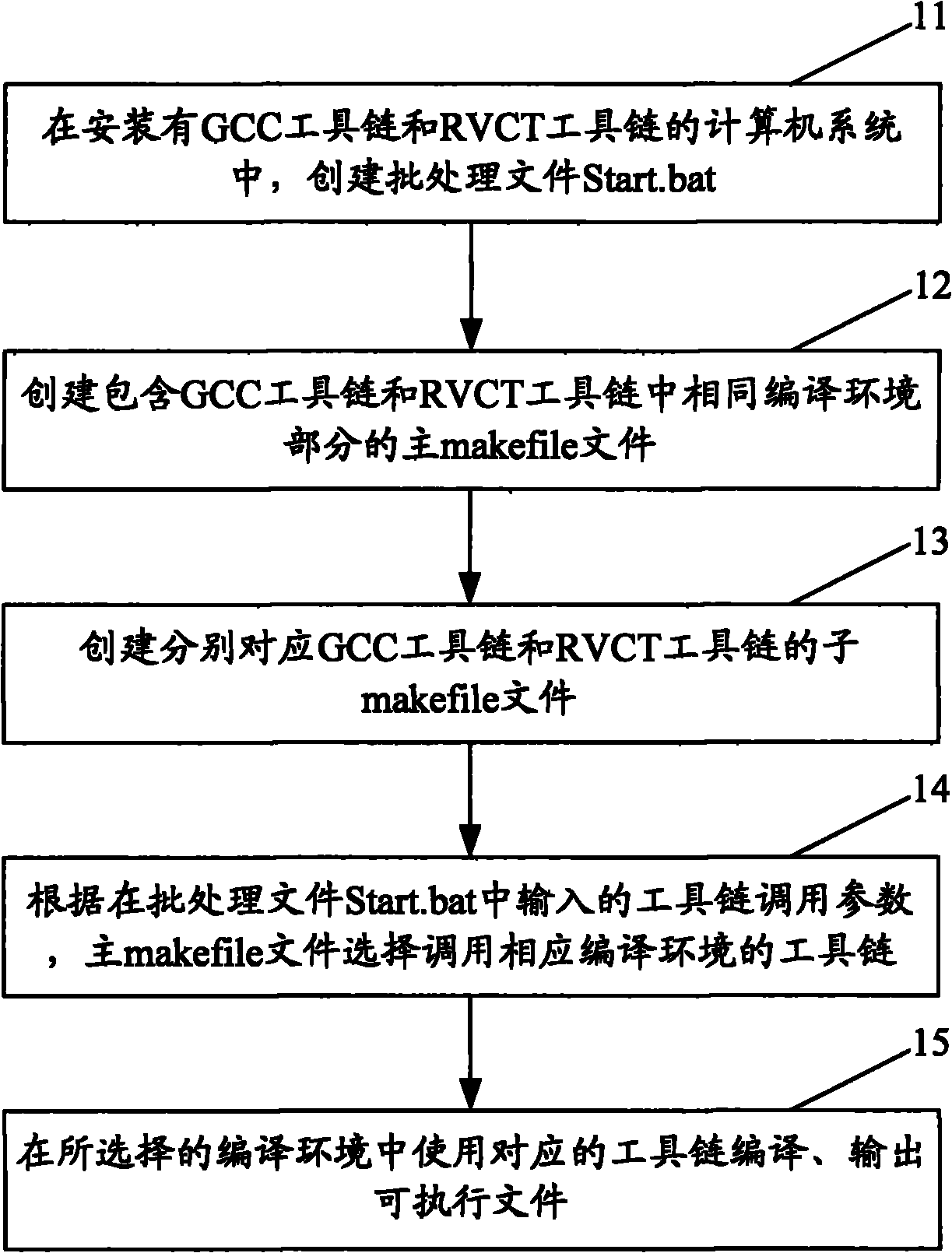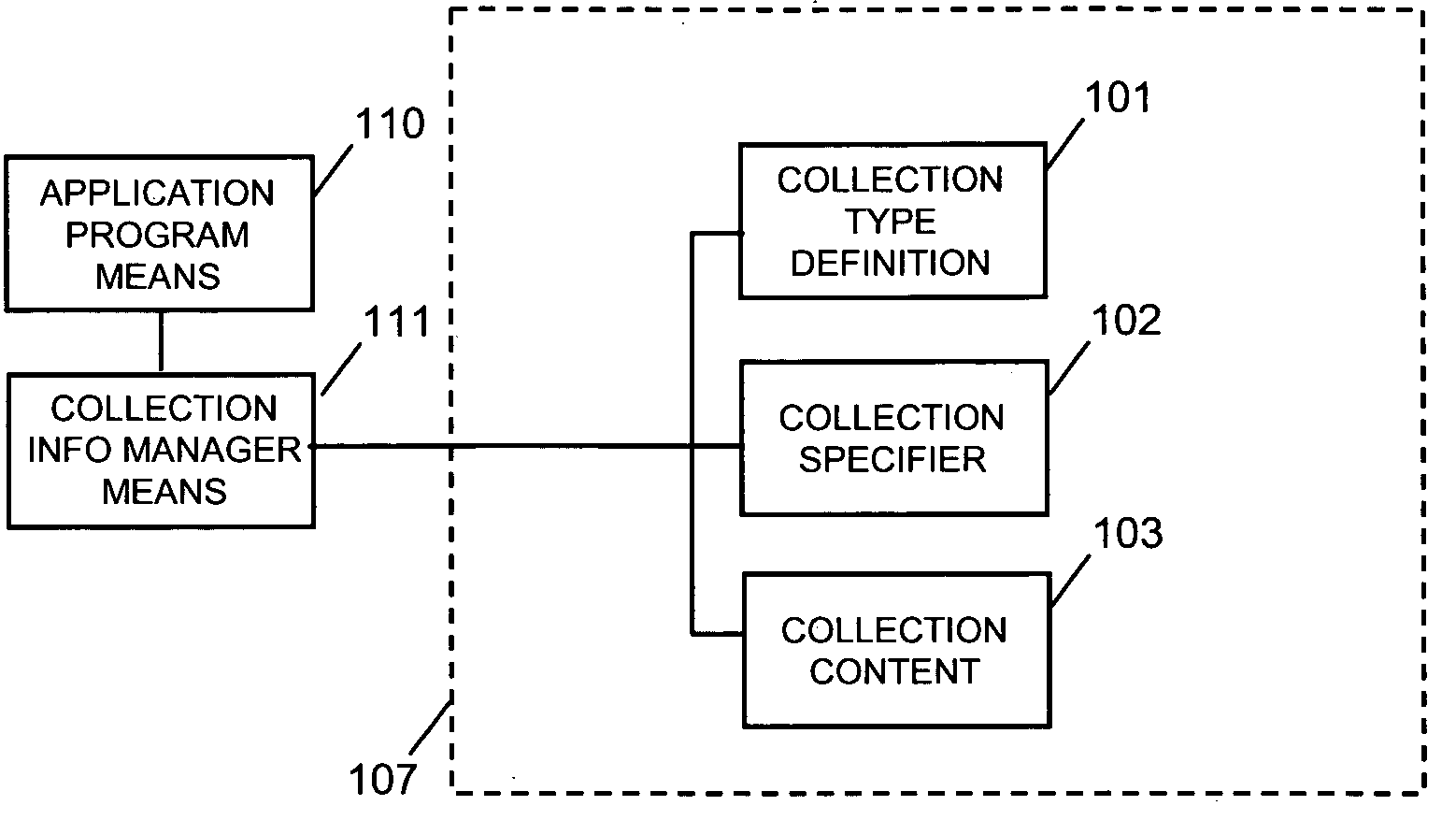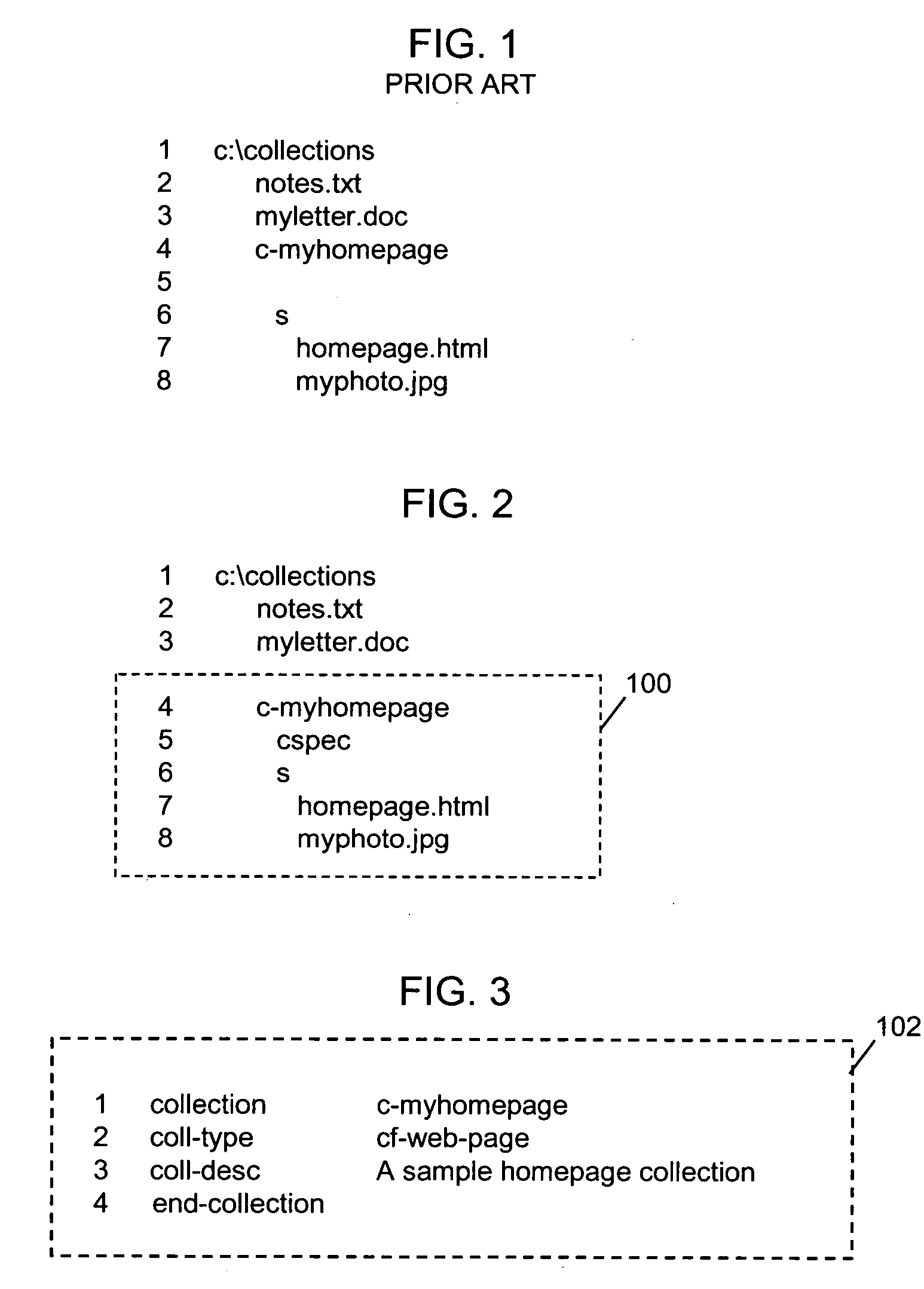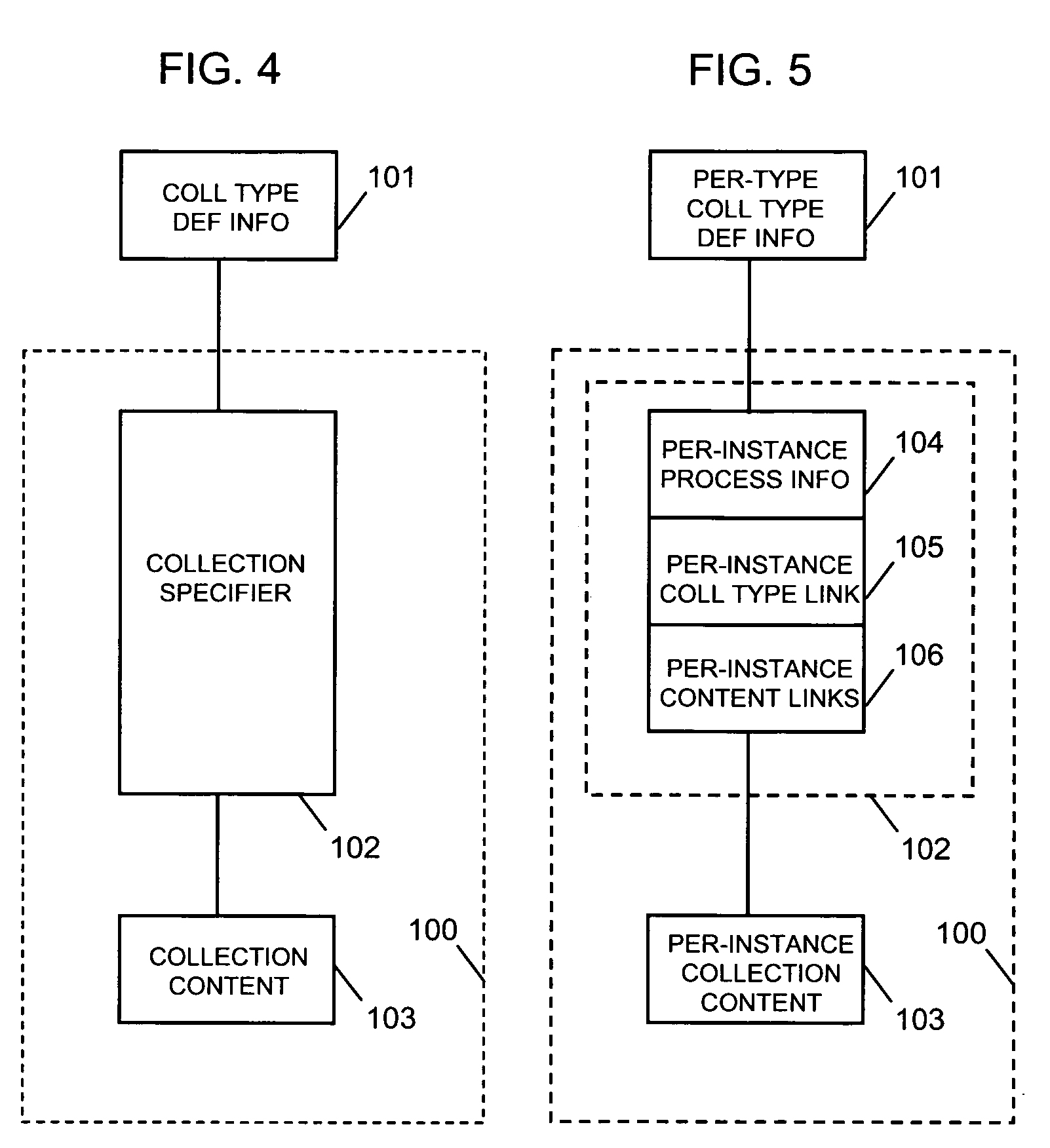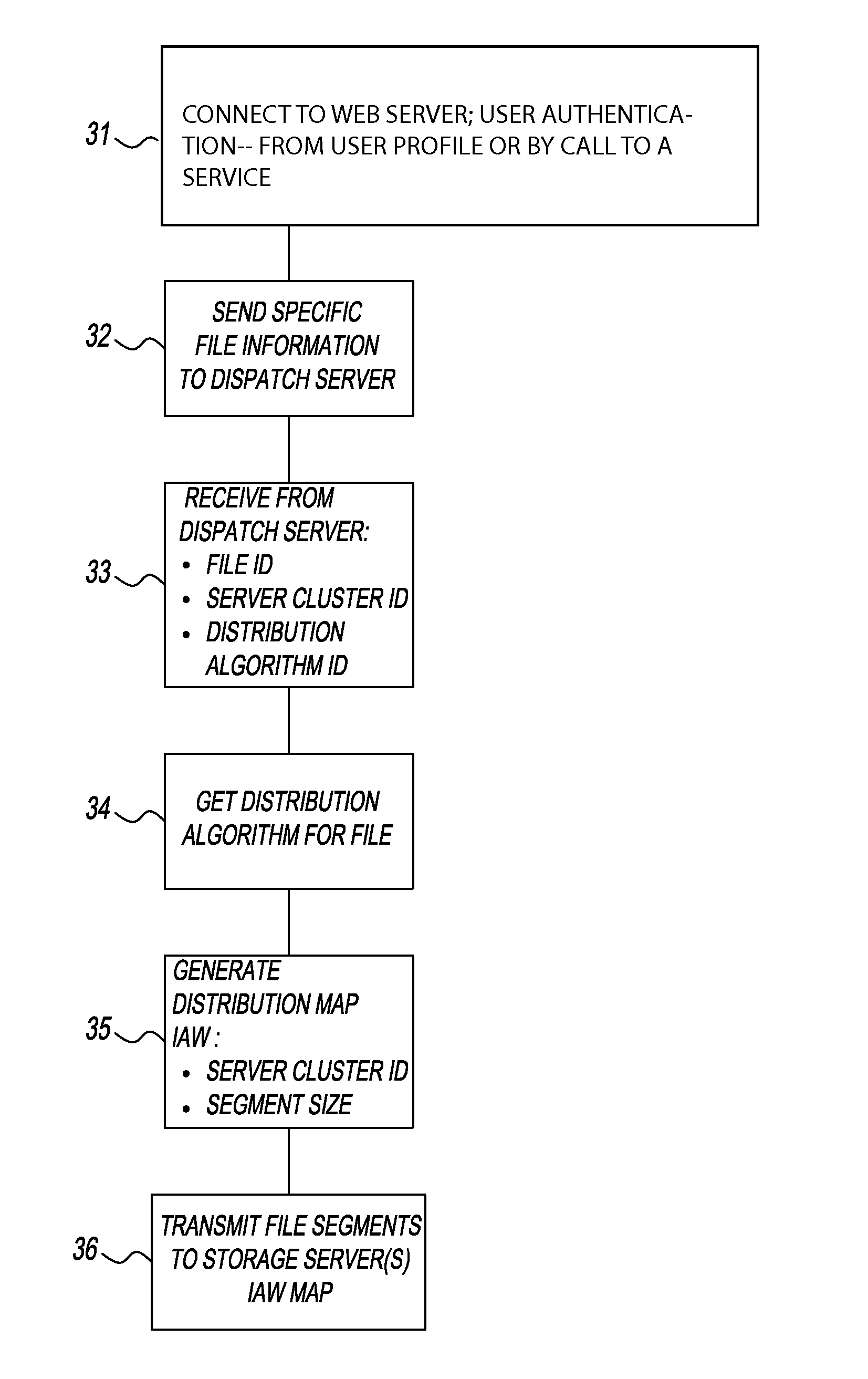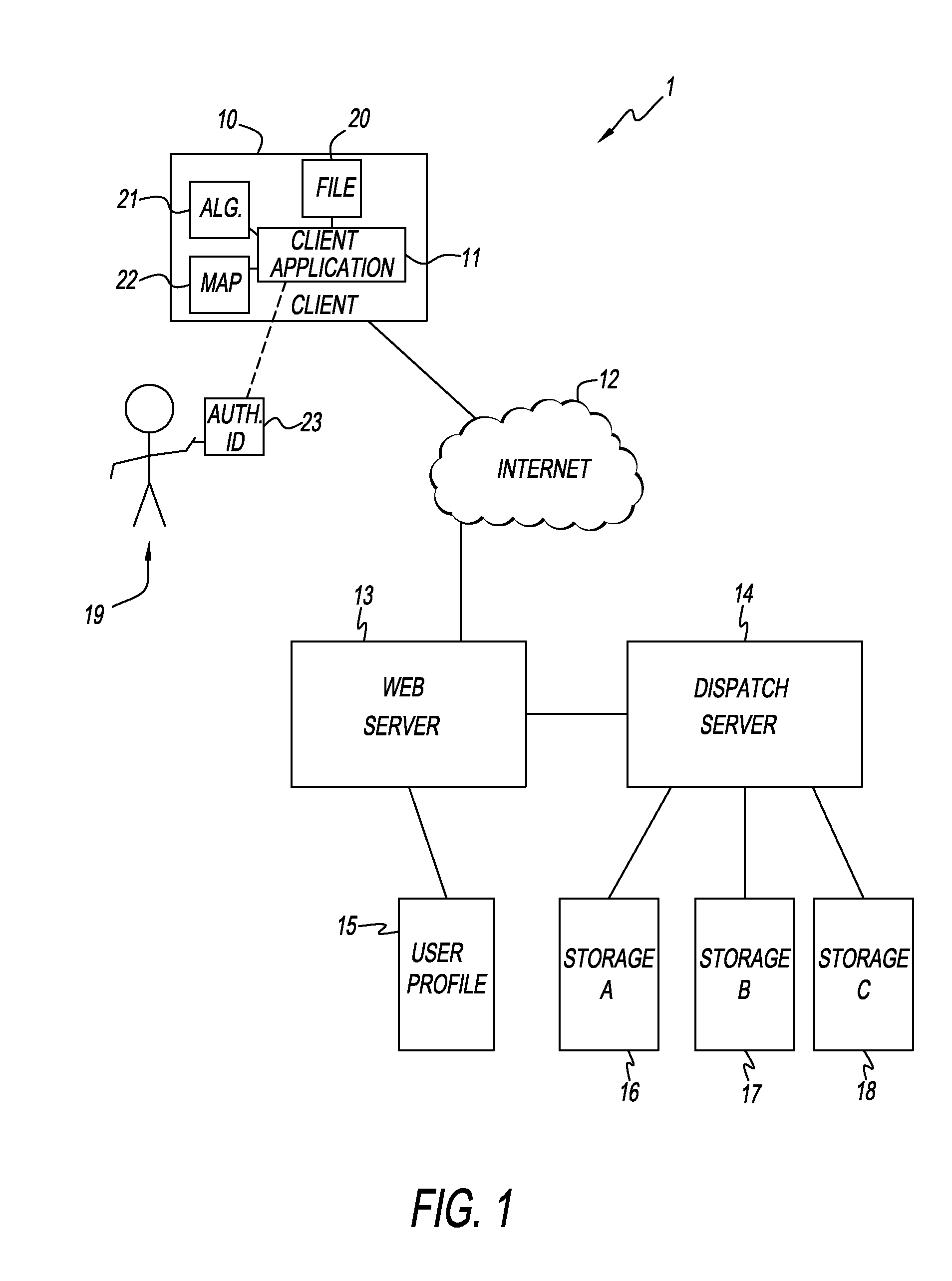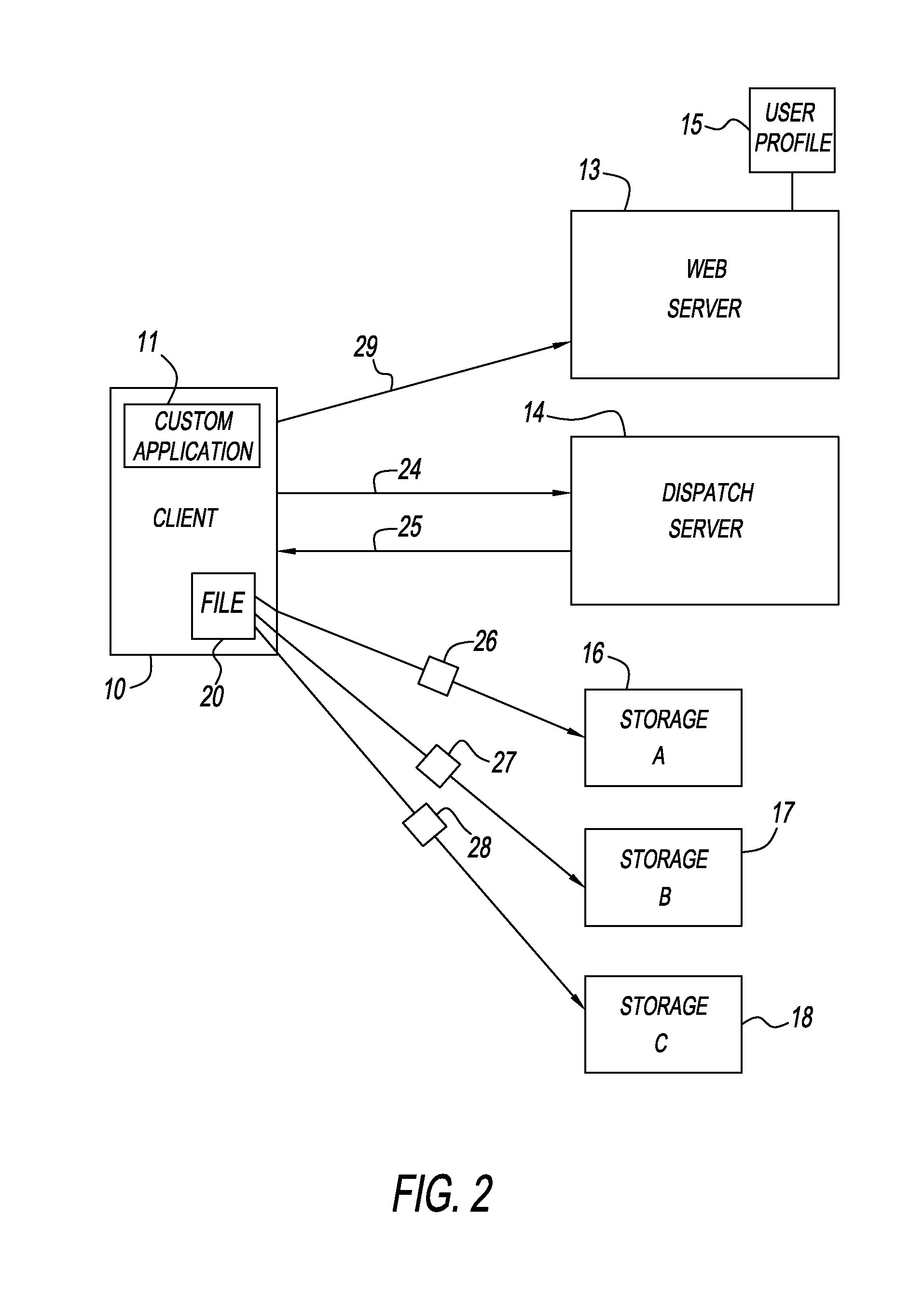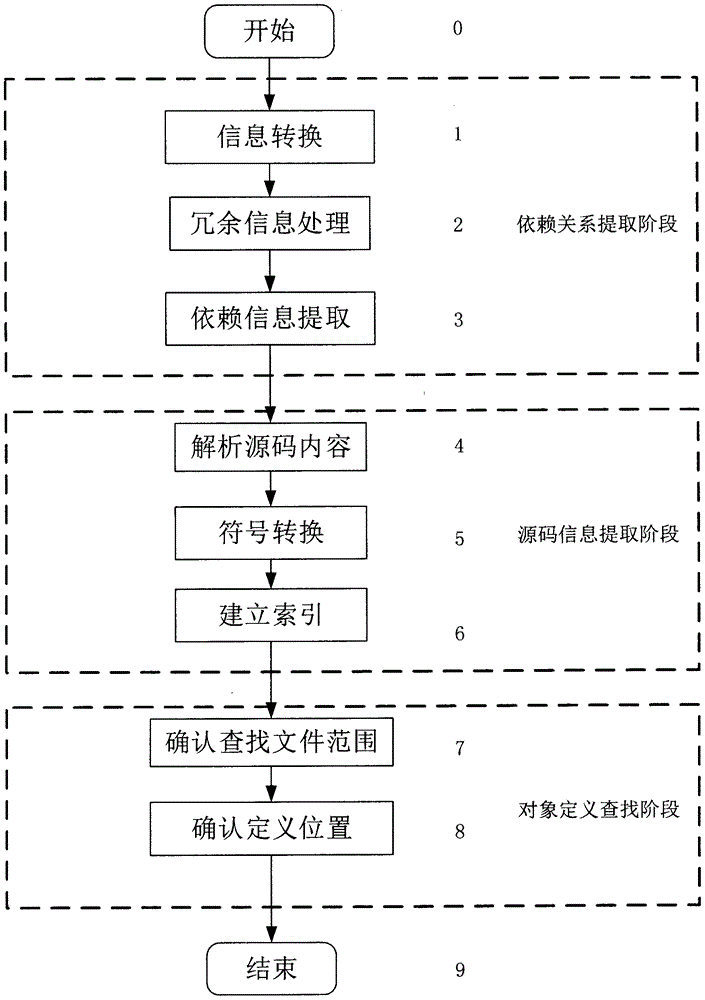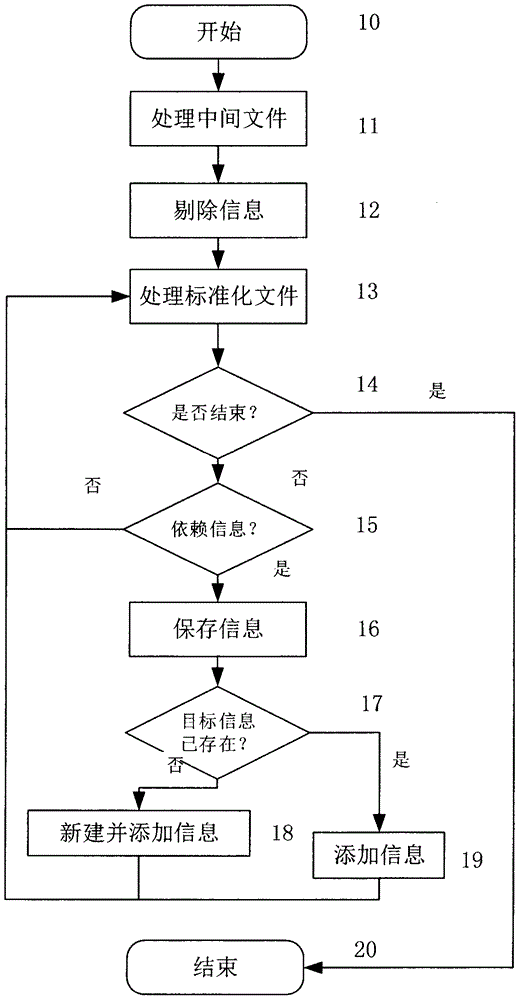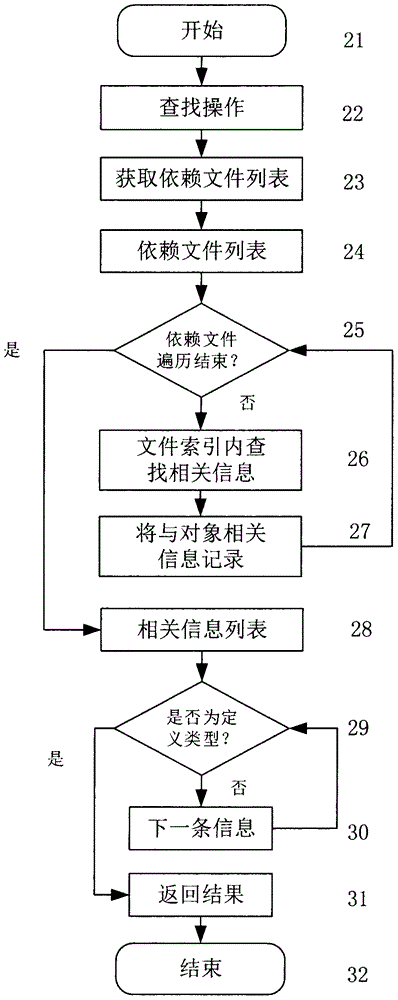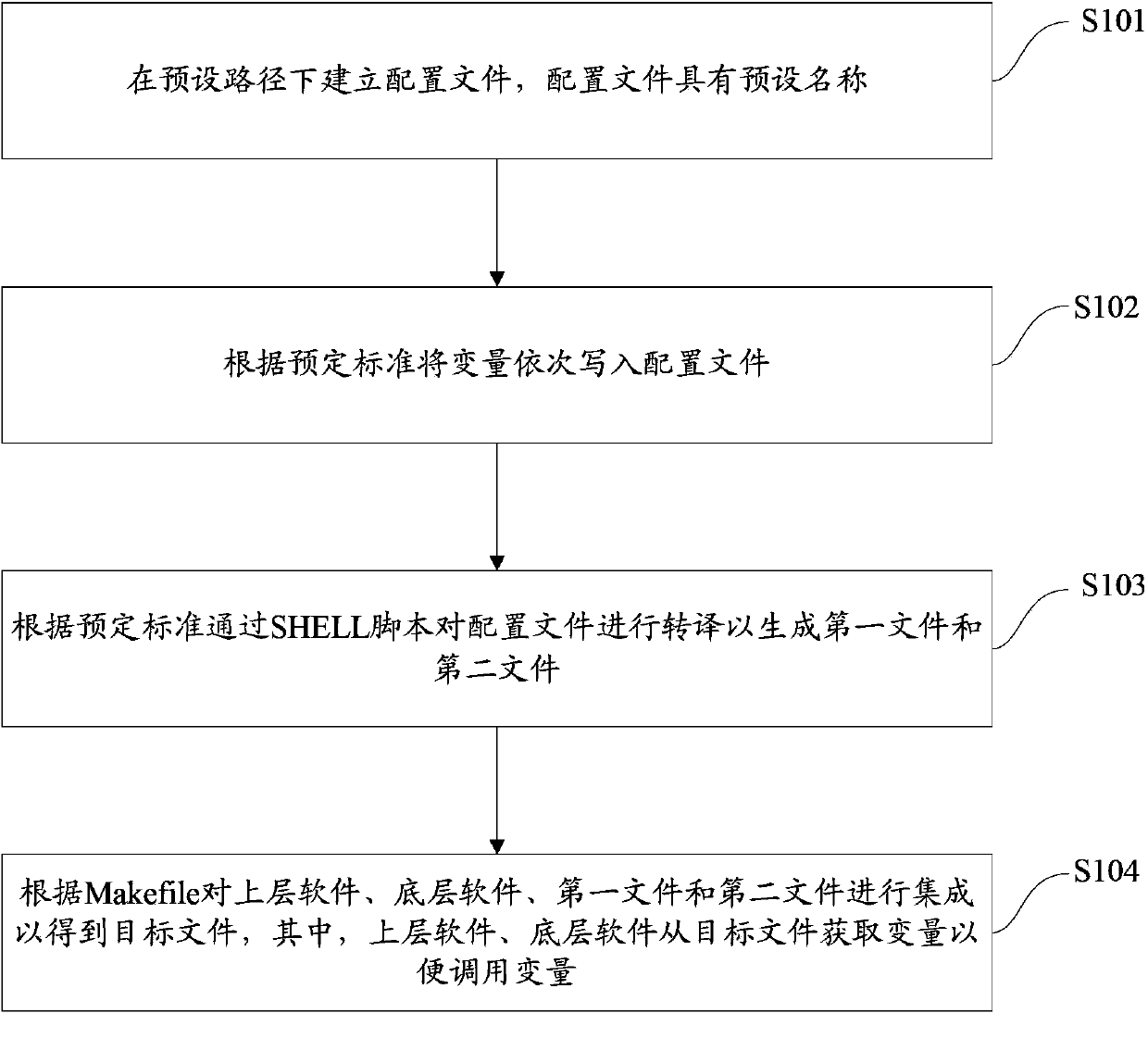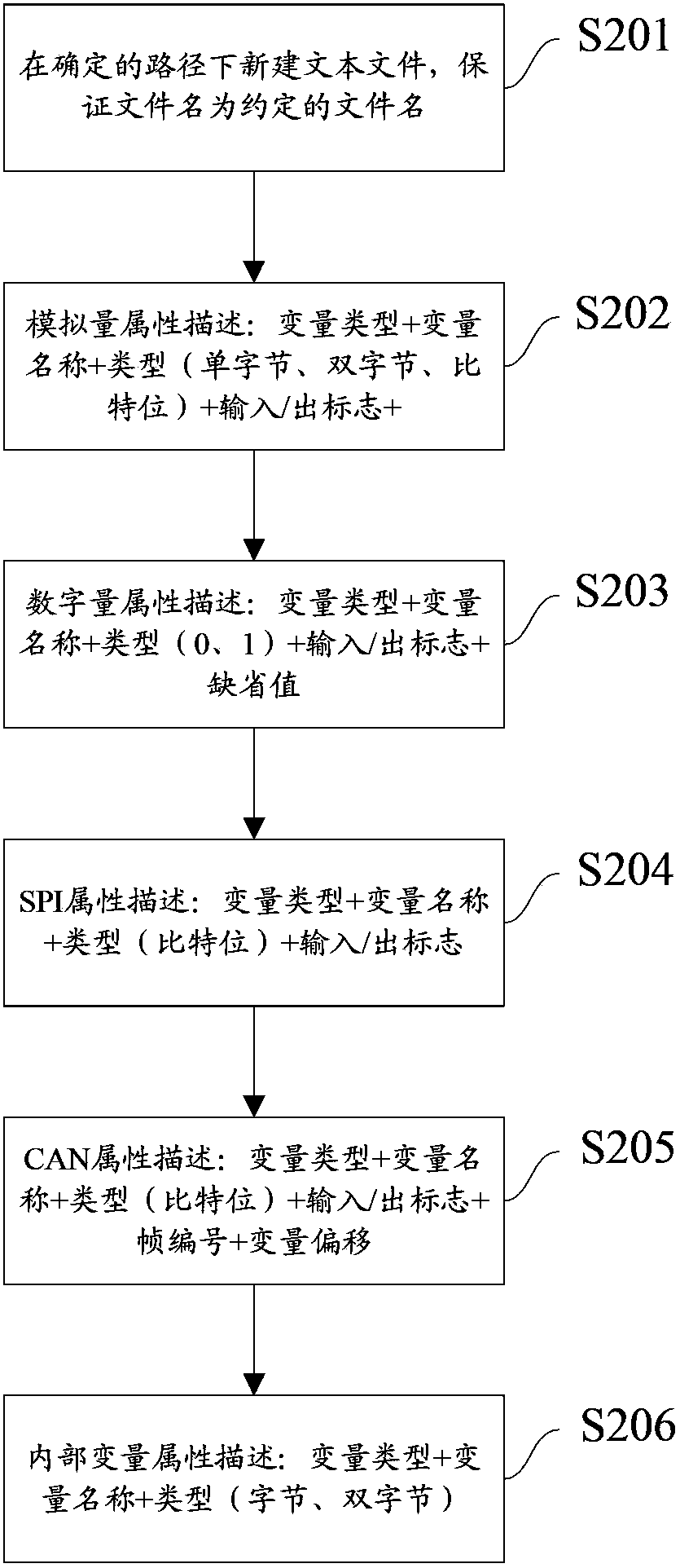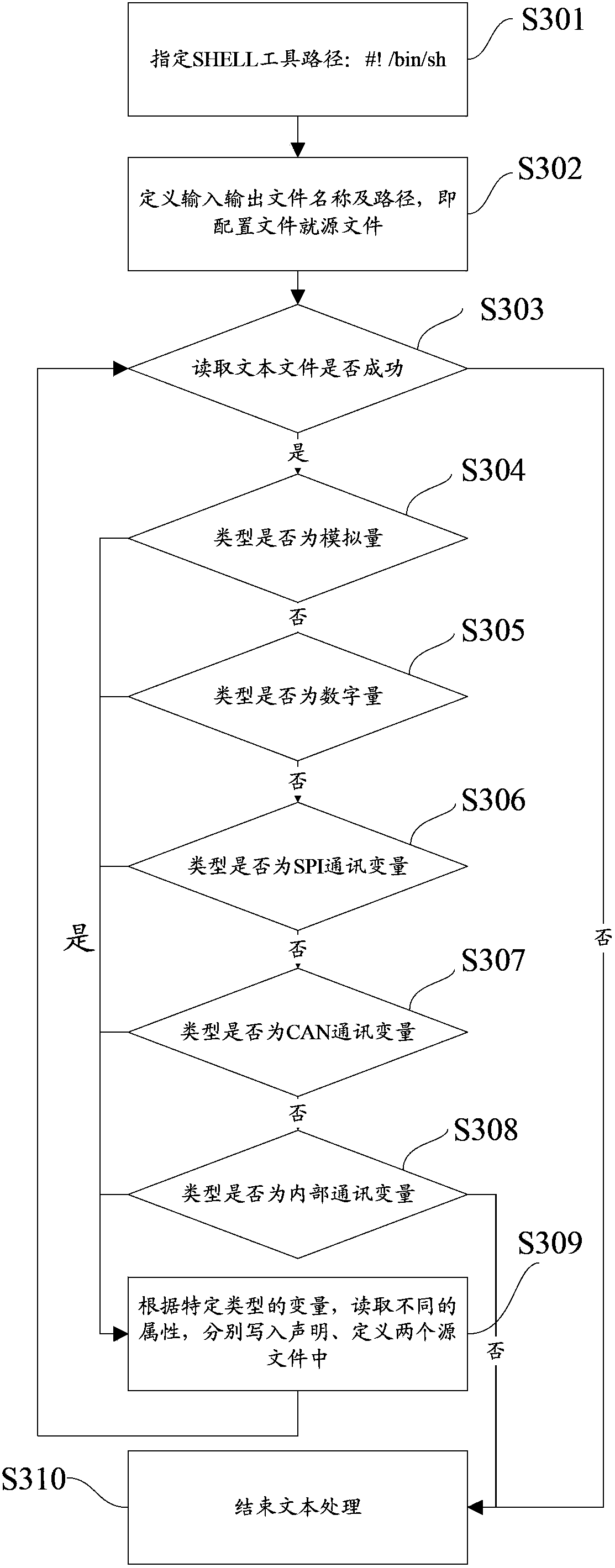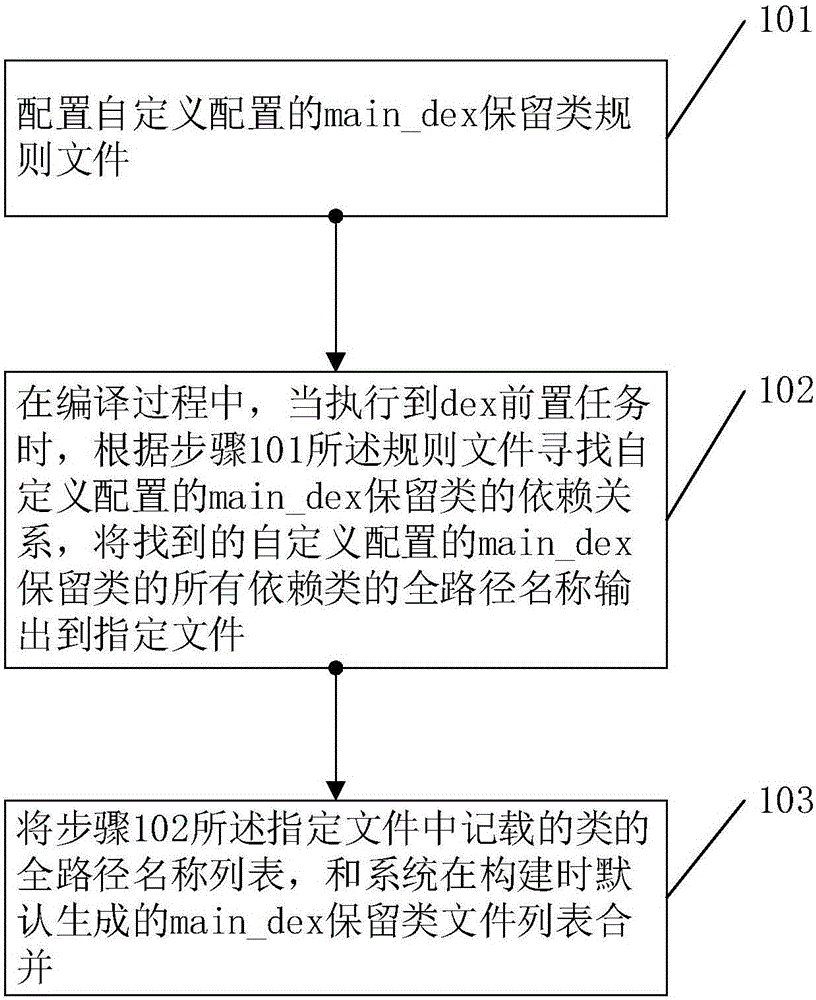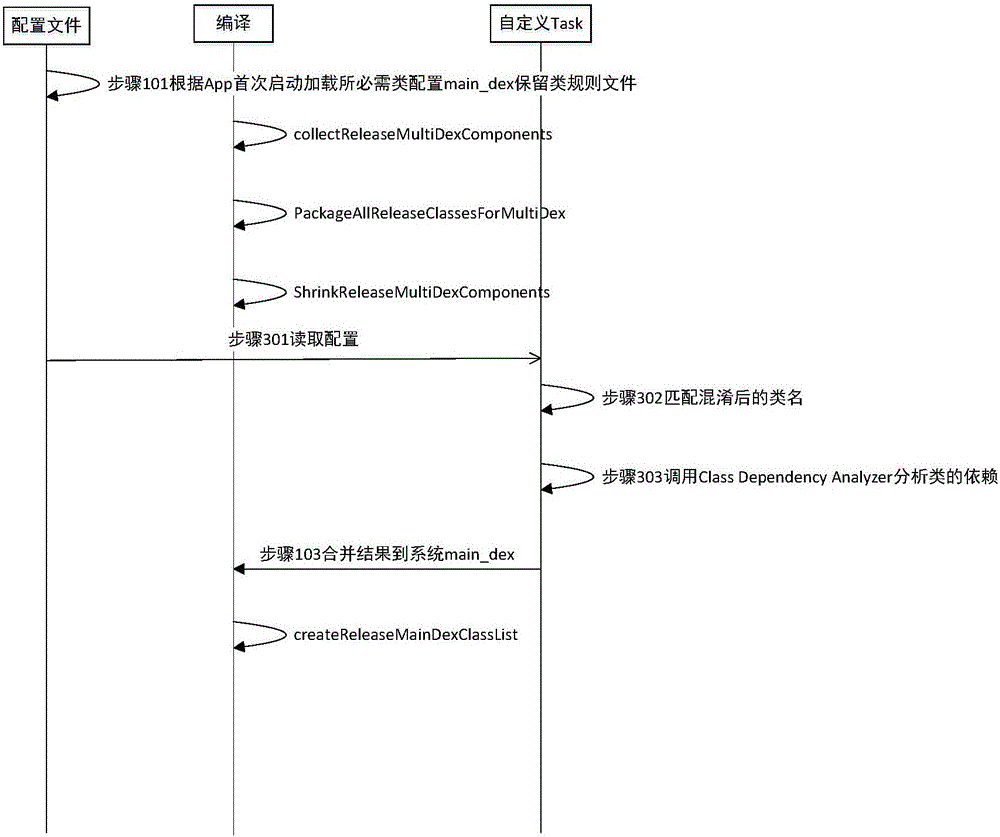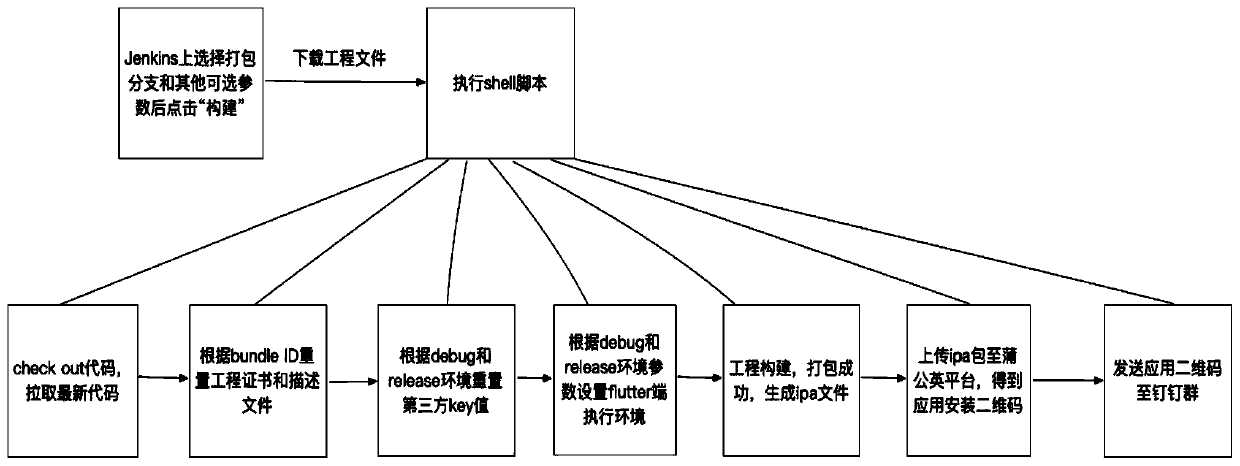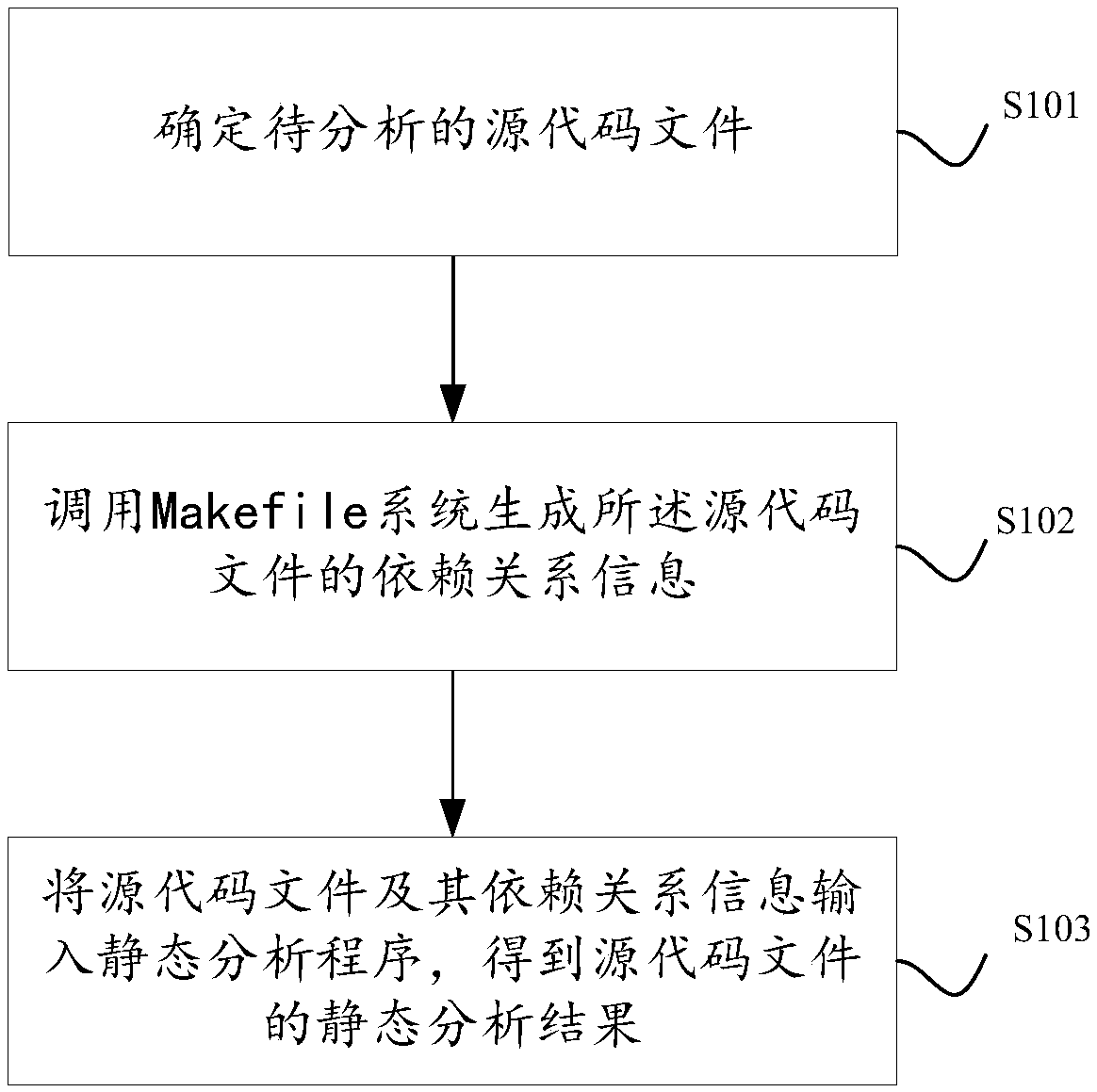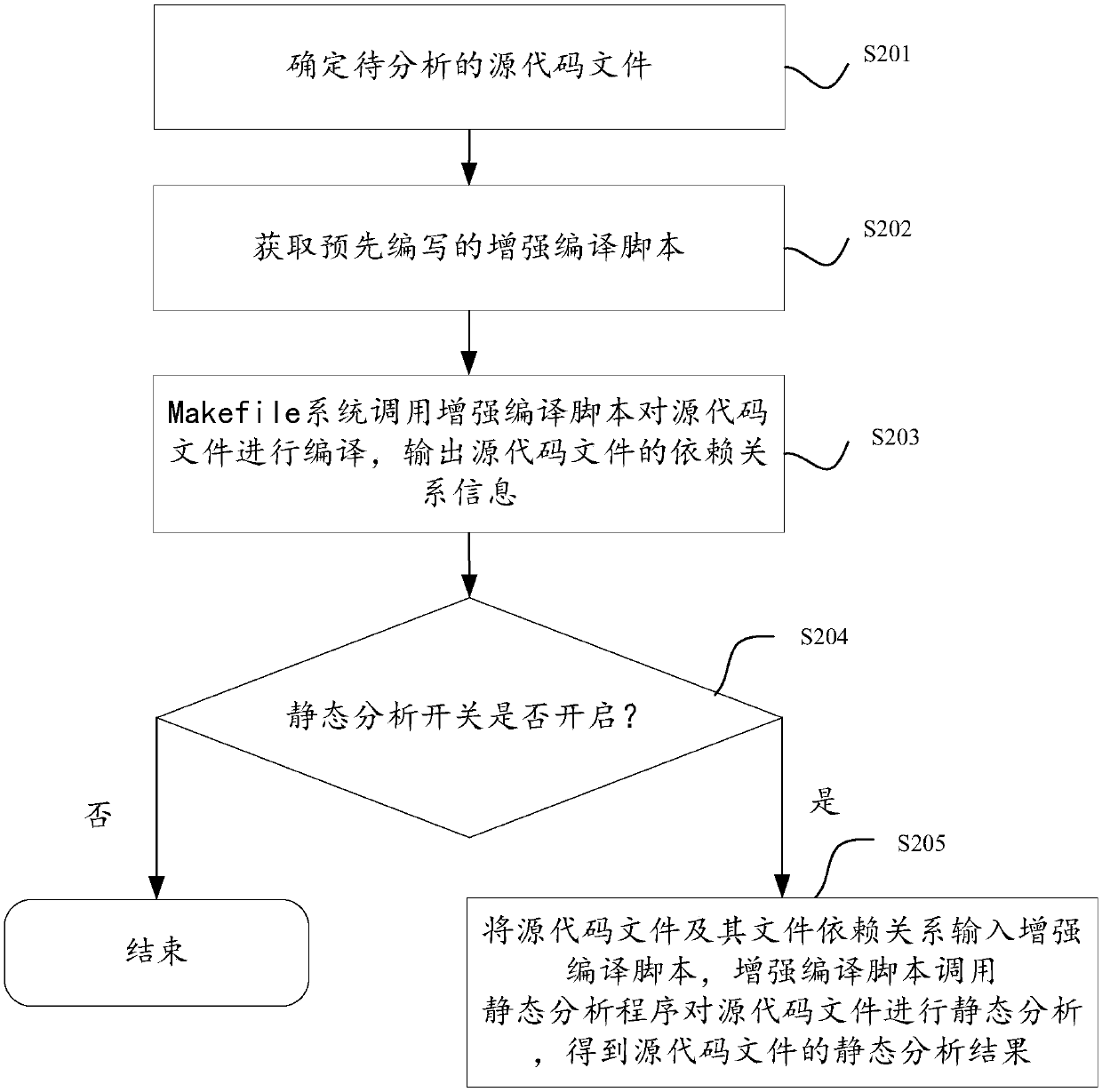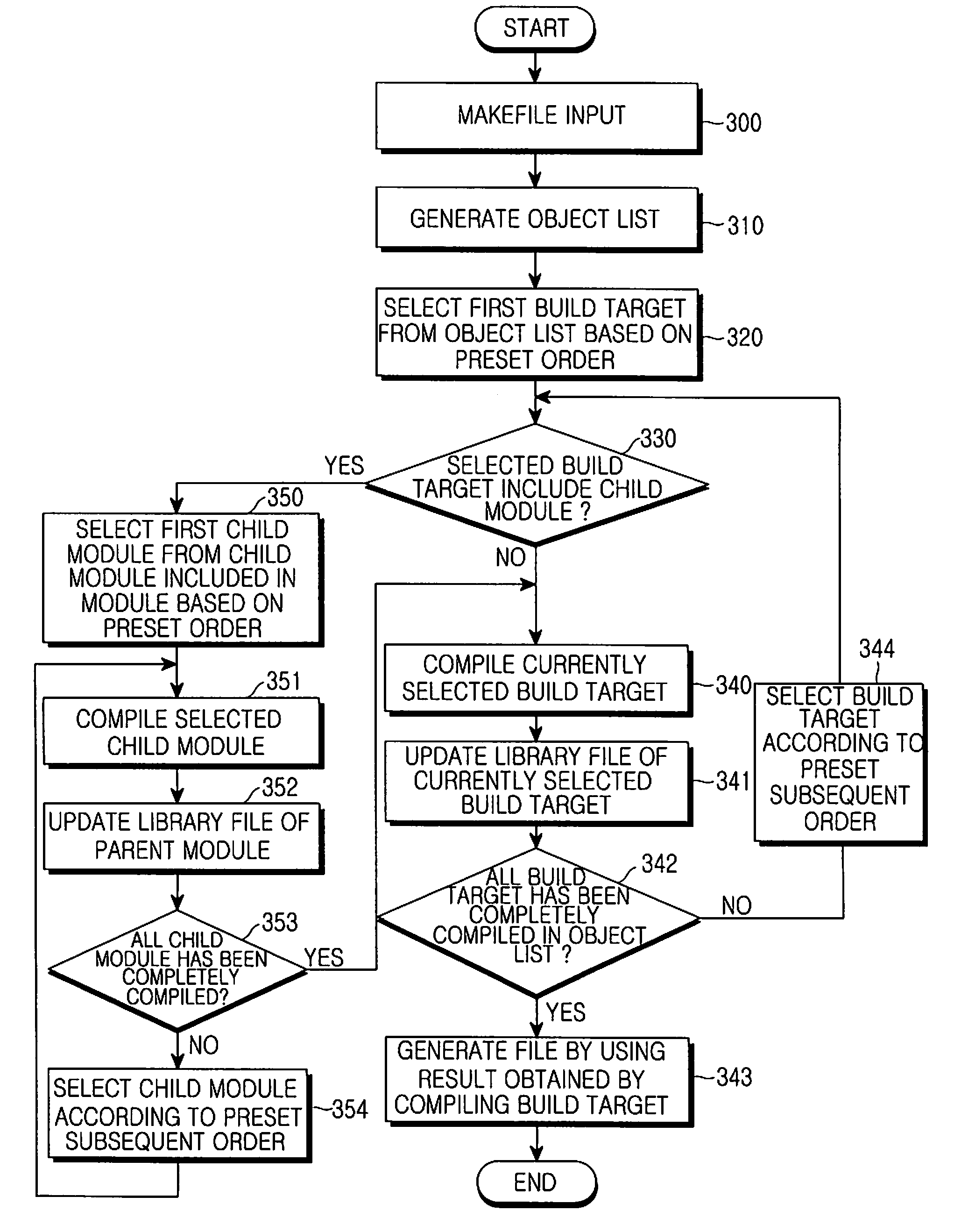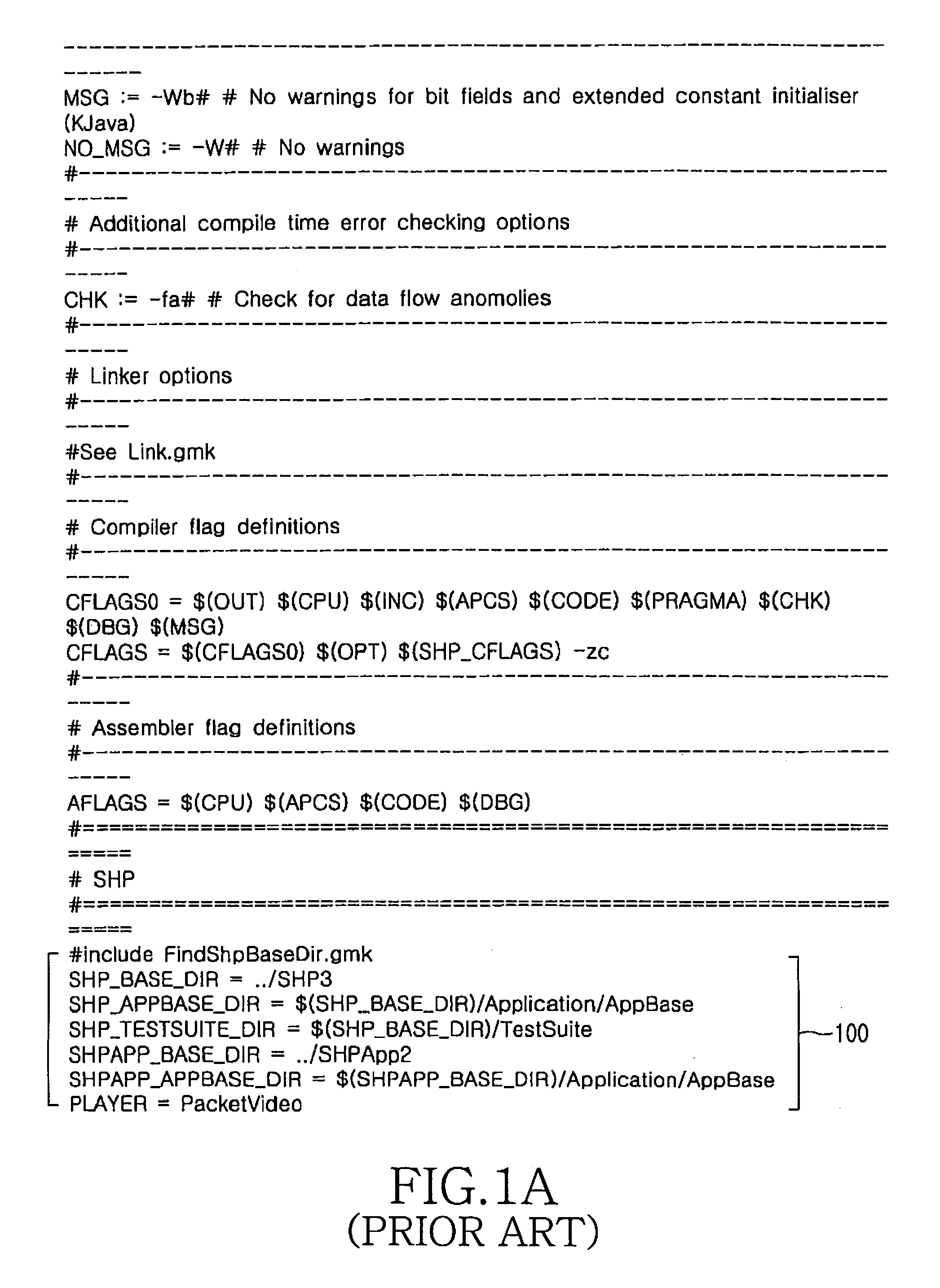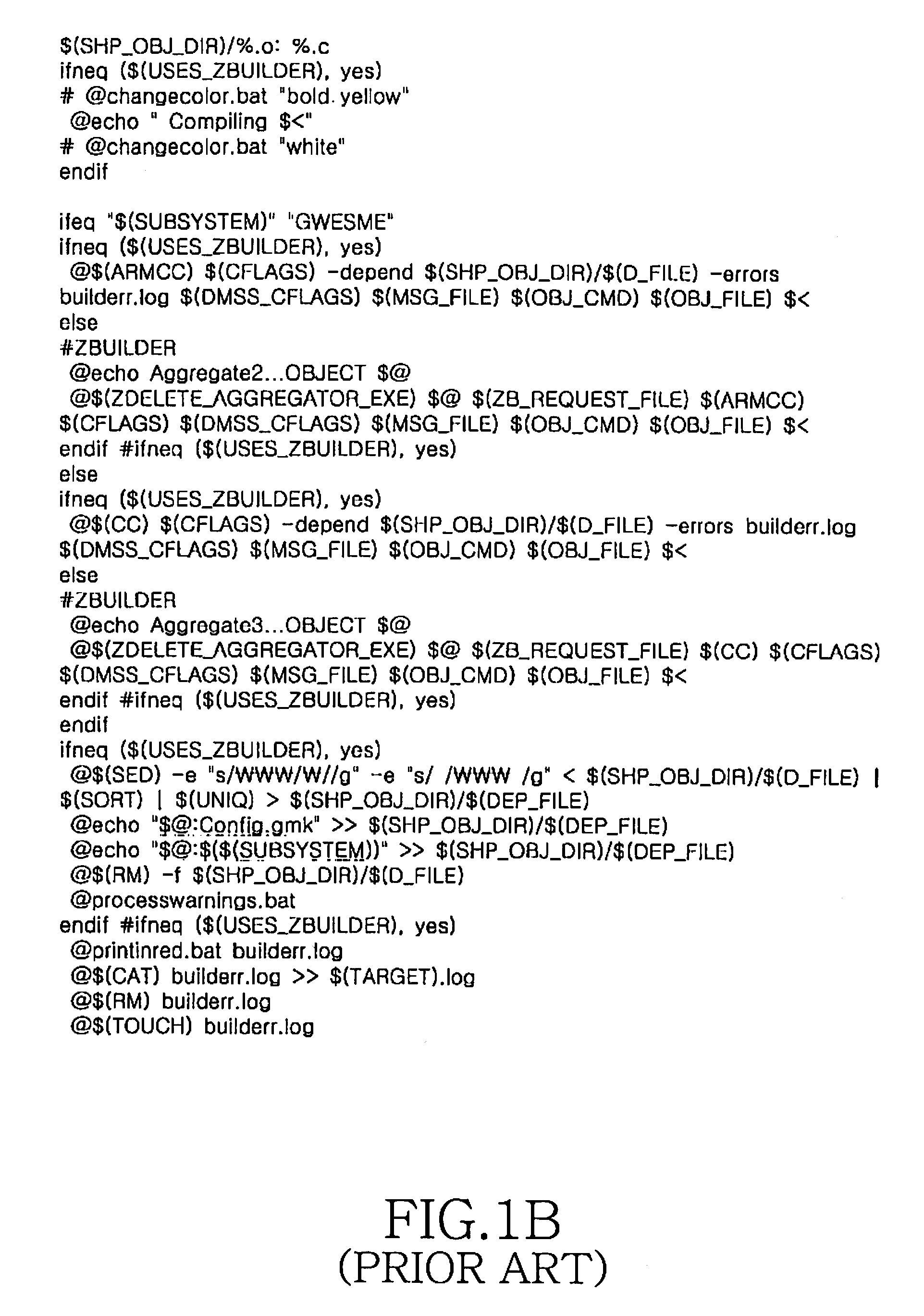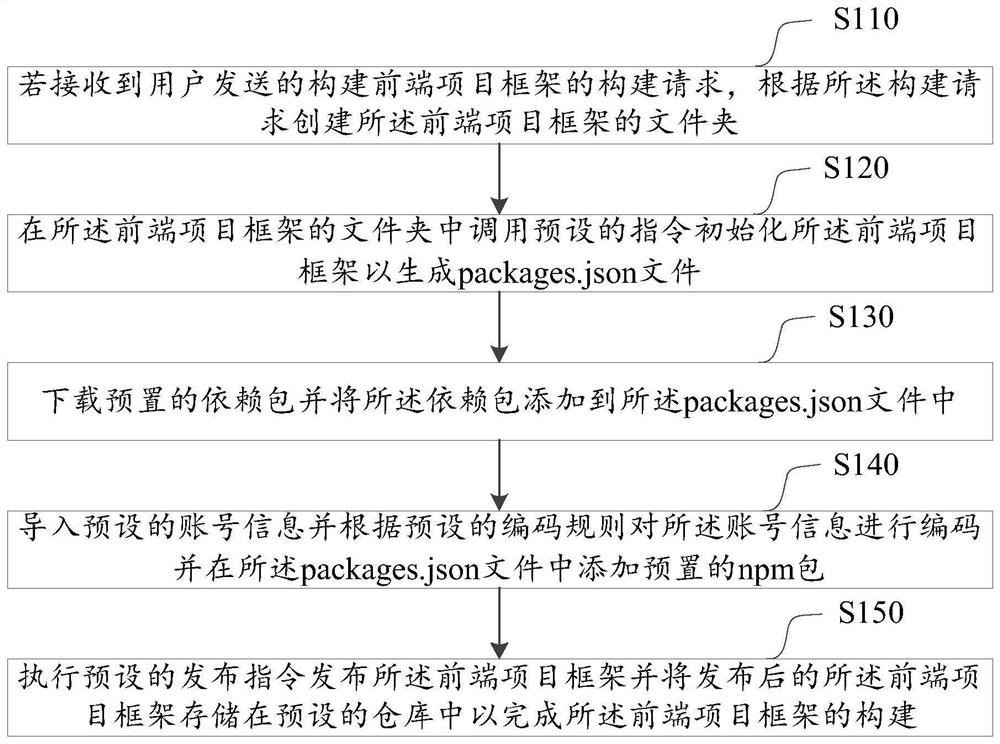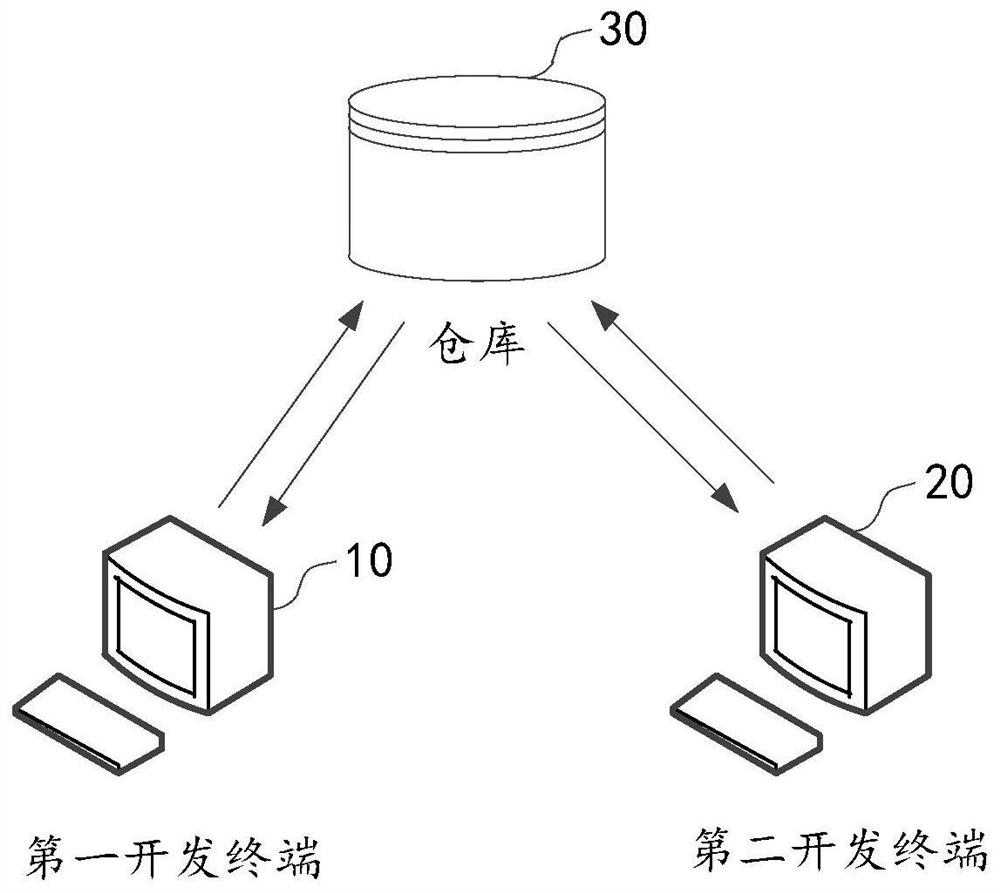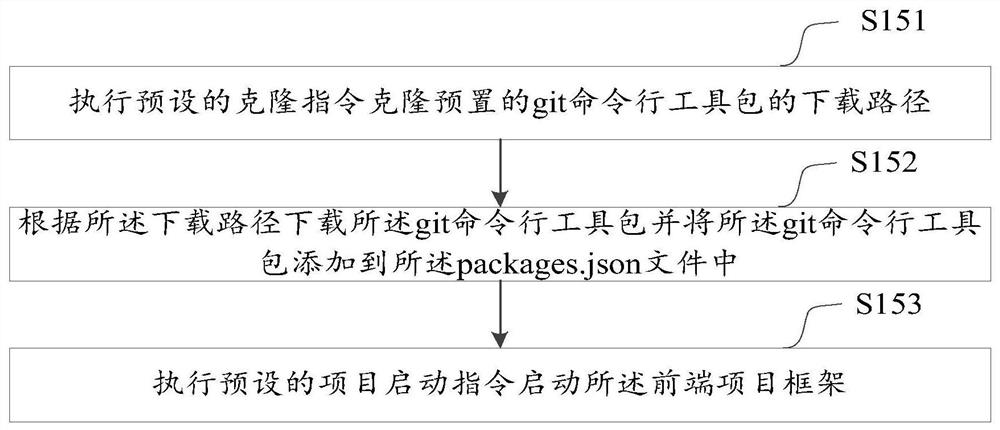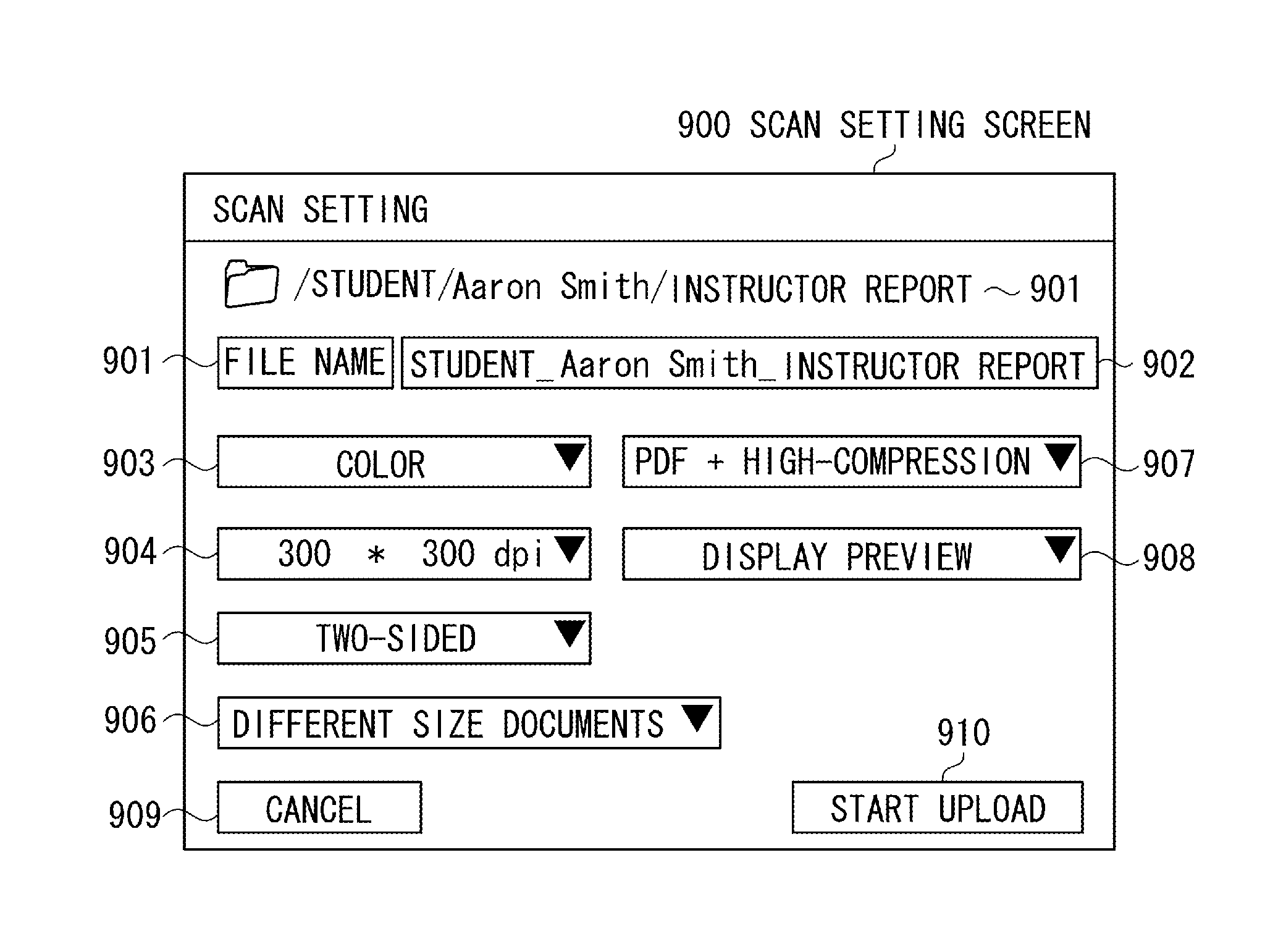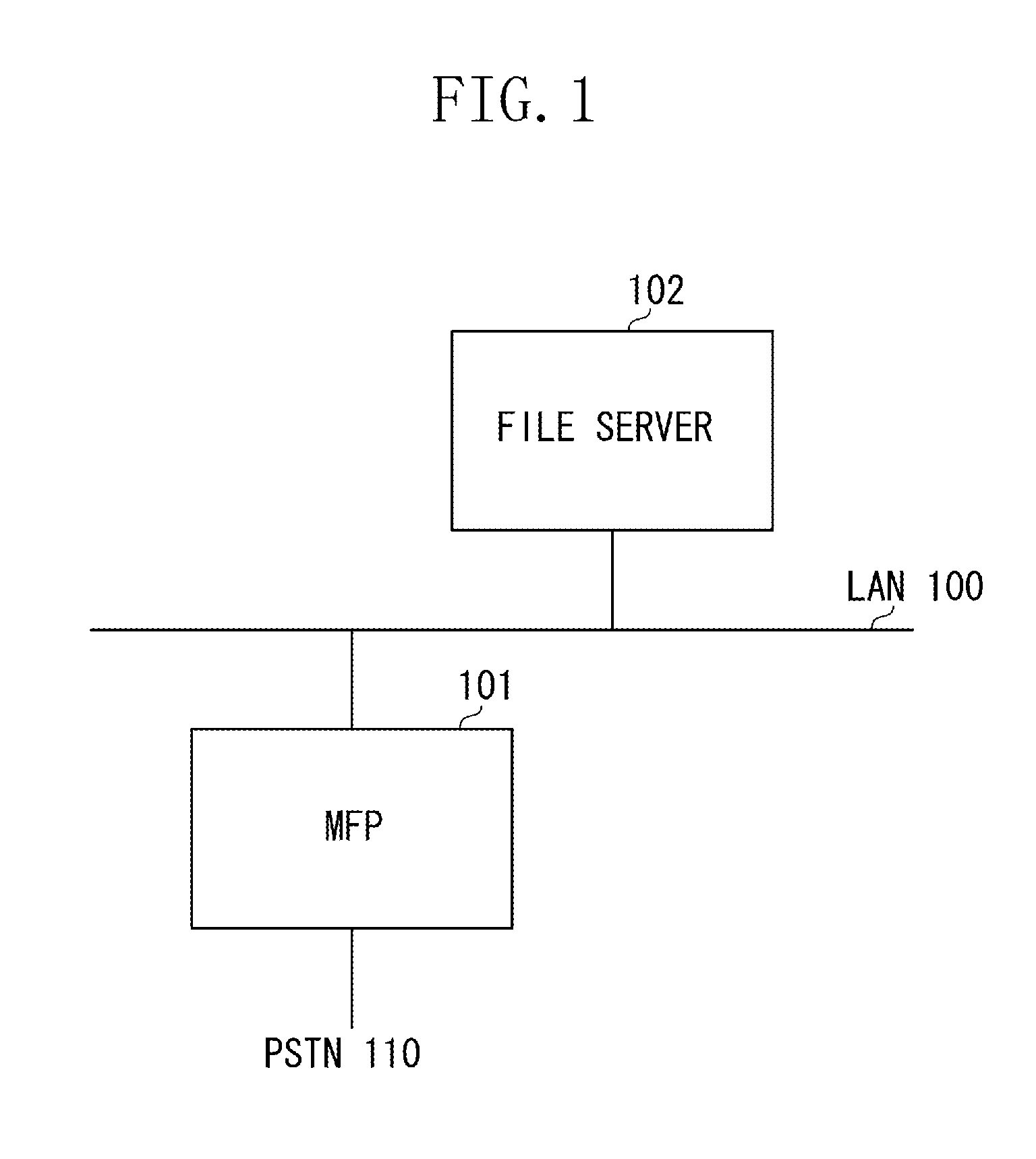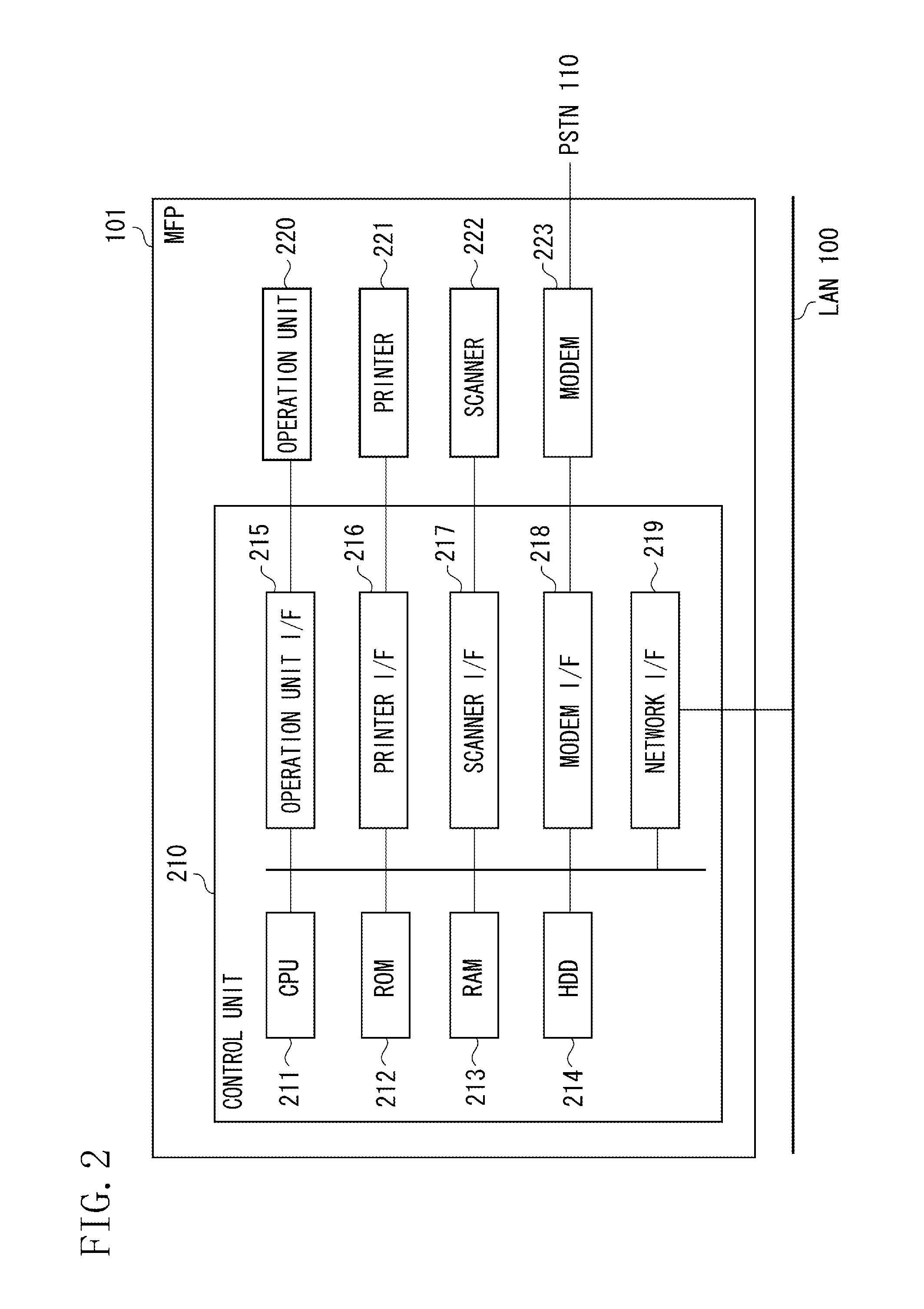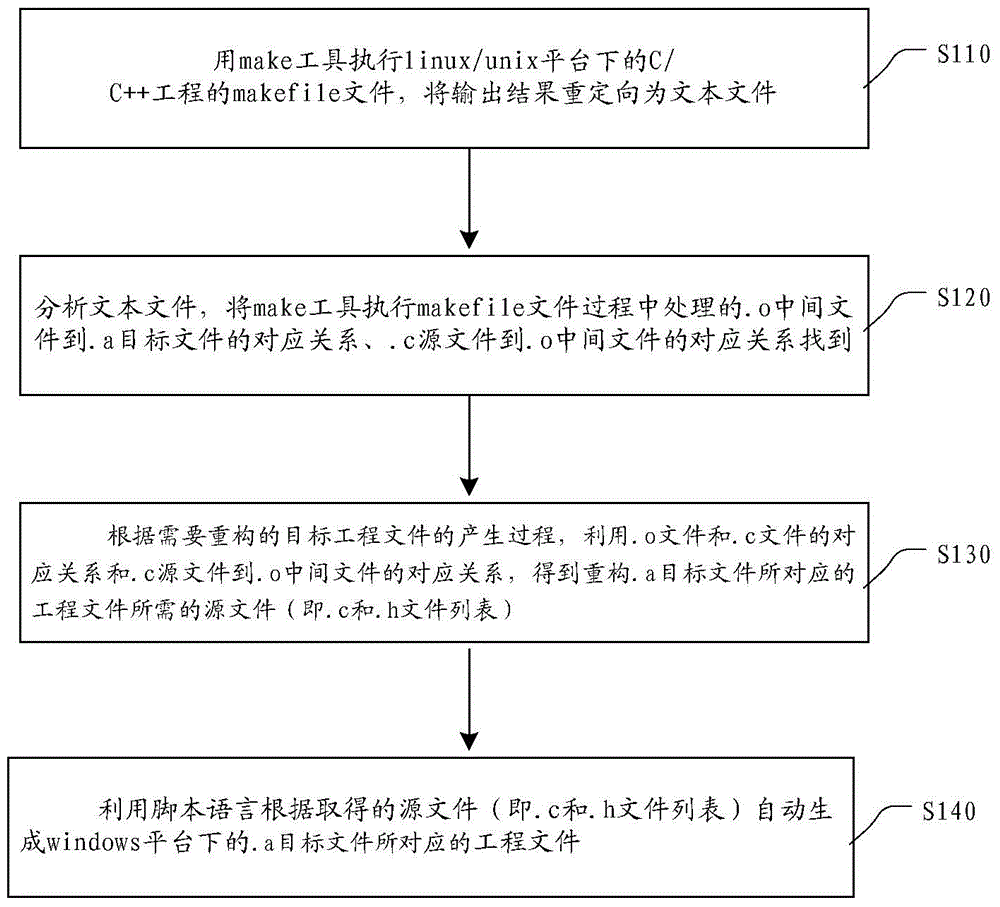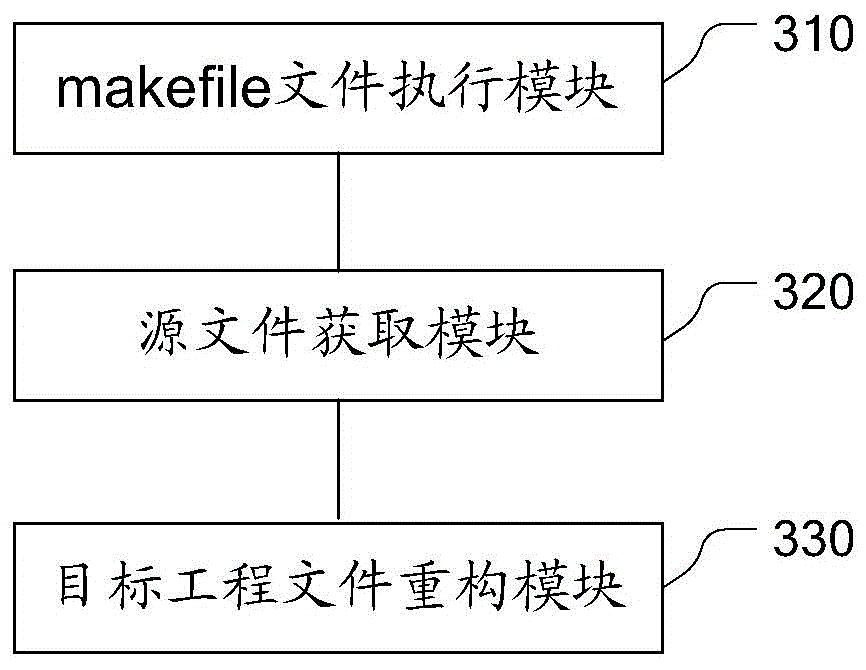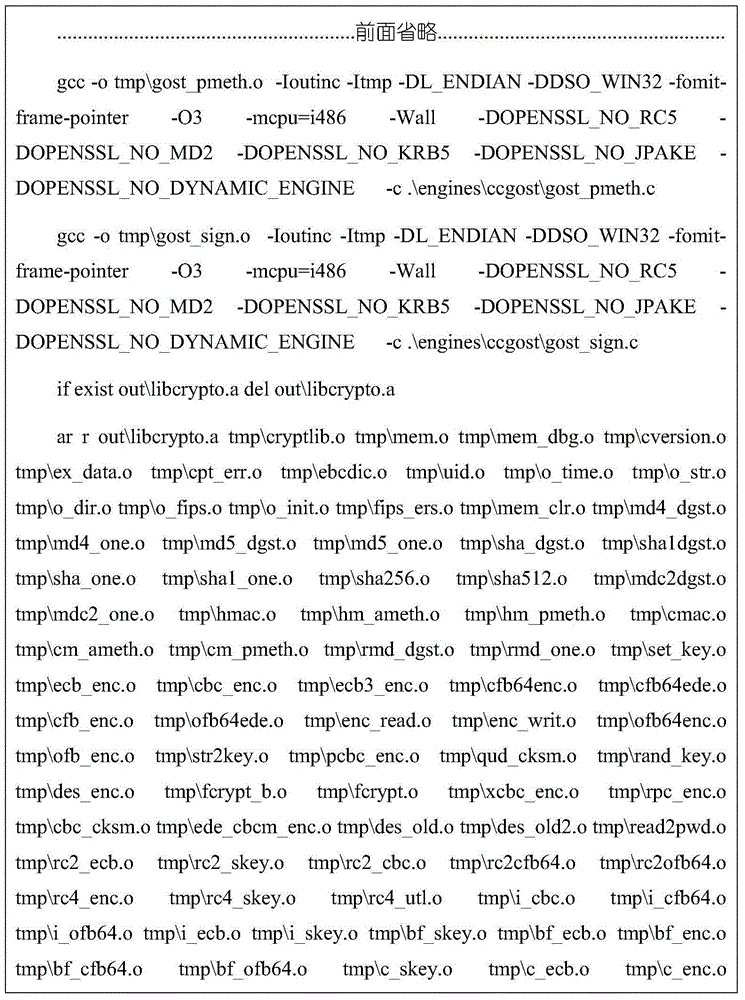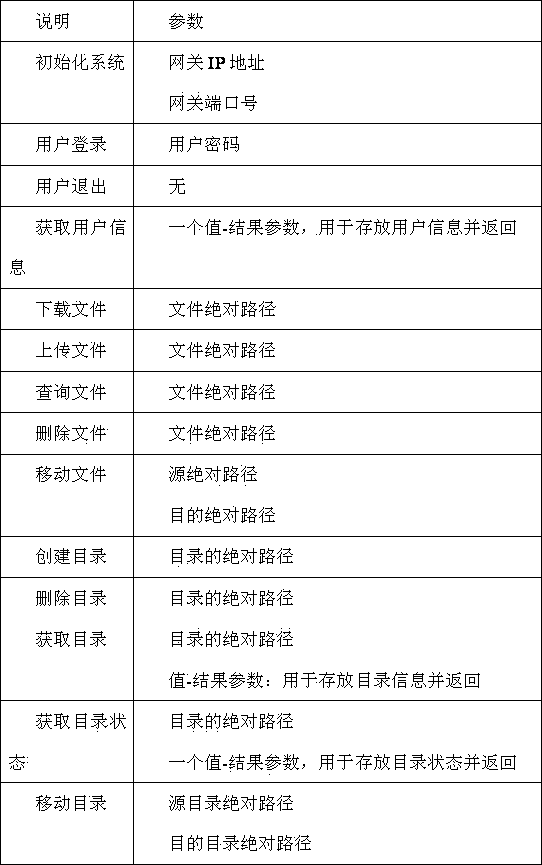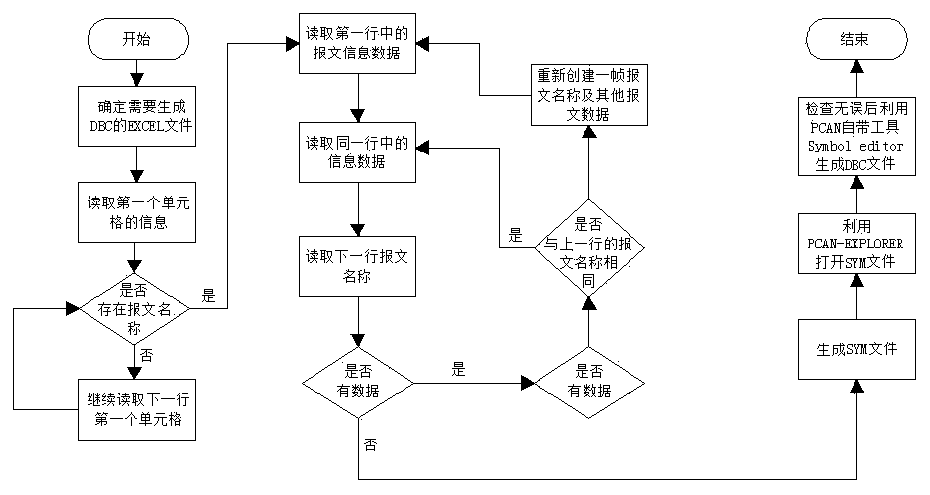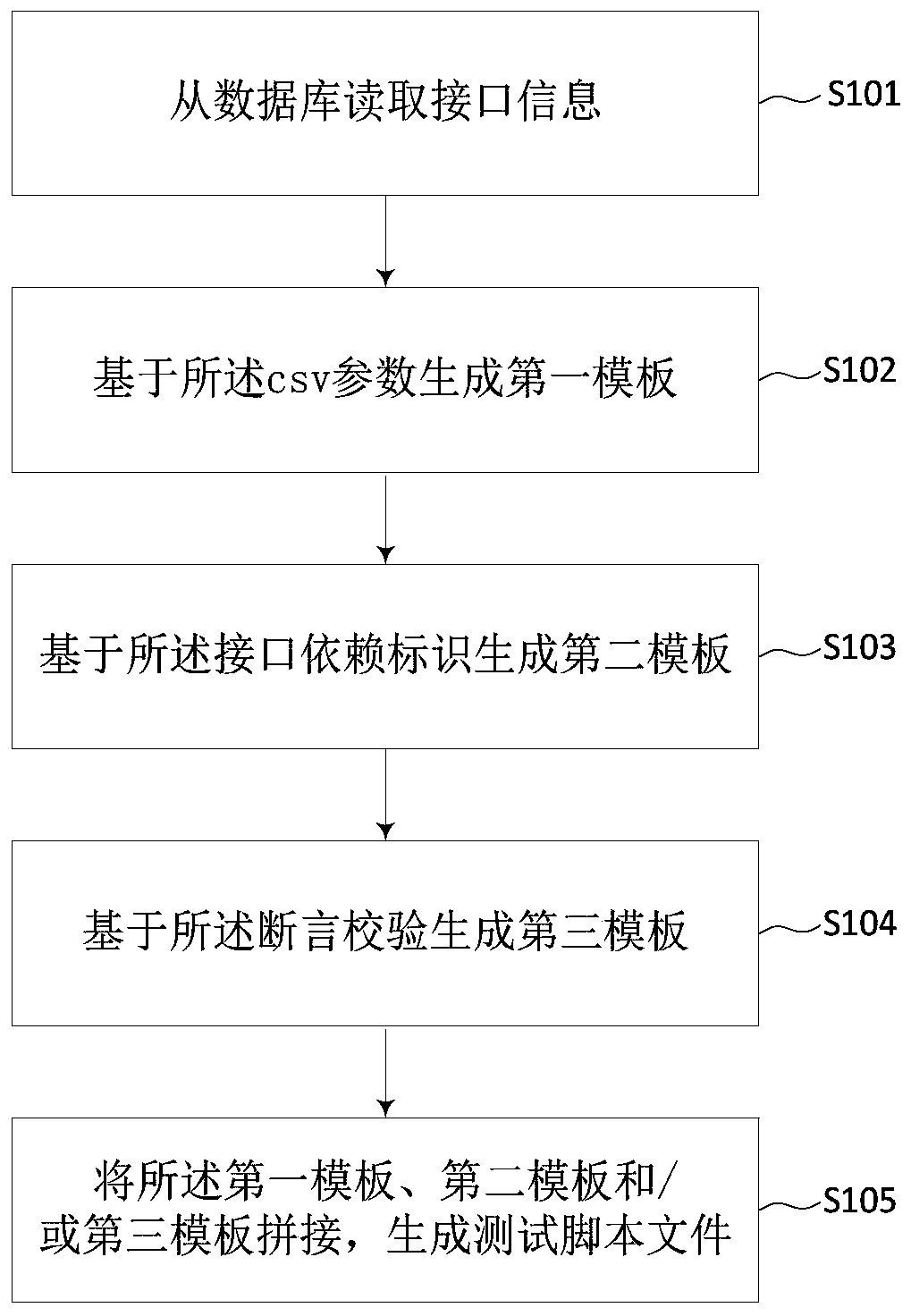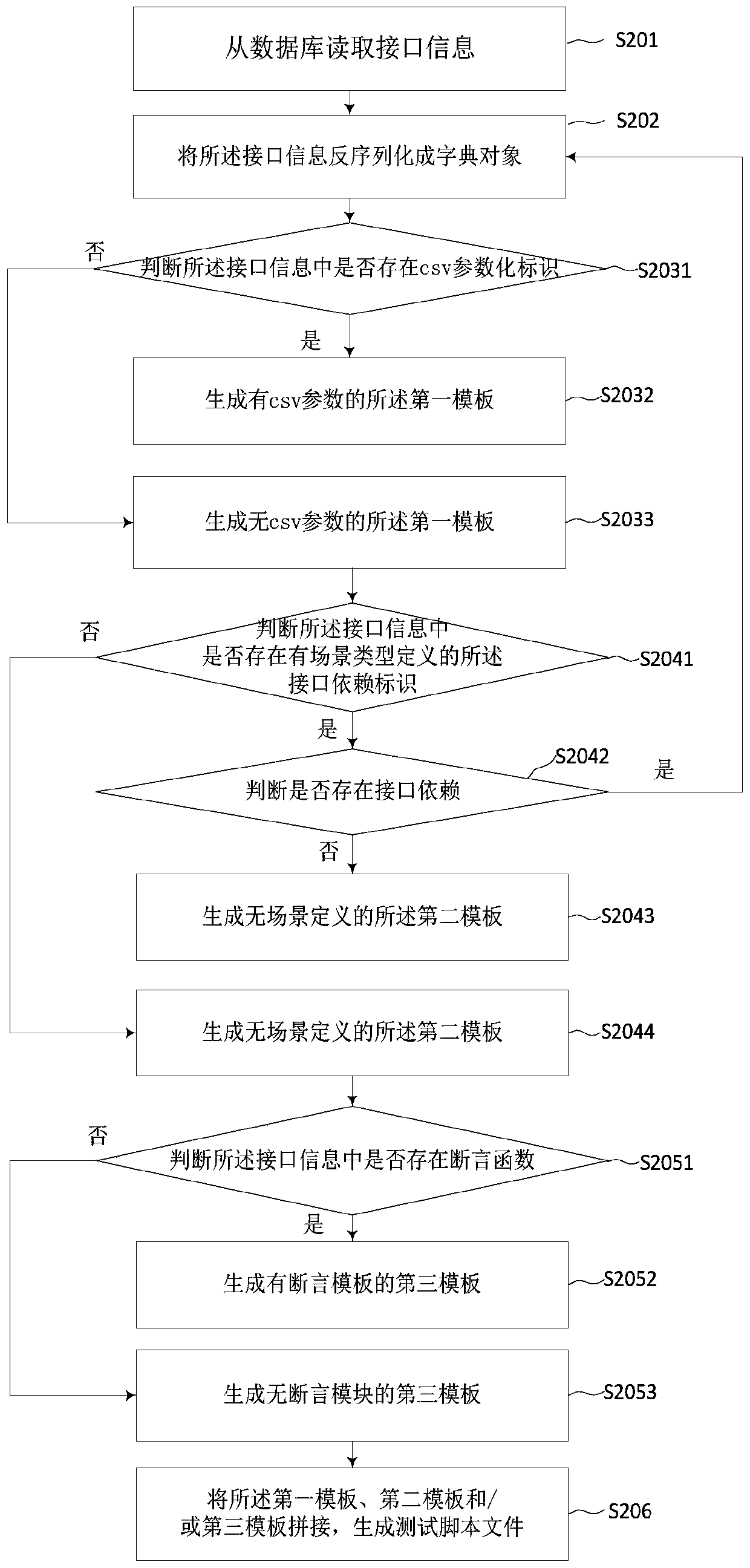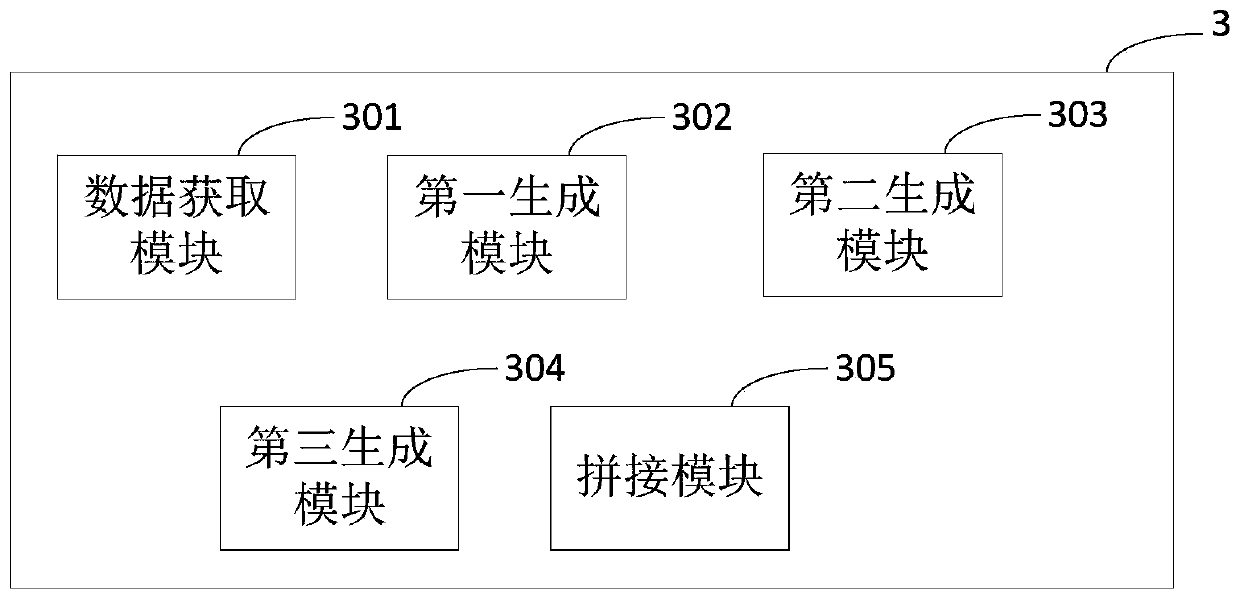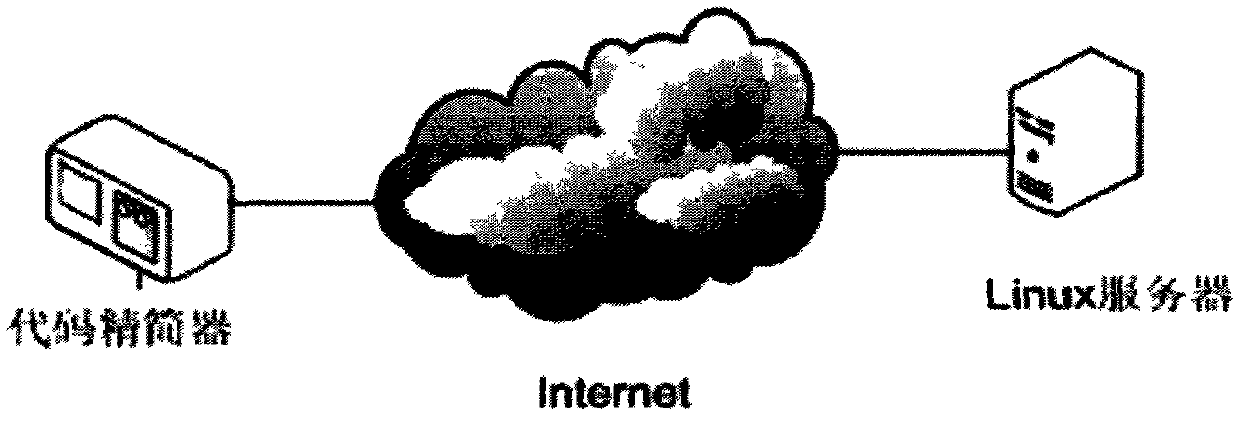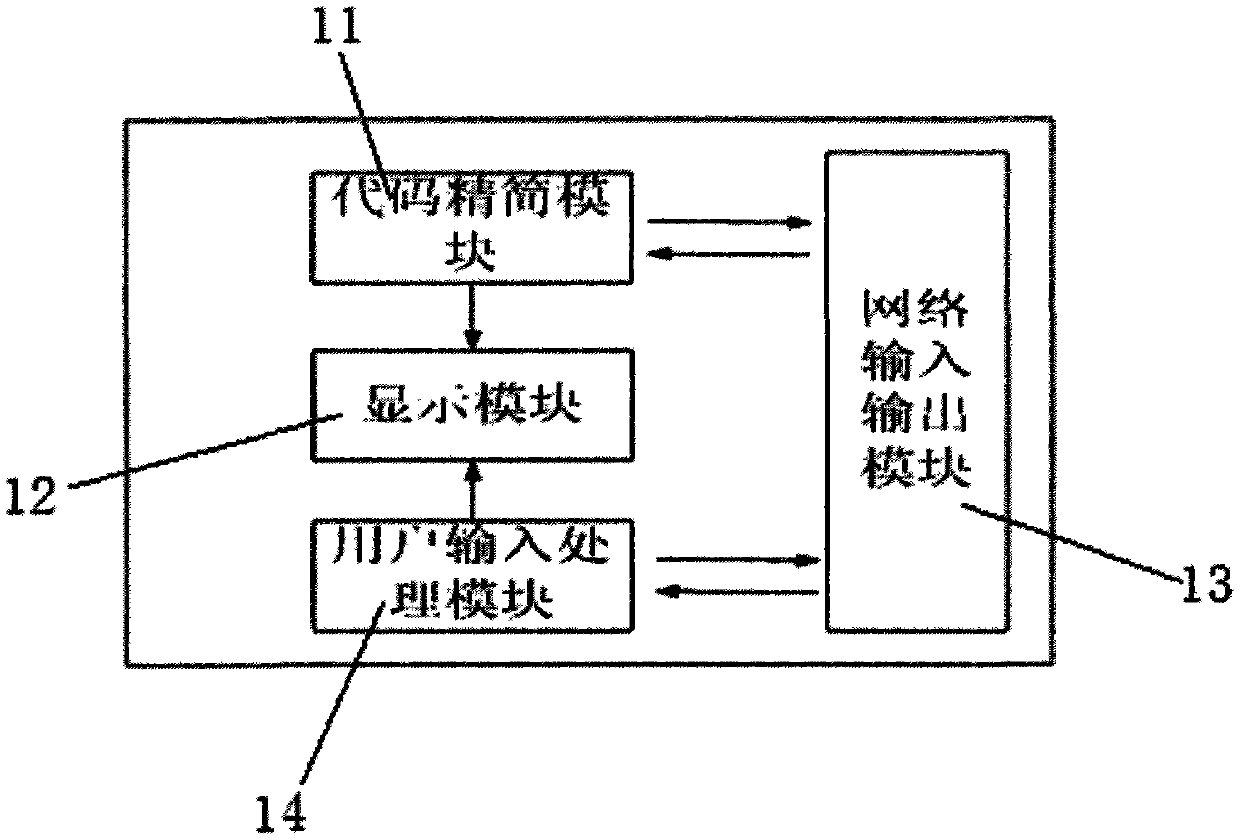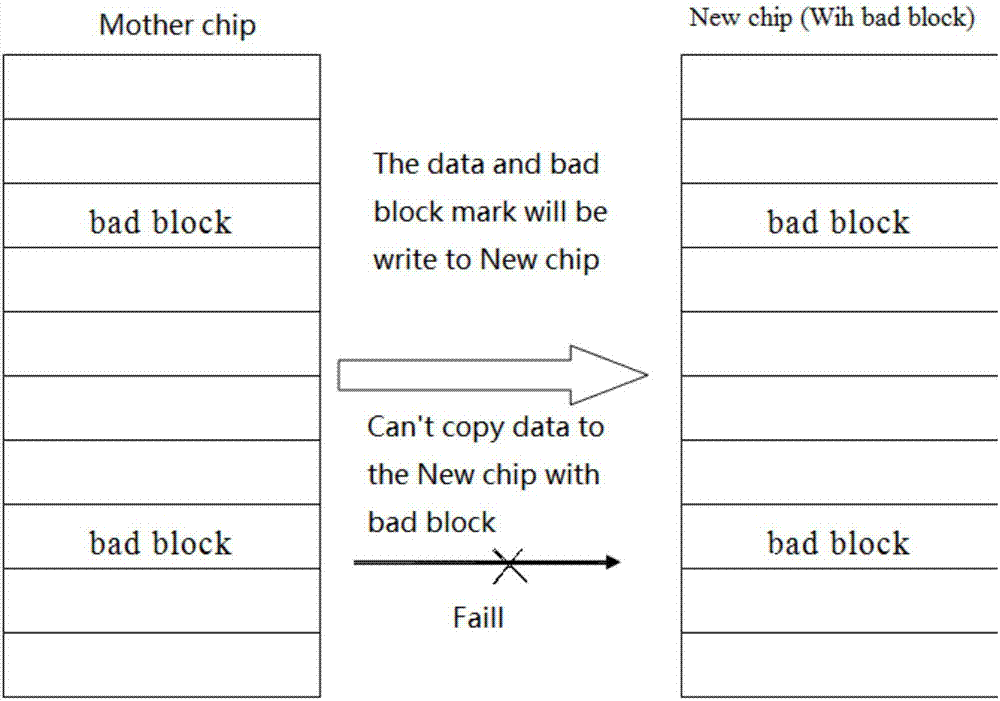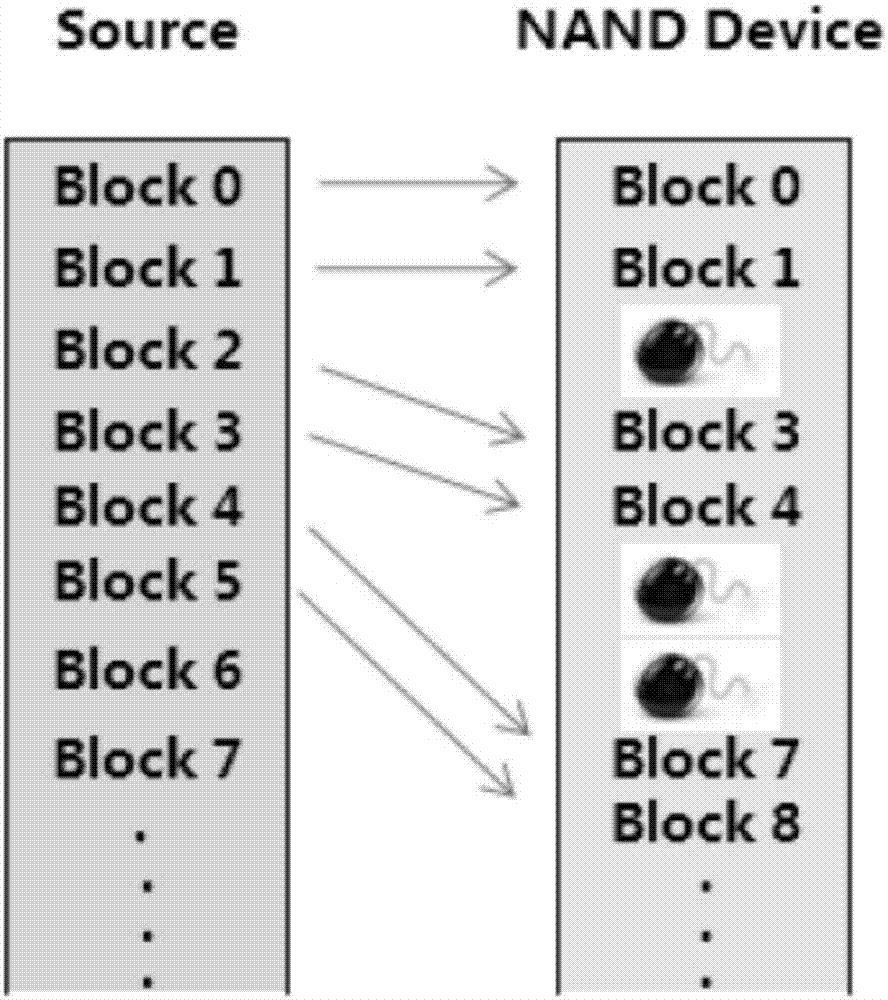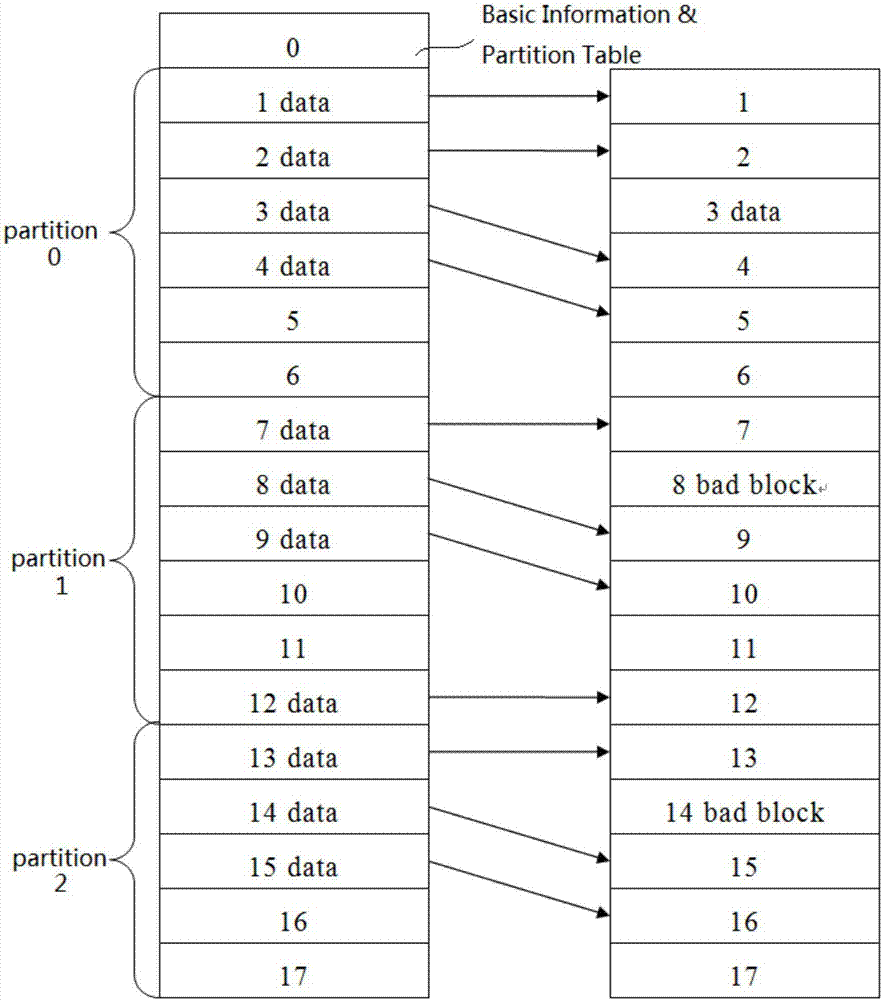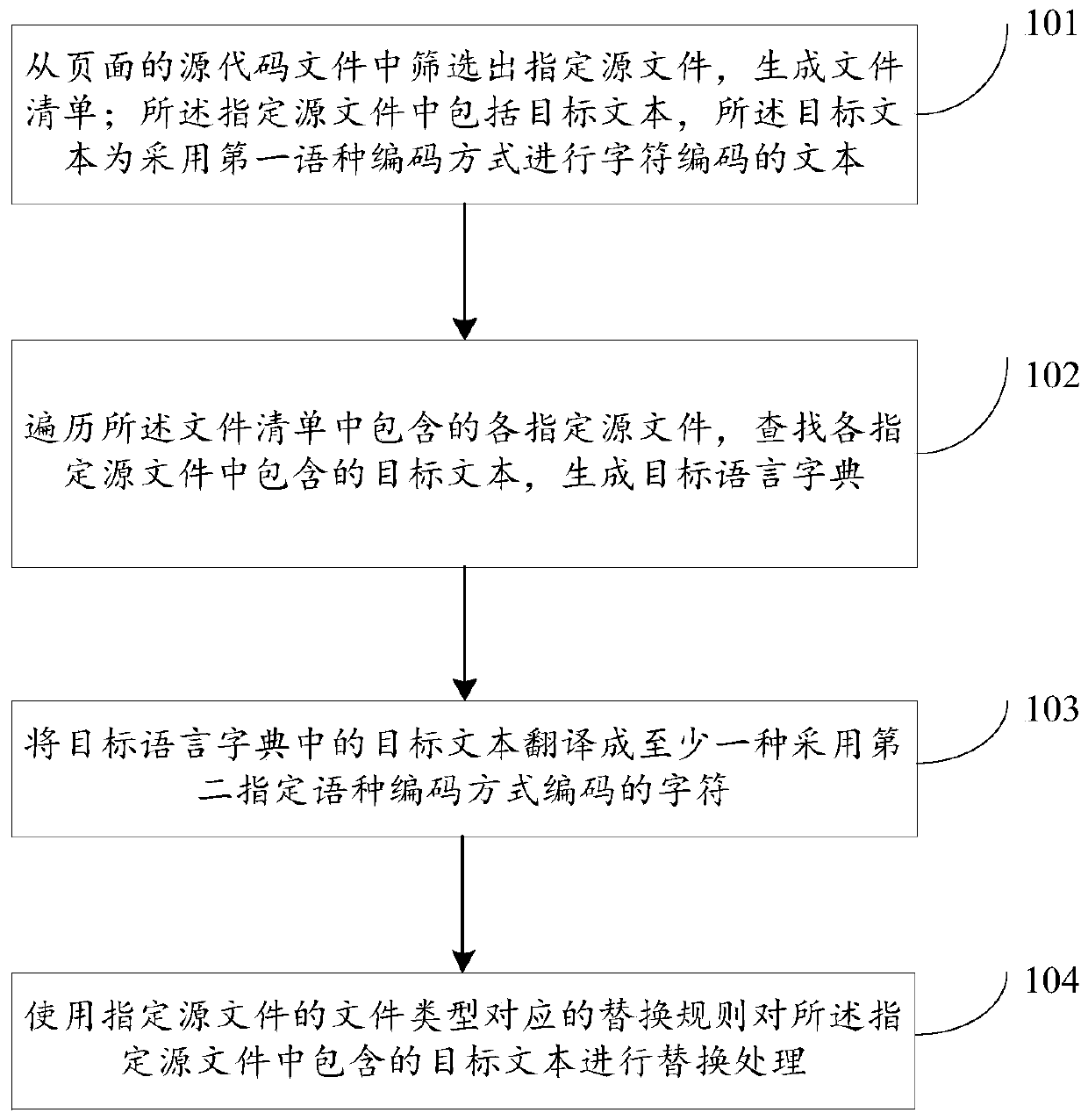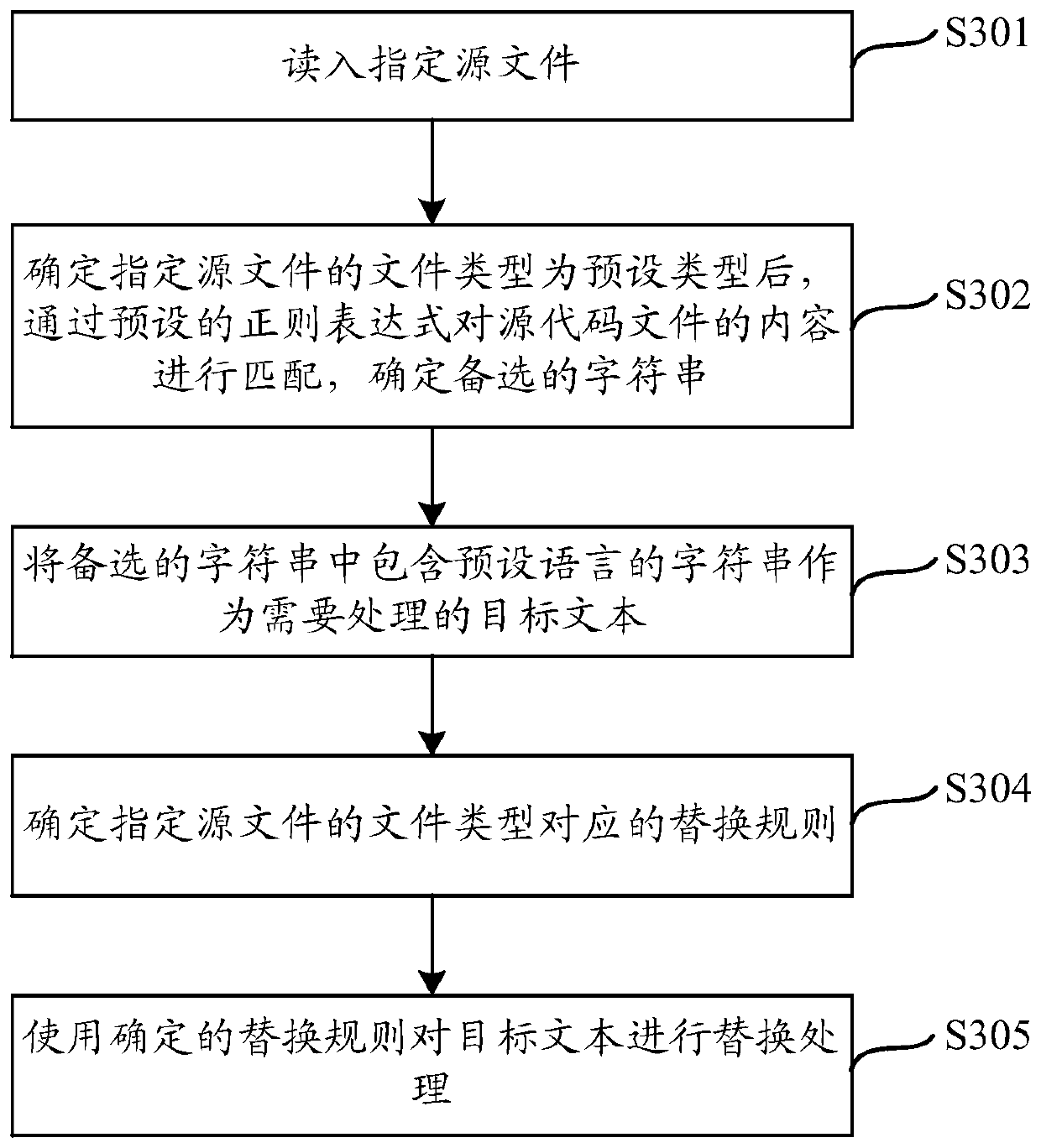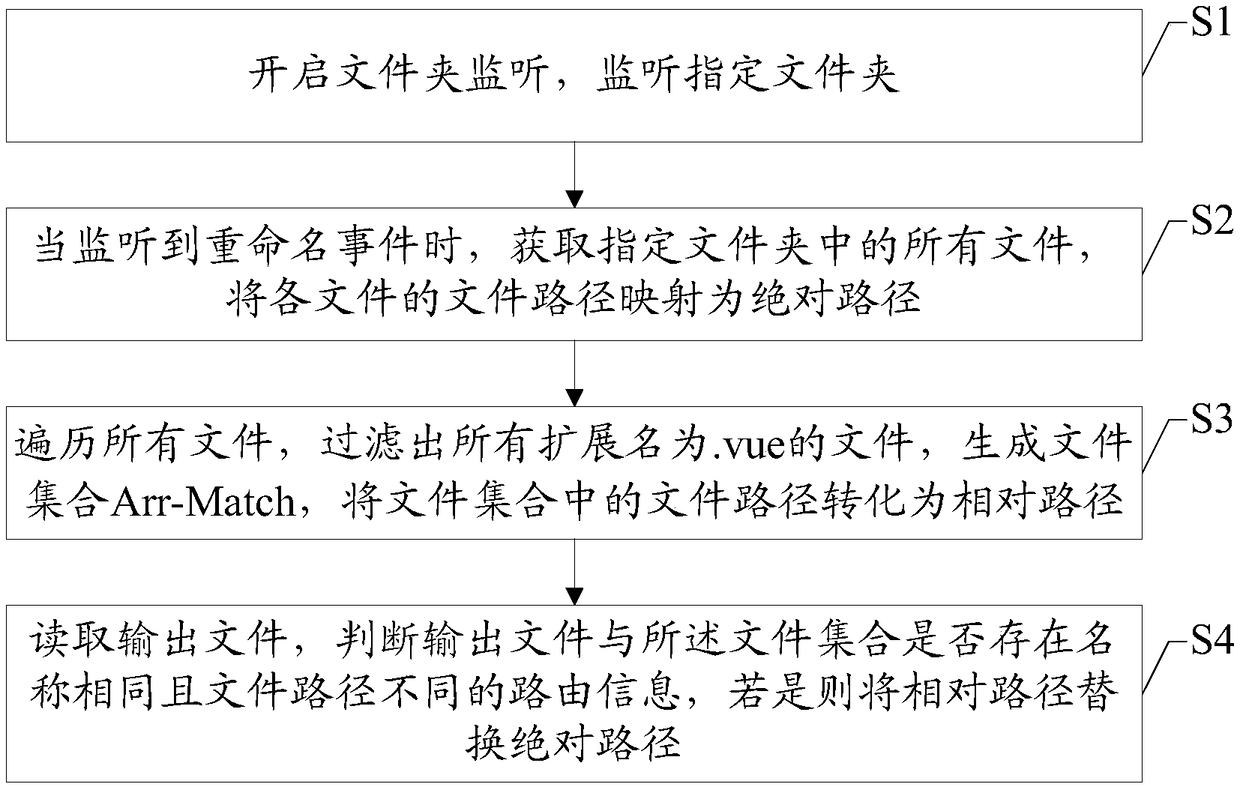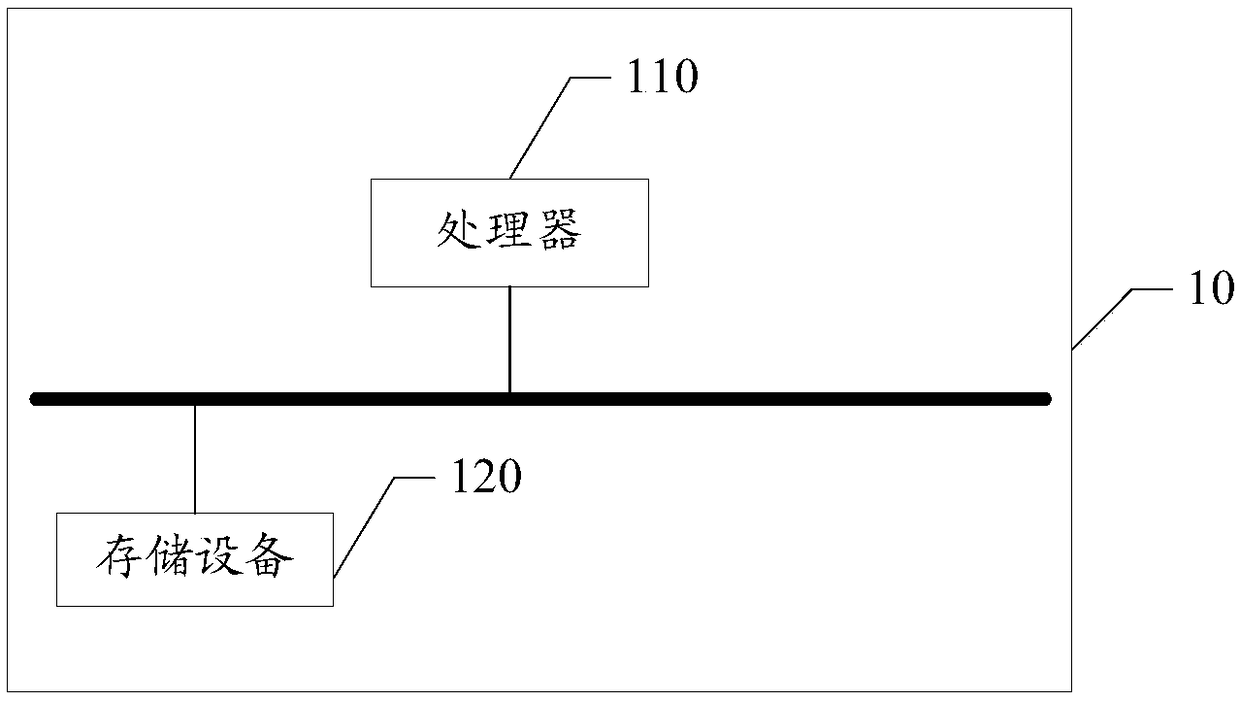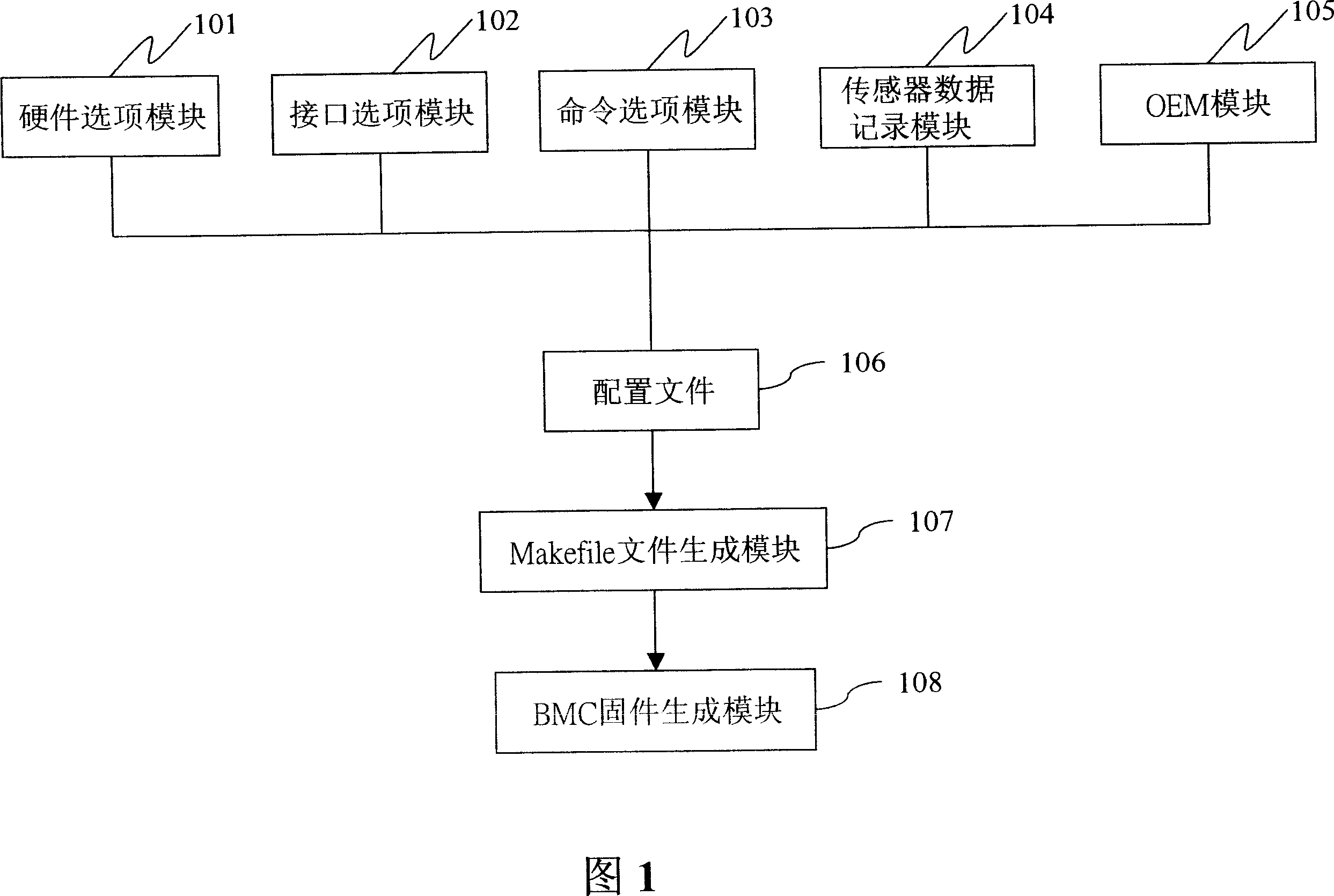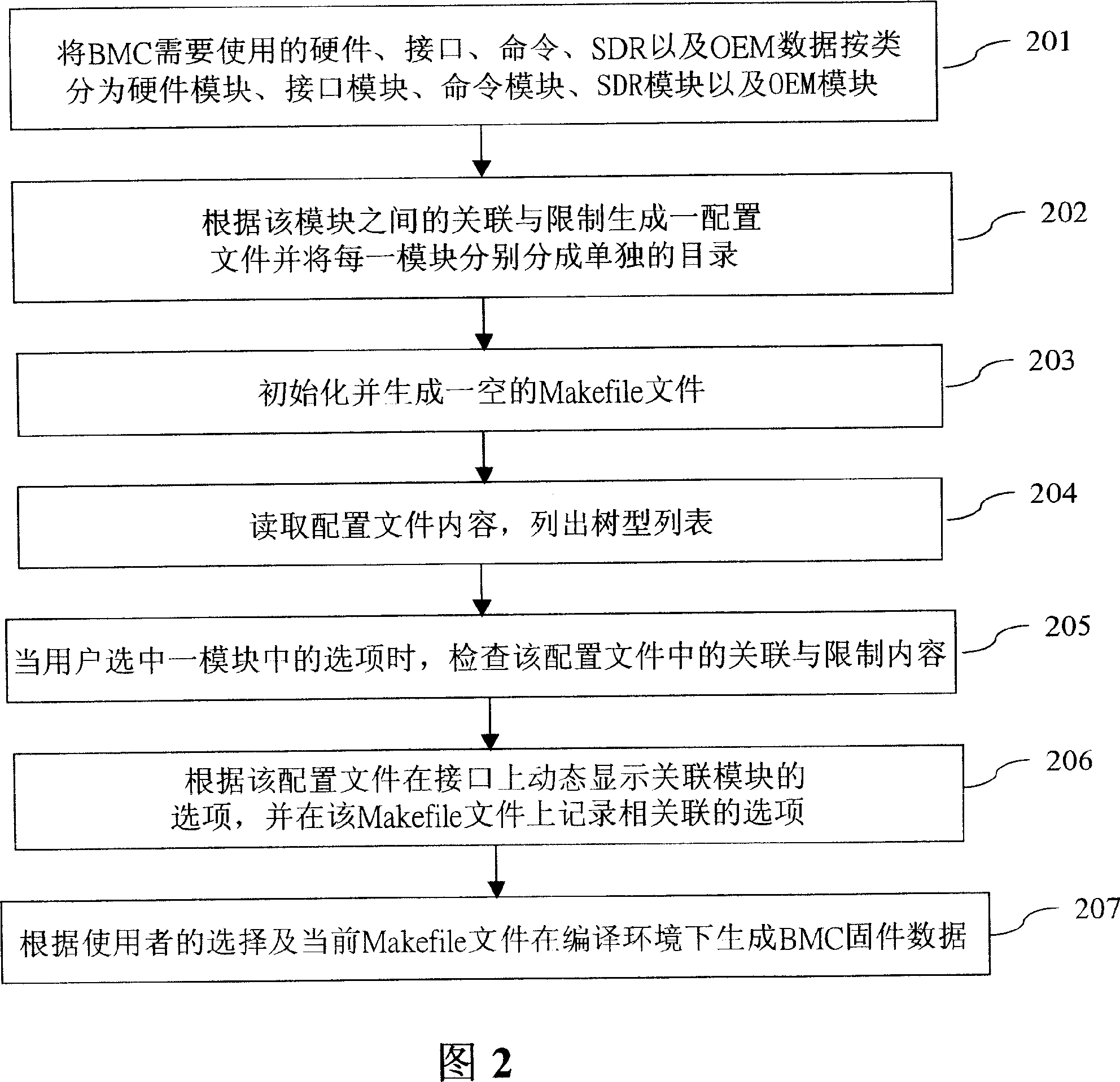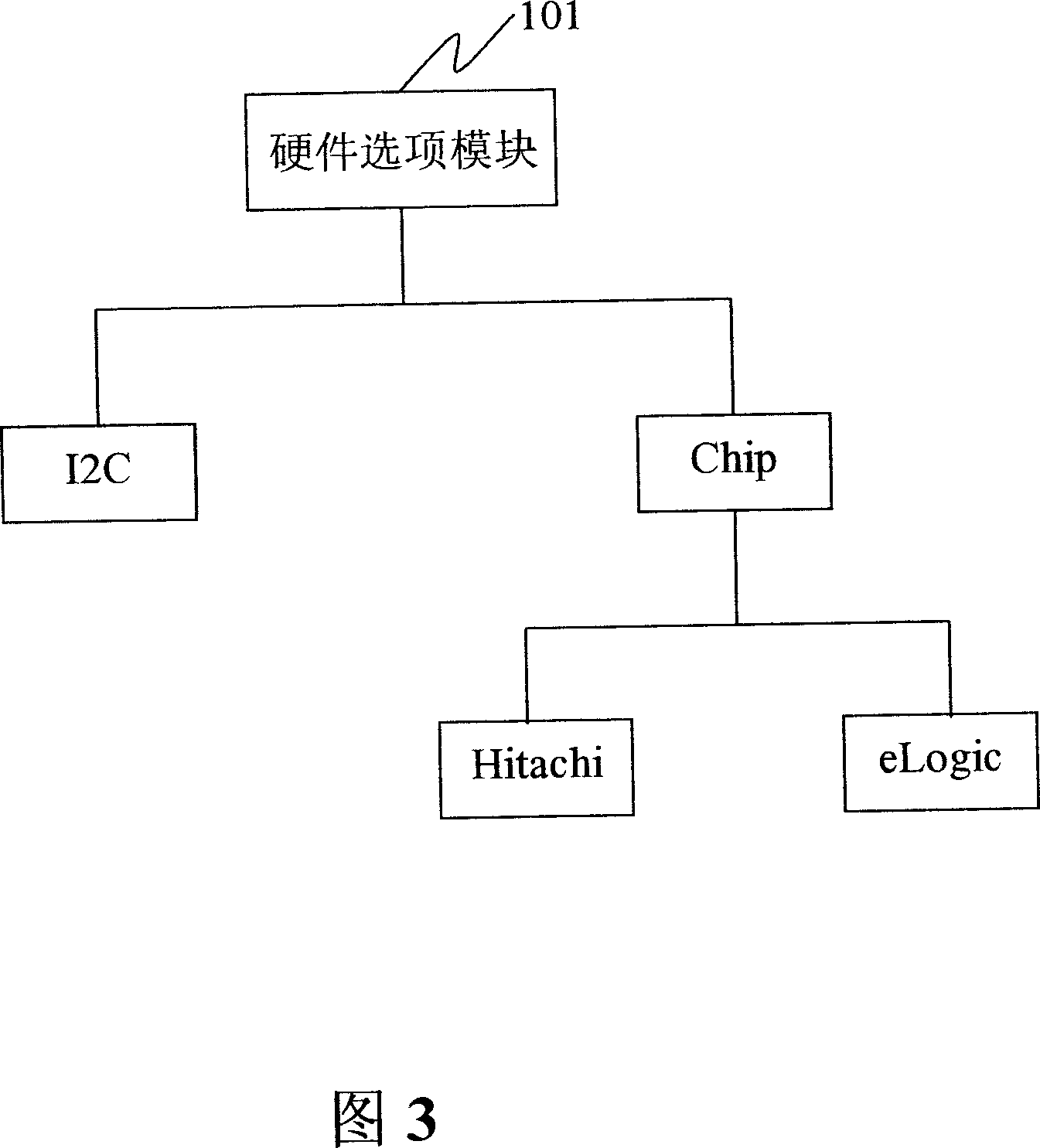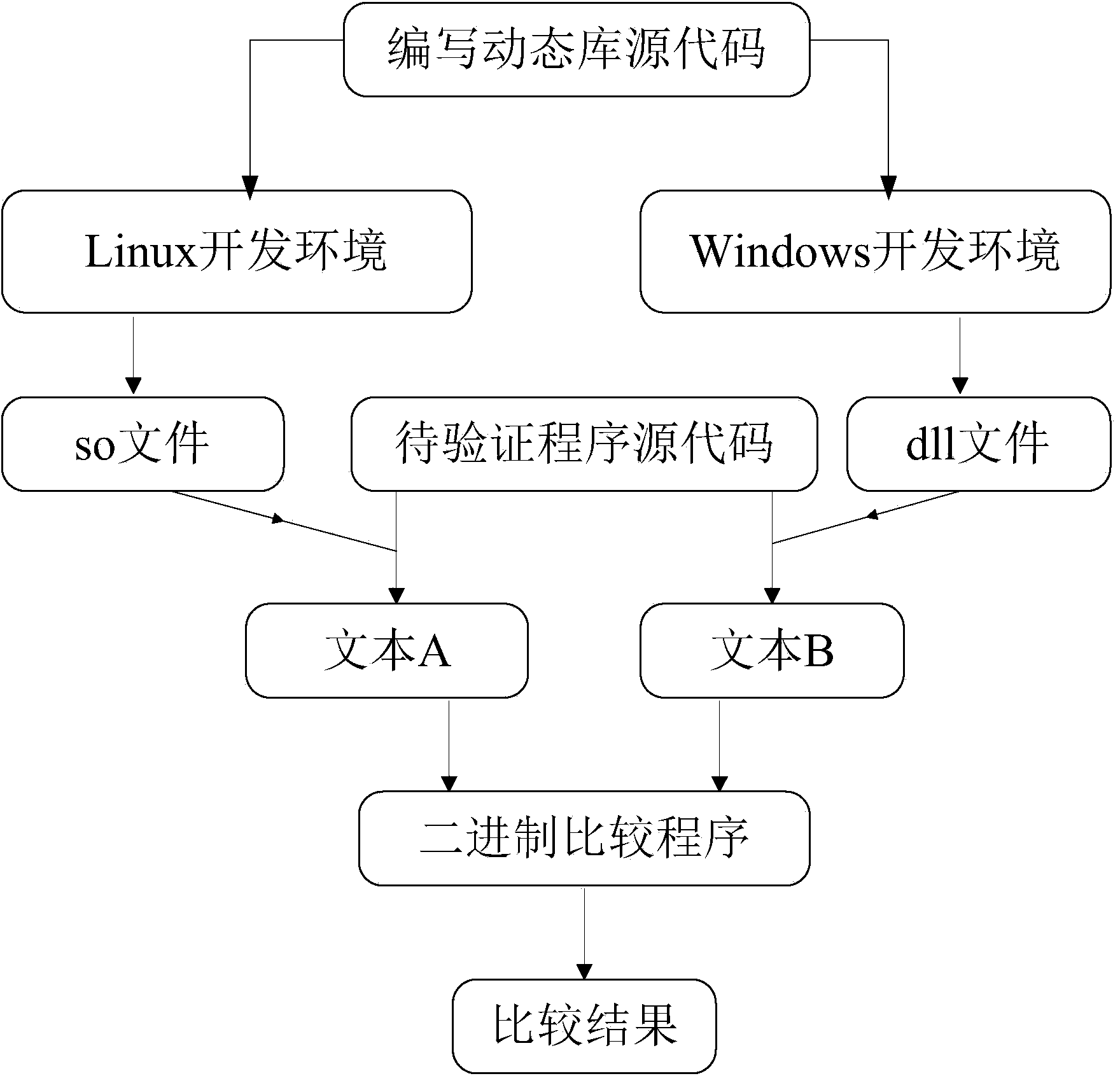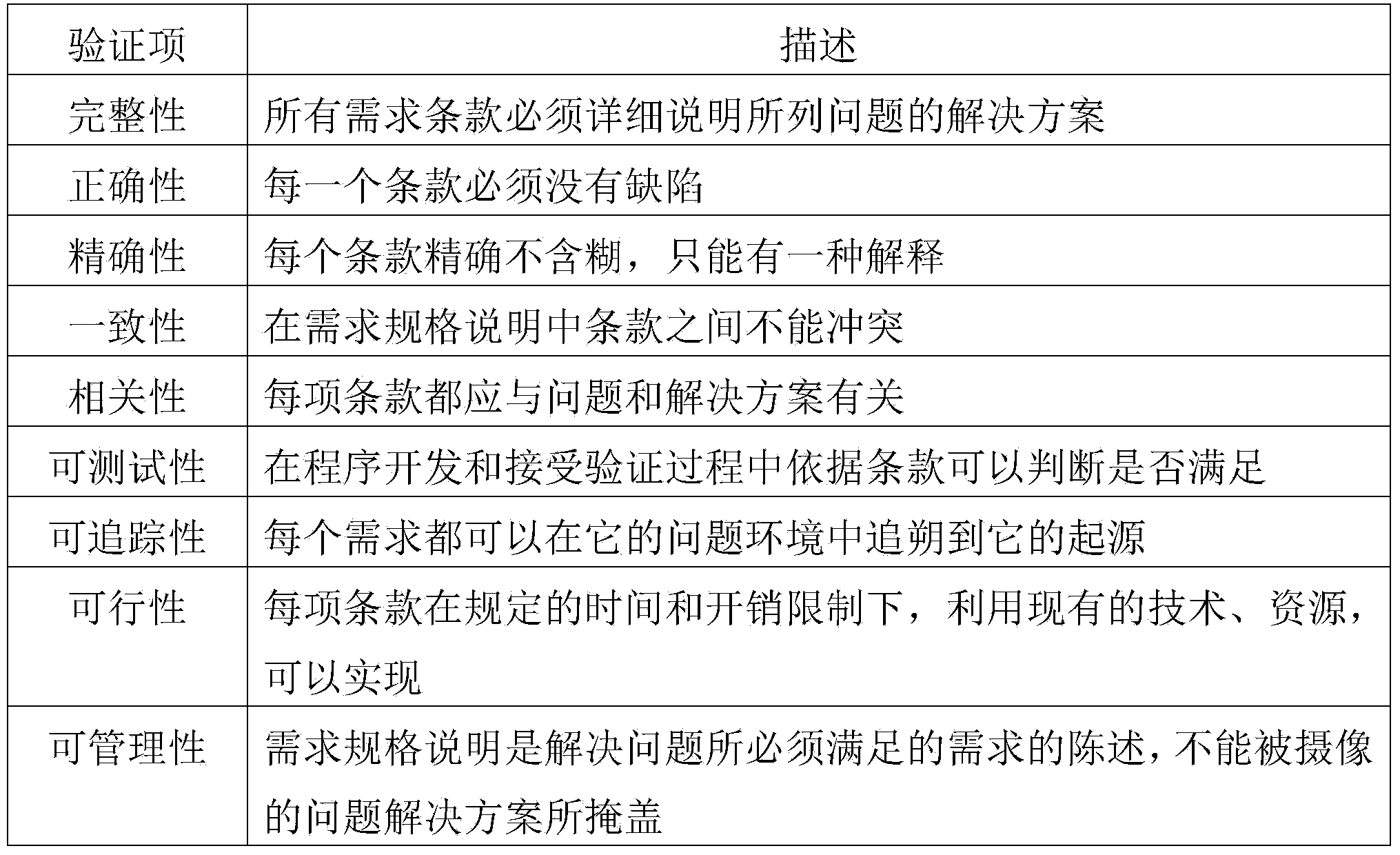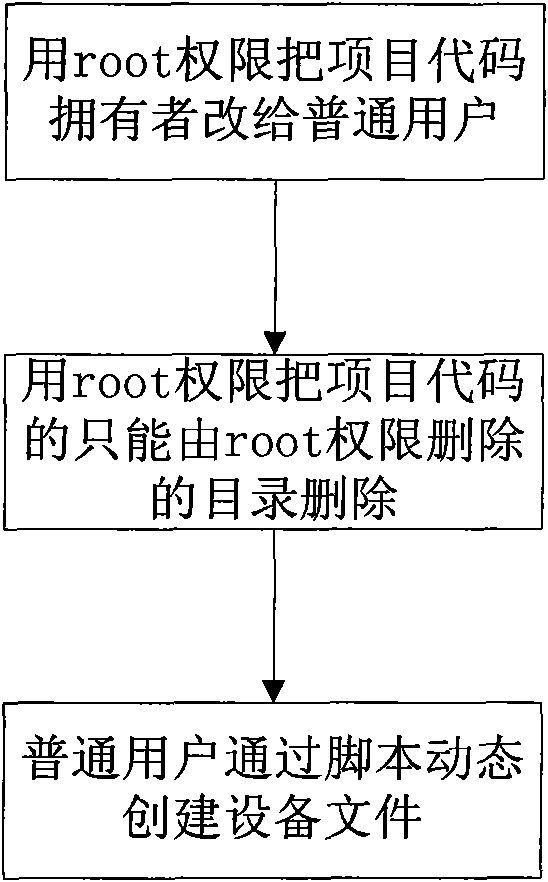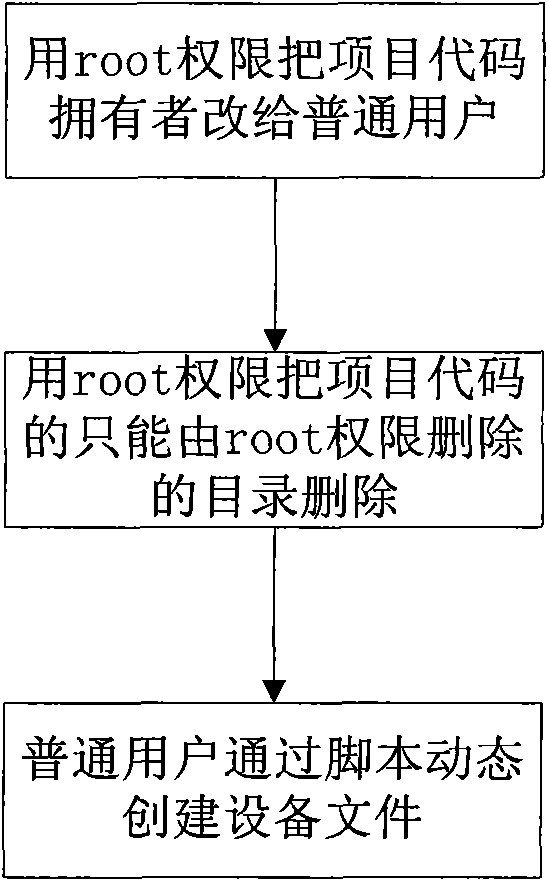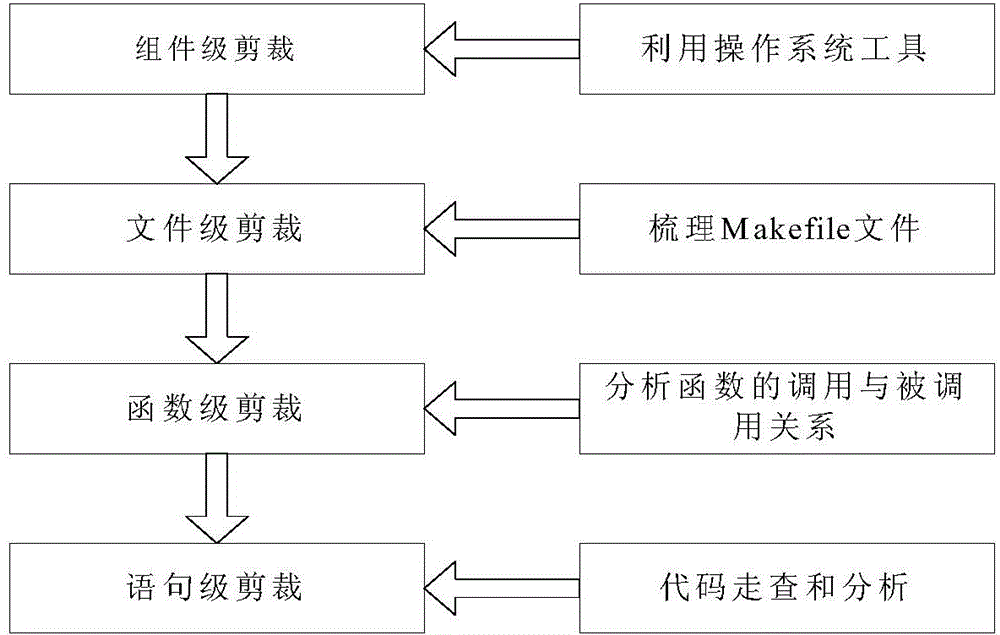Patents
Literature
93 results about "Makefile" patented technology
Efficacy Topic
Property
Owner
Technical Advancement
Application Domain
Technology Topic
Technology Field Word
Patent Country/Region
Patent Type
Patent Status
Application Year
Inventor
A makefile is a file (by default named "Makefile") containing a set of directives used by a make build automation tool to generate a target/goal.
Design tool for systems-on-a-chip
InactiveUS7124376B2Promote rapid developmentReduce a user's time-to-marketCAD circuit designSoftware simulation/interpretation/emulationTest suiteMakefile
A pre-designed system-on-chip architecture and method includes several standard library devices, HDL source code, simulation environment and regression, synthesis scripts, software header files, software libraries, ASIC verification test suites, and makefiles. The standard library devices comprise an integrated CPU, a shared memory controller, a peripheral controller, system peripherals, a DMA controller, embedded memory, and general system control. CPU bridges are used to accommodate a variety of processor types and to insulate users from the complexities of interfacing to different kinds of processors. Such CPU bridges further allow the latest processors to be rapidly integrated into existing integration platforms and designs.
Owner:NETVINCI
Collection makefile generator
Collection makefile generators generate comprehensive makefiles for processing collections of computer files. In operation, the present collection makefile generator dynamically discovers collection content files, classifies them according to content type and required processing actions, and then generates a makefile for performing those actions. Importantly, all build order dependencies are properly maintained among multiple collection products and among individual collection content files. Automated collection makefile generators drastically improve the productivity of human workers by effectively reducing makefile creation and maintenance costs to zero. Collection makefile generators thus enable humans to easily generate complex makefiles in an automated, scalable way that was not previously possible.
Owner:SYNOPSYS INC
Firmware automatic configuration system and method for substrate management controller
InactiveCN1641568AFlexible replacementFlexible managementSpecial data processing applicationsSpecific program execution arrangementsBaseboardMakefile
The invention discloses a firmware automatic configuration system of baseboard managing controller. It packages the hardware module, interface module, command module, SDR module and OEM module according to species. Then, a configuration file would be created and separated catalog of every module would be gained. A Makefile would be created after initializing. Reading content of the configuration file, when user chooses an option in a module, checking the configuration file and dynamic display the option of the relate module on the interface and register the relative option on the Makefile. Finally, BMC firmware data would be created and automatically finish the configuration of BMC firmware according to the invention.
Owner:INVENTEC CORP
Source code replacement via dynamic build analysis and command interception
InactiveUS20070006176A1Easy to modifyFacilitates parsing build system artifactVersion controlSpecific program execution arrangementsSystems analysisParallel computing
A system that facilitates modification of build system module and / or aggregate without side effects of affecting the original build system. An analysis engine facilitates parsing build system artifacts (e.g., source files, makefiles) thereby generating a list of decomposable binary files. A user can be presented with the list of modules and associated aggregates to modify. Once selected, the aggregates can be copied and persisted into a data repository. A build system simulation can generate a decomposed aggregation graph along with the physical memory / store location of the selected aggregates. This information can be employed in the compilation of modules of the build system. A build-time interception of linker commands from the build system can prompt replacement of build system aggregates with user modified aggregates.
Owner:MICROSOFT TECH LICENSING LLC
Method and system for cross platform, parallel processing
ActiveUS7047530B2Shorten the timeImprove productivityData processing applicationsVersion controlProduction rateMakefile
Embodiments of the invention, given a conventional makefile which builds targets in serial mode, will process (e.g., compile, link, pre-process, execute, etc.) commands in parallel on those targets which, as a result of a lack of interdependency, can be built in any order. Embodiments may first identify one or more targets (i.e., object files) which are candidates for parallel compilation (“parallelization”). From the targets identified instructions are generated, which may be stored in a file, which provides the identity of targets for parallelization and the order in which these targets should be built. The instructions may then be executed (resulting in some instructions being executed in parallel) thus providing reduced compiling time and, thus, improving productivity.
Owner:TWITTER INC
Collection processing system
InactiveUS20050044067A1Improve productivitySolve the real problemDigital data processing detailsProgram controlMakefileSyntax
A Collection Processing System enables people to perform complex computational operations on large sets of collections, using a simple and convenient syntax for collection symbolic job requests. A collection symbolic job request is comprised of a user-defined symbolic task name, and a collection reference expression that can refer to large sets of collections. Collections are data-typed sets of computer files that can be manipulated as a set, rather than as individual files. In operation, a Collection Processing System receives a collection symbolic job request from a request originator, and expands the symbolic job request into a list of executable commands that carry out the computational intent of the symbolic job request. First-level symbolic task names are expanded into sequences of second-level task part statements, and then into third-level executable computer commands that are dynamically generated into customized, optimal makefiles. Collection reference expressions are expanded into lists of job triplets comprised of a particular collection name, a computing platform name, and a processing dependency visit order value. The present invention applies third-level executable commands to job triplets to carry out the original collection symbolic job request, in a distributed, multiplatform, scalable way that was not previously known to the art.
Owner:SYNOPSYS INC
Sharing compiled versions of files
Sharing compiled versions of files among machines is disclosed. In some embodiments, upon determining at a machine that a file needs to be compiled, a previously compiled version of the file is requested and received from one or more other machines. In such a case, the processing associated with generating a compiled version of the file at the machine can be eliminated. Similar techniques can be employed to share and / or reuse a previously generated output of any repeatable computing task whose inputs can be characterized.
Owner:APPLE INC
Multi-toolchain engineering construction method and system
InactiveCN101859244AEasy to manageEasy to switchSpecific program execution arrangementsSoftware engineeringMakefile
The invention provides a multi-toolchain engineering construction method which comprises the following steps of: creating a batch file and a main makefile containing same compiling environment part in more than one toolchain; creating more than one sub makefile which respectively corresponds to different toolchains; selectively invoking corresponding toolchains by the main makefile according to input toolchain invoking parameters in the batch file, and compiling and outputting an executable file. The invention also provides a multi-toolchain engineering construction system which comprises an inlet module, a compiling engine module and a compiling module. The method and the system can realize the united construction of a plurality of compiling environments and reduce the workload of software developers at the same time of greatly lightening the maintenance difficulty.
Owner:ZTE CORP
Collection makefile generator
Collection makefile generators generate comprehensive makefiles for processing collections of computer files. In operation, the present collection makefile generator dynamically discovers collection content files, classifies them according to content type and required processing actions, and then generates a makefile for performing those actions. Importantly, all build order dependencies are properly maintained among multiple collection products and among individual collection content files. Automated collection makefile generators drastically improve the productivity of human workers by effectively reducing makefile creation and maintenance costs to zero. Collection makefile generators thus enable humans to easily generate complex makefiles in an automated, scalable way that was not previously possible.
Owner:SYNOPSYS INC
Method For Segmenting A Data File, Storing The File In A Separate Location, And Recreating The File
InactiveUS20110154015A1Digital data processing detailsUser identity/authority verificationThird partyMakefile
A method includes transmitting file identifying information to a dispatch server; receiving from the dispatch server a storage location identifier and a distribution algorithm identifier; performing the distribution algorithm to generate a distribution map for segments of the file; and transmitting the file segments to storage locations in accordance with the distribution map. The distribution map indicates for each file segment a segment size and a storage destination for that segment. The storage location identifier may identify a server cluster; the dispatch server and the server cluster may be located at a third-party facility physically and / or logically remote from the client. A plurality of distribution algorithms may be provided, so that the distribution algorithm and the distribution map for one stored file are distinct from the distribution algorithm and the distribution map for another stored file.
Owner:RAHMAN TAREQ MAHMUD +1
Source code analysis method based on makefile dependency
InactiveCN106202450AGuaranteed validityImprove accuracySoftware engineeringProgram controlInformation processingMakefile
Owner:NANJING UNIV
Method and device for automatically generating variables based on SHELL script
ActiveCN103870262AQuick debuggingAccelerate the progress of loadingSpecific program execution arrangementsSoftware engineeringMakefile
The invention provides a method for automatically generating variables based on a SHELL script. The method comprises the steps of establishing a configuration file with a preset name in a preset route, orderly writing variables in the configuration files according to a predetermined criteria, translating the configuration file by virtue of the SHEEL script according to a predetermined criteria so as to generate a first file and a second file, and integrating upper-layer software, bottom-layer software, the first file and the second file according to Makefile so as to obtain a target file, wherein the upper-layer software and bottom-layer software are capable of obtaining variables from the target files so as to invoke the variables. The method is capable of improving the development efficiency of software and thus increasing the debugging and loading progress of an ECU (Electronic Control Unit).
Owner:BEIQI FOTON MOTOR CO LTD
Self-customizable dex (Dalvik executable) subpackaging method
ActiveCN106775842AImprove stabilityImprove reliabilityProgram loading/initiatingUnavailabilityDependence analysis
The invention relates to a self-customizable dex (Dalvik executable) subpackaging method, comprising: configuring a rule file according to necessities for first starting and loading of an app, wherein the rule file includes a custom-configure reservation class rule file; during compiling, upon execution to a dex predecessor, finding custom-configured main_dex reservation class dependency according to the rule file described in step 101, and outputting all dependent class full-path names of the found custom-configured main_dex reservation classes to a specified file; combining a dependent class full-path name list recorded in the specified file and a default main_dex reservation class file list generated during construction of a system. In the invention, class files are subjected to dependence analysis during the generation of dex files, main dex files are specified dynamically, the error INSTALL FAILED DEXPOT occurring during installation of an application is avoided, and application crash and unavailability due to Class Not Found Exception occurring during running is avoided.
Owner:BEIJING KUWO TECH
Automatic packaging method supporting Flutter and iOS hybrid engineering
The invention provides an automatic packaging method supporting Flutter and iOS hybrid engineering. The automatic packaging method is realized by using a shell script in combination with Jenkins. Themethod comprises the steps that after Jenkins are remotely accessed to select a packaging branch and other selectable parameters, construction is clicked; downloading the project file, and executing the shell script; a Check out code is obtained, and the latest code is pulled; resetting the engineering certificate and the description file according to the bundle ID; resetting a third-party key value according to the debug and the rease environment; setting a flutter end execution environment according to the debug and the rease environment parameters; engineering construction is carried out, packaging succeeds, and an ipa file is generated; uploading the ipa package to a third-party platform to obtain an application installation two-dimensional code; and sending the application two-dimensional code to a DingTalk group. According to the method and the system, the packaging for Fluter & iOS hybrid engineering is supported.
Owner:开工智合(江苏)数字技术有限公司
Makefile-based code static analysis method and device
The invention provides a Makefile-based code static analysis method and device. According to the method, first, a to-be-analyzed source code file is determined; second, a Makefile system is called togenerate dependency information of the source code file; and last, the source code file and the dependency information thereof are input into a static analysis program to obtain a static analysis result of the source code file. Furthermore, automatic execution of compiling and static analysis can be realized by use of a script writing mode. Compared with the prior art, it is no longer needed to manually determine the dependency of the source code file, and therefore the accuracy of a static analysis tool report result is improved while much time and labor are saved.
Owner:GUANGZHOU SHIYUAN ELECTRONICS CO LTD
Method for building software project
InactiveUS20080040705A1Improve build speedImprove readabilitySpecific program execution arrangementsMemory systemsParallel computingMakefile
A method for building a software project, the method including the steps of receiving a makefile for building one software project, generating an object list of the received makefile, selecting one build target from the generated object list according to a preset order, sequentially compiling the child modules included in the build target when the selected build target includes child modules, updating a library file of an ancestor module having an inheritance relation with each of the compiled child modules, determining if all the build targets in the object list have been compiled; and generating a new execution file by using results obtained by compiling all the build targets when all the build targets have been compiled.
Owner:SAMSUNG ELECTRONICS CO LTD
Front-end project framework construction method and device, computer equipment and storage medium
PendingCN111897520AImprove development efficiencyVersion controlSoftware designSoftware engineeringMakefile
The invention discloses a front-end project framework construction method and device, computer equipment and a storage medium. The method comprises the steps: building a folder of a front-end projectframework according to a construction request if the construction request, sent by a user, for constructing the front-end project framework is received; calling a preset instruction in the folder of the front-end project framework to initialize the front-end project framework so as to generate a packages. json file; downloading a preset dependence package, and adding the dependence package into the packages.json file; importing the package into a preset account number, encoding the account number according to a preset encoding rule, and adding a preset publishing component into the packete.json file; and executing a preset publishing instruction to publish the front-end project framework, and storing the published front-end project framework in a preset warehouse to complete the construction of the front-end project framework. On the basis of the research and development framework technology, the front-end project framework constructed through the method can be conveniently and directly developed by business developers, extra time does not need to be spent on configuring the development environment again, and the development efficiency is improved.
Owner:PING AN TECH (SHENZHEN) CO LTD
Information processing system, information processing apparatus, information processing method, and storage medium
InactiveUS20150081702A1Digital data processing detailsFile system administrationInformation processingMakefile
If a multifunctional peripheral (MFP) that generates files receives a selection of a folder from a plurality of hierarchically-managed folders, the MFP gives a generated file a file name including at least a name of the selected folder and a name of a folder located at a higher hierarchical level than the selected folder.
Owner:CANON KK
Device and method for project migration among different operating platforms
ActiveCN104572231AShort time spentOptimal implementation methodSpecific program execution arrangementsMemory systemsUnixScripting language
The invention provides a device and a method for project migration among different operating platforms. The method includes: using a make integrated compilation tool for executing a makefile of a C / C++ project under a linux / unix platform, acquiring an output result after execution of the makefile is finished, and redirecting the output result as a text file; analyzing the text file, finding corresponding relation between intermediate files .o and target files .a and corresponding relation between source files .c and intermediate files .o during execution of the makefile executed by the make integrated compilation tool, and acquiring all source files need for reconstruction of project files corresponding to the target files .a; automatically reconstructing according to the source files by the aid of a script language to obtain project files corresponding to the target files .a under a windows platform. The method for project migration among the different operating platforms avoids analysis of the makefile and is low in time consumption, convenience and simple to implement and less prone to errors, and higher convenience and quickness in migration of the C / C++ project under the linux / unix platform to projects such as a codeblock project and the like under the windows platform are realized.
Owner:AEROSPACE INFORMATION
Webkit kernel-based storage resource service local extension method
InactiveCN103440134AImprove experienceAchieving Operational ComplexitySpecific program execution arrangementsExtensibilityMakefile
The invention discloses a webkit kernel-based storage resource service local extension method mainly solving the problem that the demand of a user can not be met due to poor capacity of extending applications in a webkit and poor capacity of dynamically loading a native library in the webkit in the prior art. The webkit kernel-based storage resource service local extension method comprises the following steps: the webkit carries out authoring and versioning according to a.idl document provided by the user to generate JSXXX. cpp, JSXX. h, webkitDOMXXX. cpp, webkitDOMXXX. h and webkitDOMXXXPrivate. h documents; the user places an extension operation related to web presentation to a / Source / webCore / page catalog, and writes an interface function of the extension operation in a corresponding.cpp document; an idl document according with a WEBIDL specification is written according to the extension operation of the user and an authoring and versioning process of a makefile.am document, DOMWindow.h, DOMWindow.cpp and DOMWindow.idl are correspondingly corrected. By adopting the scheme, the webkit kernel-based storage resource service local extension method achieves the purposes of high extensibility and convenience in use, and is high in practical value and popularization value.
Owner:UNIV OF ELECTRONIC SCI & TECH OF CHINA
Method and device for generating EXCEL-to-DBC file
PendingCN111008175ASimplify writingLower the barrier to writingFile system administrationSpecial data processing applicationsSoftware engineeringMakefile
The invention discloses a method for generating an EXCEL-to-DBC file based on MATLAB and PCAN-EXPLORER. The method comprises the steps: S1, selecting a CAN matrix file needing to generate DBC; S2, judging message information; S3, reading the message information; S4, continuously reading the message information; S5, ending the reading; S6, generating an SYM file; S7, opening the SYM file by the PCAN-EXPLORER software; and S8, producing a DBC file. When the CAN matrix is converted into the SYM file, the SYM file is simpler and clearer than the DBC file, written codes are simpler than existing codes, errors are not likely to happen, and the code writing threshold can be lowered; the DBC file can be automatically generated so that the workload of engineers is reduced and the working efficiencyis improved; when the SYM file is checked through the PCAN, whether the generated file is different from the CAN matrix or not can be detected more conveniently, and the error rate is reduced.
Owner:江西精骏电控技术有限公司
Test file generation method and system, server and storage medium
PendingCN111078555AShorten the timeReduce development costsSoftware testing/debuggingProgramming languageTest script
The invention discloses a test file generation method that comprises the steps of reading interface information from a database; generating a first template based on the csv parameter; generating a second template based on the interface dependence identifier; generating a third template based on the assertion verification; and splicing the first template, the second template and / or the third template to generate a test script file. According to the method and the system of the invention, the template is set, and the locust file execution script is automatically generated according to the interface information and the template, so that the interface information, the interface parameters, the performance weight and the interface test task can be conveniently multiplexed, the locust script file is automatically generated, and a performance scene test in a certain range is carried out. The working efficiency of interface data testing, performance scene designing and script editing is effectively improved, and the effects of reducing development cost and saving script maintenance time are achieved.
Owner:深圳市朱墨科技有限公司
Method for simplifying source code based on Makefile source code simplifying device
InactiveCN104090748AReduce in quantityReduce the difficulty of analysis and positioningSpecific program execution arrangementsSource code fileGNU/Linux
The invention discloses a method for simplifying a source code based on a Makefile source code simplifying device. The method comprises the steps: the source code simplifying device is connected with a far terminal Linux server through the Internet, and a network card in the source code simplifying device receives source codes from the server and transmits the source codes to a simplifying module to be simplified; the simplifying module simplifies the sound codes, the relationship between a kernel source code file and a catalogue and configuration options is extracted from Makefile of a Linux kernel, and then through scanning .config files, kernel configuration options are obtained; then, source code files and the catalogue which are not checked and correspond to the configuration options are all deleted and displayed to a user; the user can examine the codes, or modify the codes, or note the codes, look for the codes and add bookmarks to the codes; the codes which are updated are uploaded to the server through the Internet. The method is implemented through the scheme, so that the number of kernel sound codes can be substantially reduced, and the difficulty of analysing and positioning by developers is reduced.
Owner:XIDIAN UNIV
NAND FLASH master slice burning mirror image achieving method based on Linux system
InactiveCN107402751AIntegrity guaranteedAvoid lossProgram loading/initiatingMemory systemsOperational systemGNU/Linux
The invention belongs to the technical field of passive optical networks and discloses an NAND FLASH master slice burning mirror image achieving method based on a Linux system. The method is based on an embedded Linux system software development kit (SDK), adopts a LnuxC programming language and a Makefile and includes the following steps that a partition table is established in a Bootloader space to identify physical hardware NAND FLASH, and an MTD partition table is achieved in a Linux kernel driver; management of functions of partitions is achieved; generation of utility (software tools) of partition data mirror images is achieved; partition mirror image ECC codes are added through an achievement algorithm, and generation of two essential files, namely a partition table file and a data content file to be burned to NAND FLASH, of a burnable partition mode is achieved through a core algorithm; the utility achieved by adopting a C language algorithm are called from a Makefile to facilitate CPE software development and automatic generation of a burnable NAN DFLASH mirror image. The invention provides a corresponding achievement method for generating the burnable partition mode on a Windows operating system and providing the Linux operating system.
Owner:BOWEI TECH
Page information processing method and device and storage medium
PendingCN110263130AImprove development efficiencyReduce manual interventionText database queryingSpecial data processing applicationsInformation processingSource code file
The invention discloses a page information processing method and device and a storage medium, and relates to the field of financial science and technology, and the method comprises the steps: screening a specified source file containing a target text from a source code file of a page, and generating a file list; traversing each specified source file contained in the file list, searching for a target text contained in each specified source file, and generating a target language dictionary; translating the target text in the target language dictionary into at least one character coded by adopting a second specified language coding mode; and replacing the target text contained in the specified source file by using a replacement rule corresponding to the file type of the specified source file. According to the method, in the page development stage, searching of statements needing to be translated in a source code can be automatically completed, the statements are automatically translated, a target text can be automatically replaced, and the page development efficiency is improved.
Owner:WEBANK (CHINA)
A routing construction automation method based on a programming language and an electronic device
ActiveCN109324792AProgramming languages/paradigmsVisual/graphical programmingMakefileOperating system
The invention discloses a routing construction automation method based on a programming language and an electronic device, wherein the method comprises the following steps of A opening a folder monitoring and monitoring a designated folder; B when that rename event is monitored, obtaining all file in the designated folder, and mapping the file paths of each file to absolute paths; C traversing allthat files, filtering out all the files with the extension of. Vue, and generating a file set Arr-Match, and converting the file paths in the file set into relative paths; D reading the output file,judging whet there is routing information with the same name and different file paths between the output file and the file set, and if so, replacing the relative path with the absolute path. The monitor file is changed, the invention automatically detect the change and packages after each packaging aft the file is added or modified, and when the path is changed, the path is replaced, thereby completing partial function iteration to a certain extent.
Owner:SHENZHEN DIANMAO TECH CO LTD
Firmware automatic configuration system and method for substrate management controller
InactiveCN1327341CFlexible replacementFlexible managementSpecific program execution arrangementsSpecial data processing applicationsBaseboardMakefile
The invention discloses a firmware automatic configuration system of baseboard managing controller. It packages the hardware module, interface module, command module, SDR module and OEM module according to species. Then, a configuration file would be created and separated catalog of every module would be gained. A Makefile would be created after initializing. Reading content of the configuration file, when user chooses an option in a module, checking the configuration file and dynamic display the option of the relate module on the interface and register the relative option on the Makefile. Finally, BMC firmware data would be created and automatically finish the configuration of BMC firmware according to the invention.
Owner:INVENTEC CORP
Component-oriented model-based software construction and verification method
InactiveCN103853660AAvoid the problem of excessively long time periodOmit optionalSoftware testing/debuggingOperational systemGNU/Linux
The invention discloses a component-oriented model-based software construction and verification method, which comprises the following steps of establishing a compiling environment in an open source operating system Linux, coding an application based on an object-oriented model in a Windows environment, and compiling an obtained application source code to obtain a dynamic link library under a Windows platform; generating a dynamic library which can be reutilized in a Linux environment or an embedded environment by utilizing a Makefile; running a program to be verified independently under the Linux environment or the embedded development environment, generating output by linking the so dynamic link library, printing the output or directly storing the output in a text format, and recording the output as a text A; running the program to be verified independently under a C++ development environment by utilizing the obtained dynamic library, generating output by linking the so dynamic link library, printing the output or directly storing the output in the text format, and recording the output as a text B; directly comparing the texts A and B for verification by using a binary comparison method.
Owner:RES INST OF SUN YAT SEN UNIV & SHENZHEN
Method for managing Linux compiling authority
InactiveCN101794229AShorten development timeReduce misuseSpecific program execution arrangementsGNU/LinuxMakefile
The invention discloses a method for managing a Linux compiling authority, which comprises: giving item codes of item code owners to common users by using a root authority; deleting directories, that can be deleted only by using the root authority, of the item codes by using the root authority; and allowing the common users to create equipment files dynamically by using scripts, wherein the creation process comprises correcting Makefile, deleting SQL statements for creating the equipment file by using the root authority, changing Makefile.custom, adding a mkdev script and automatically creating the equipment file by using the script. The method changes a project that can be compiled only by root users into a project that can be complied by users with common authorities and allow equipment directories to be created directly and dynamically through the scripts.
Owner:SHANGHAI NORMAL UNIVERSITY
Real-time operating system VxWorks tailoring method
ActiveCN104461617ATailoring implementationRedundantProgram loading/initiatingOperational systemRedundant code
The invention discloses a real-time operating system VxWorks tailoring method. The method includes the first step of component-level tailoring, the second step of file-level tailoring, the third step of function-level tailoring and the fourth step of statement-level tailoring, wherein in the first step, an operating system tool is used for tailoring components not needed by an operating system; in the second step, Makefiles are combed, and files which do not need to be reserved and files which are not compiled are tailored; in the third step, calling and called relations of functions are analyzed, and the functions which are not called are tailored; in the fourth step, by means of code walkthrough and analysis, codes which are not needed are tailored. By means of the method, the problems that tailoring of the operating system is not complete and redundant codes are generated can be solved, and meanwhile system safety and reliability can be improved.
Owner:中国航天系统科学与工程研究院
Features
- R&D
- Intellectual Property
- Life Sciences
- Materials
- Tech Scout
Why Patsnap Eureka
- Unparalleled Data Quality
- Higher Quality Content
- 60% Fewer Hallucinations
Social media
Patsnap Eureka Blog
Learn More Browse by: Latest US Patents, China's latest patents, Technical Efficacy Thesaurus, Application Domain, Technology Topic, Popular Technical Reports.
© 2025 PatSnap. All rights reserved.Legal|Privacy policy|Modern Slavery Act Transparency Statement|Sitemap|About US| Contact US: help@patsnap.com
